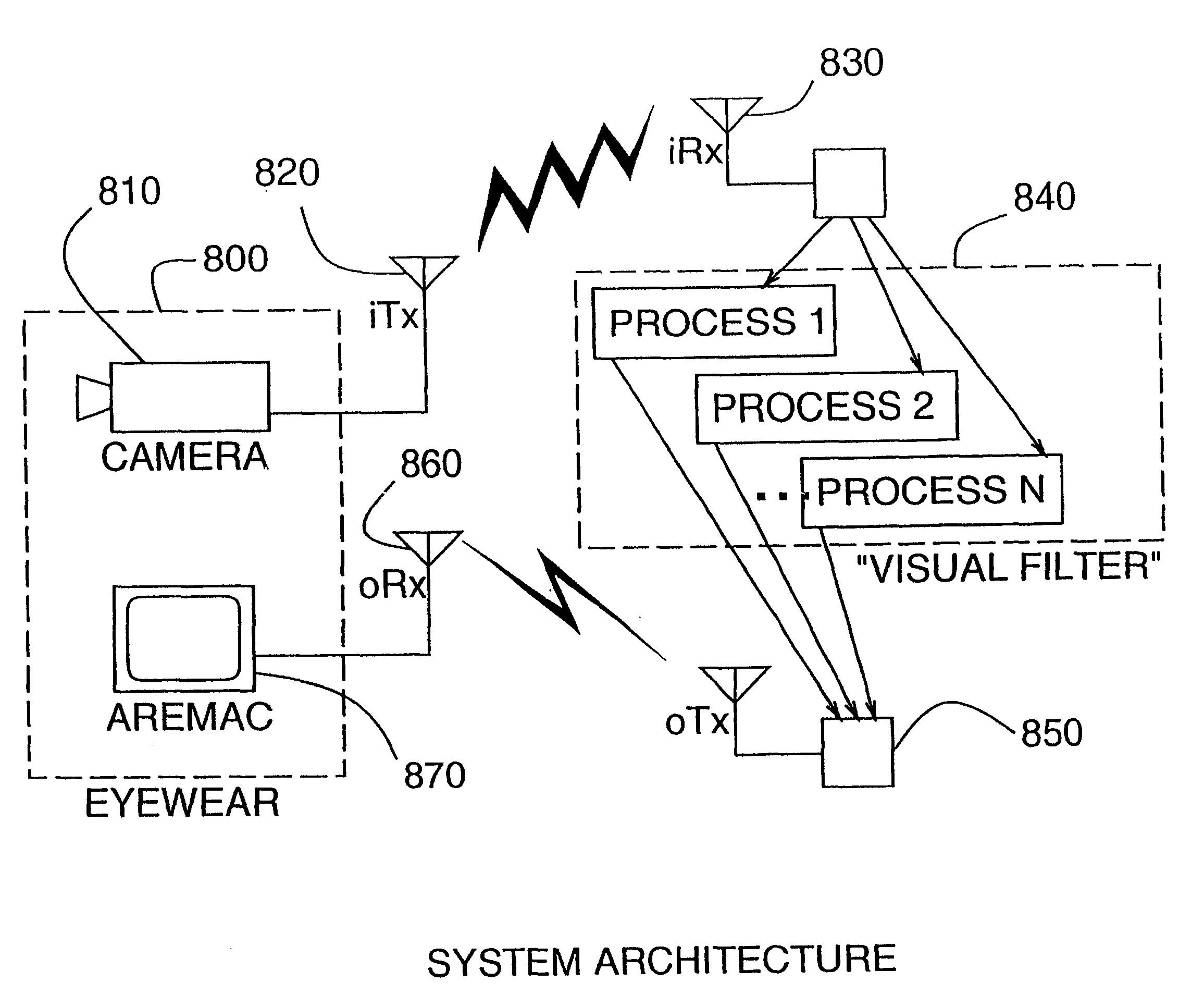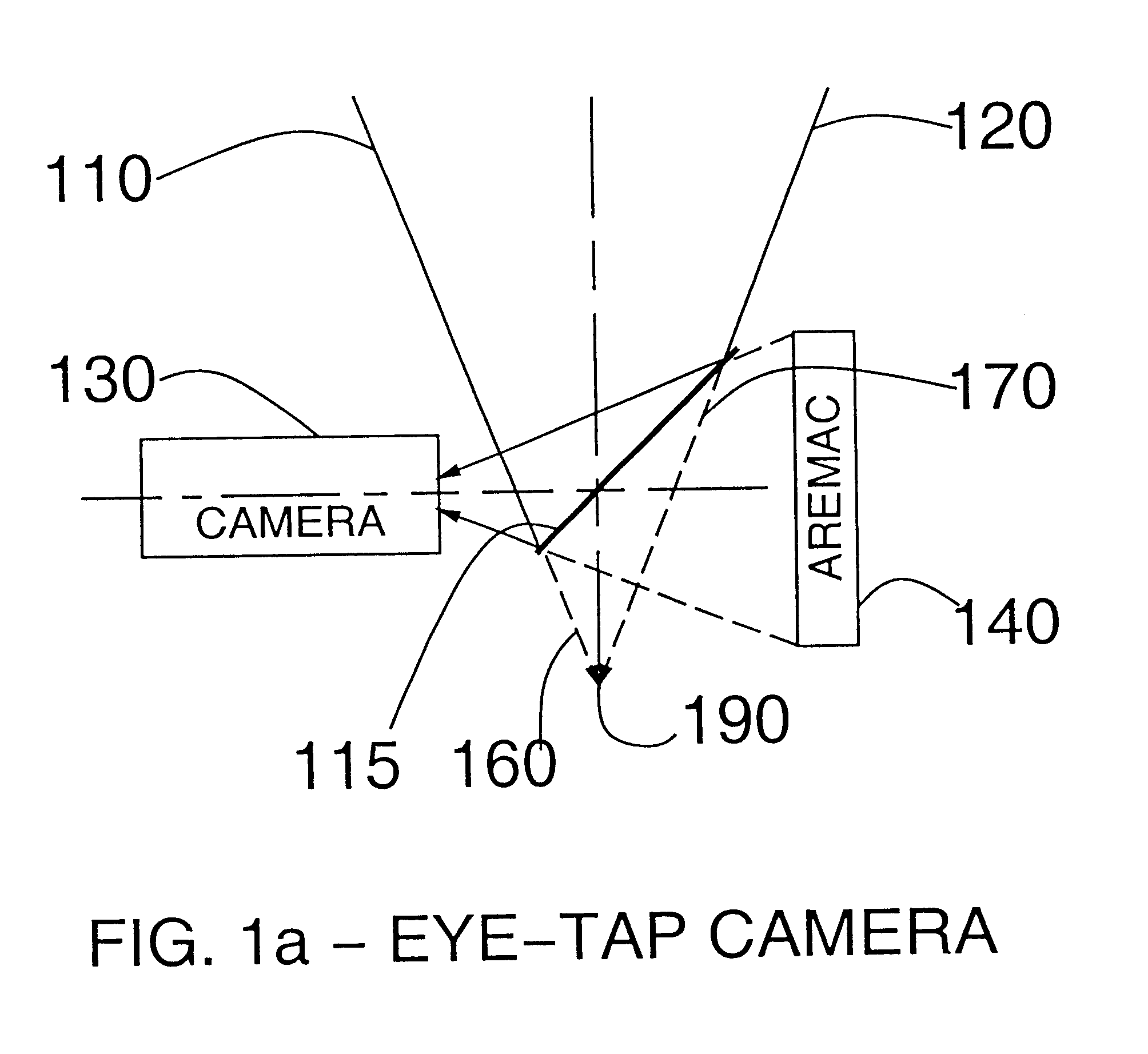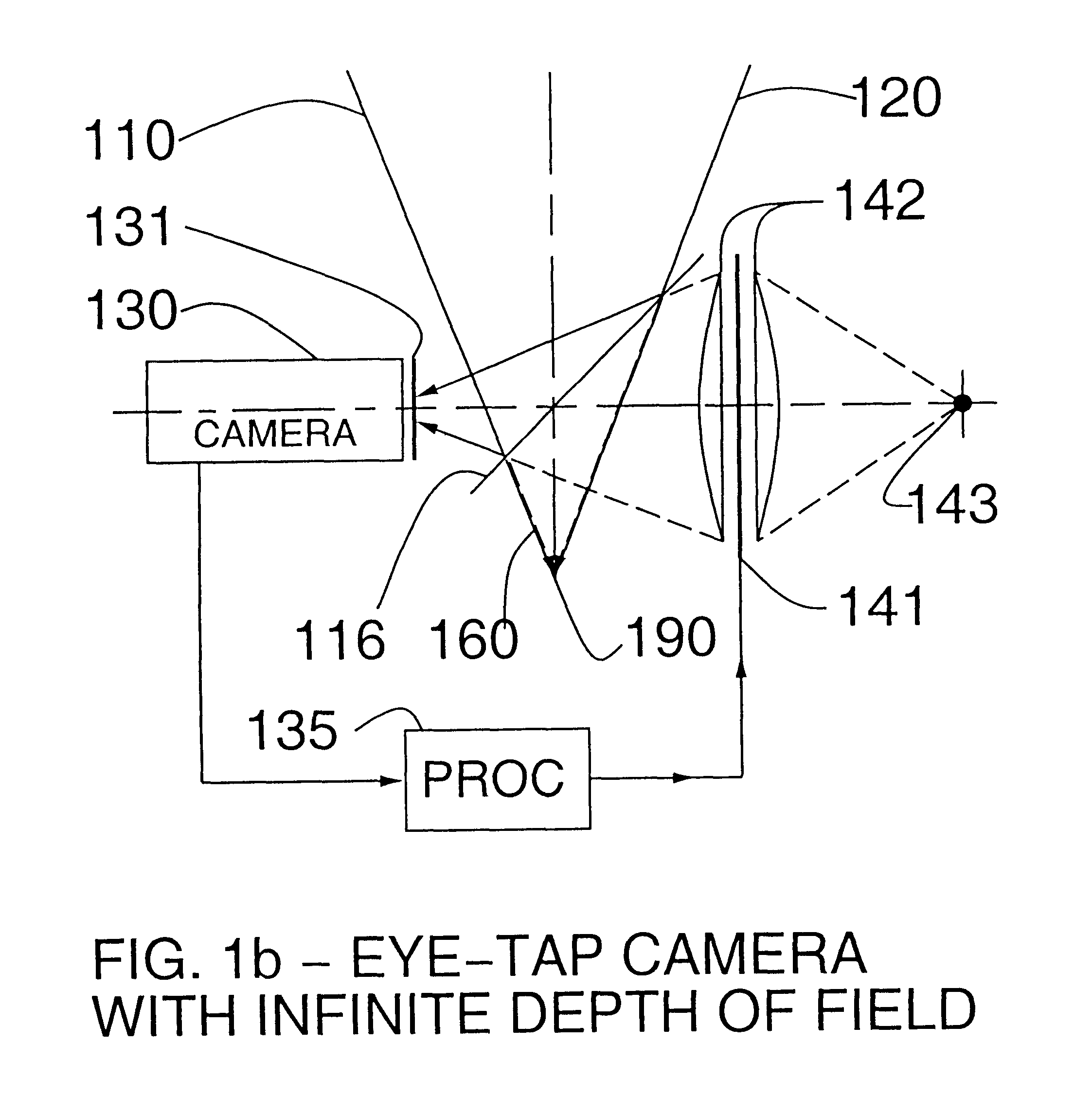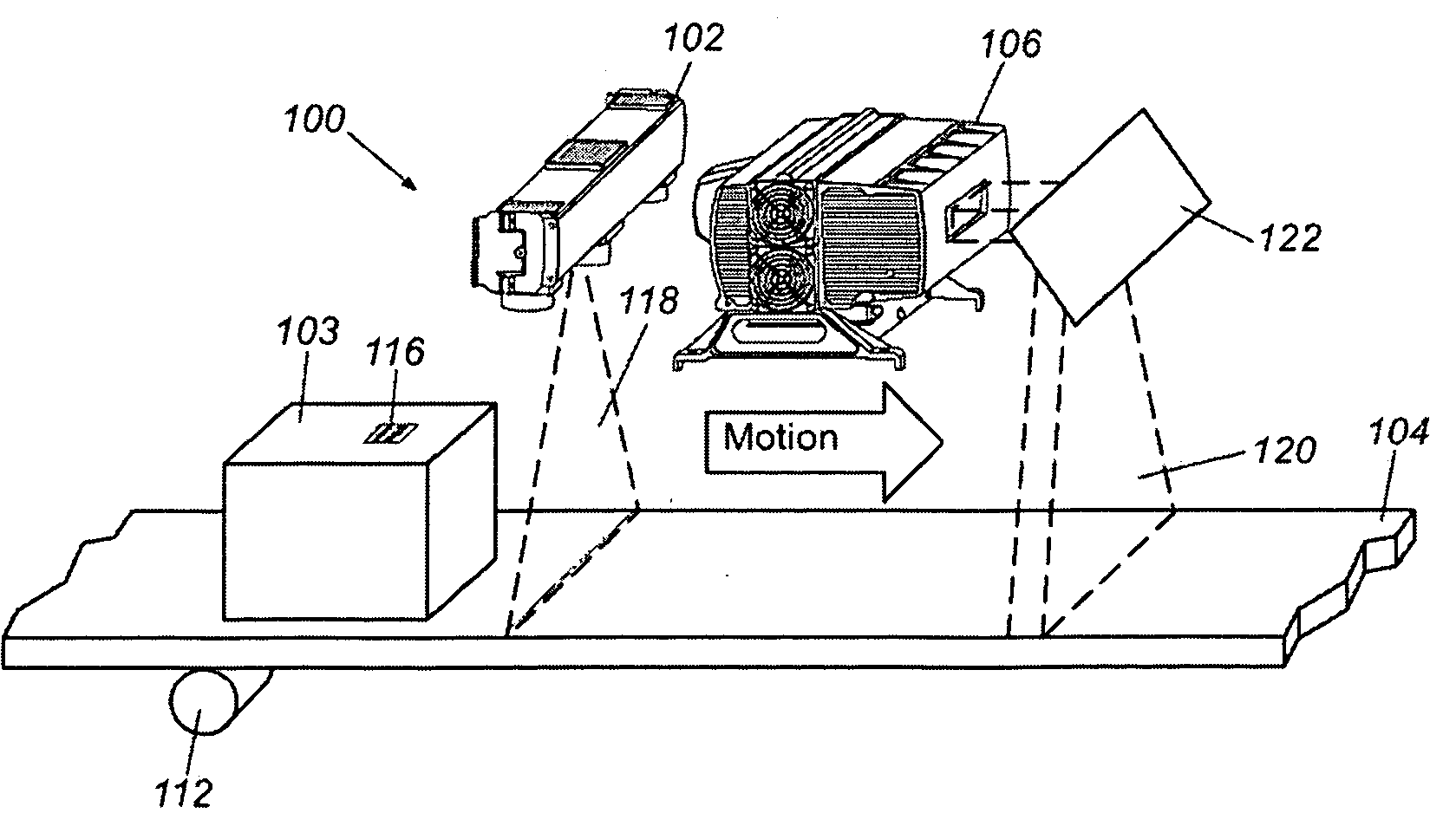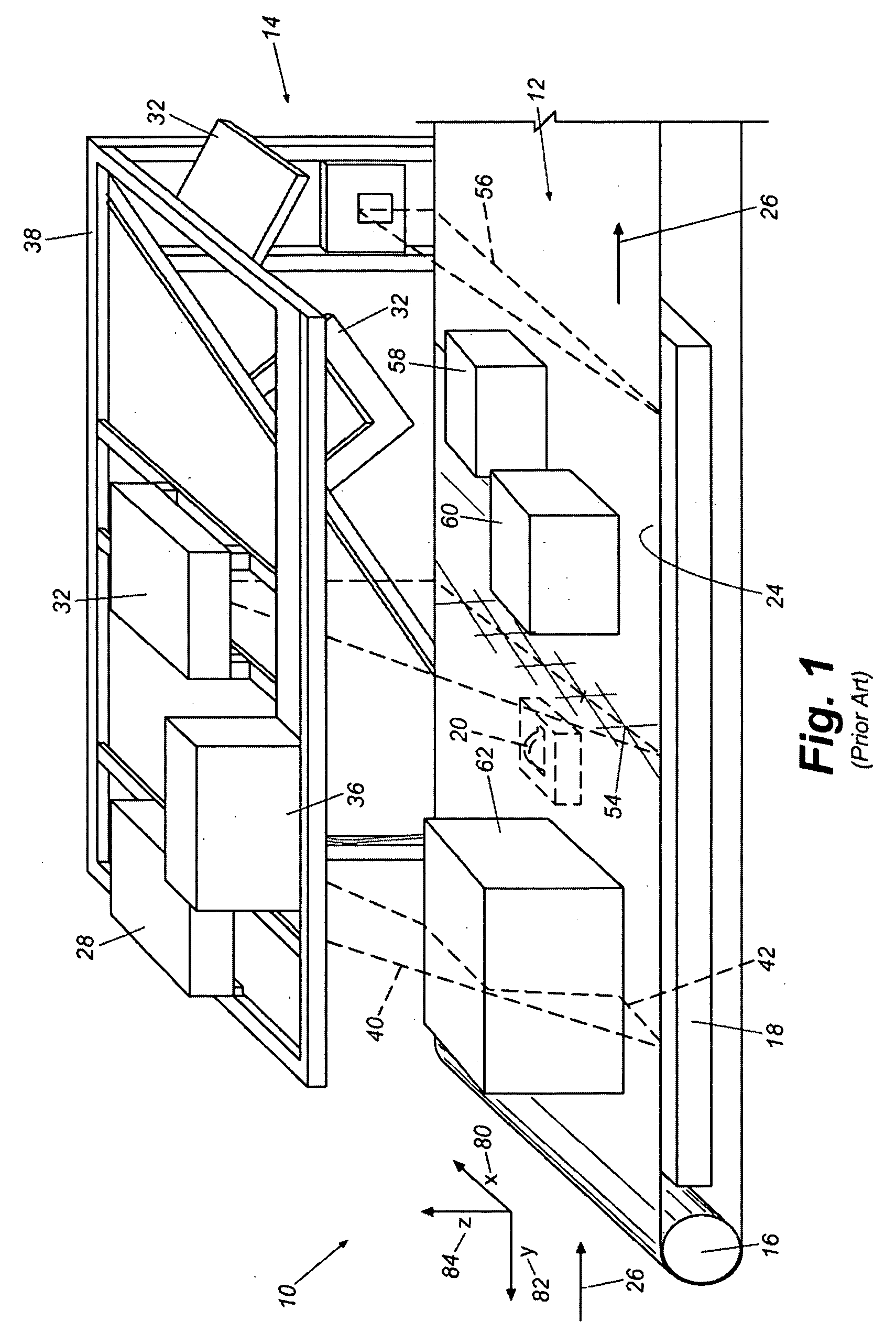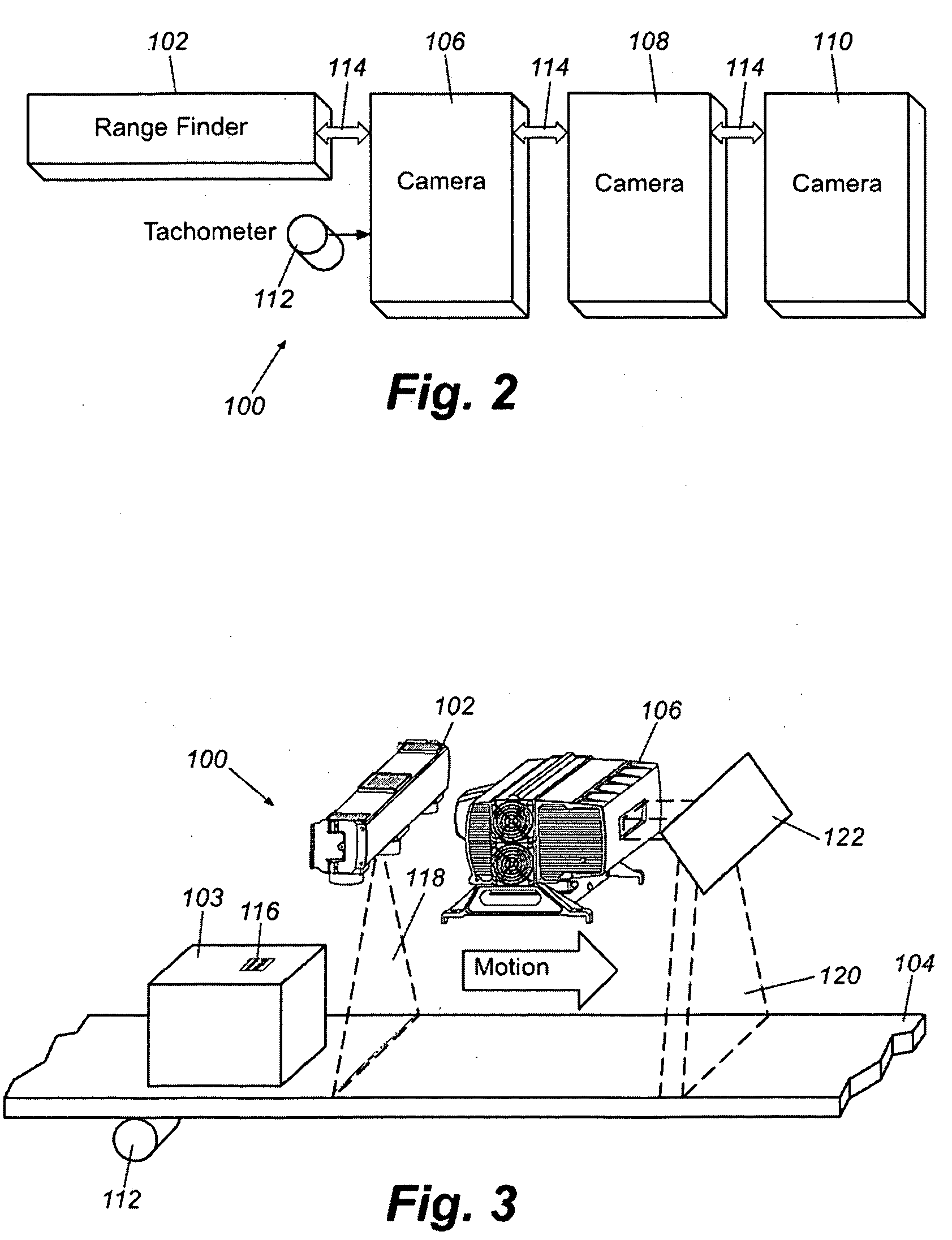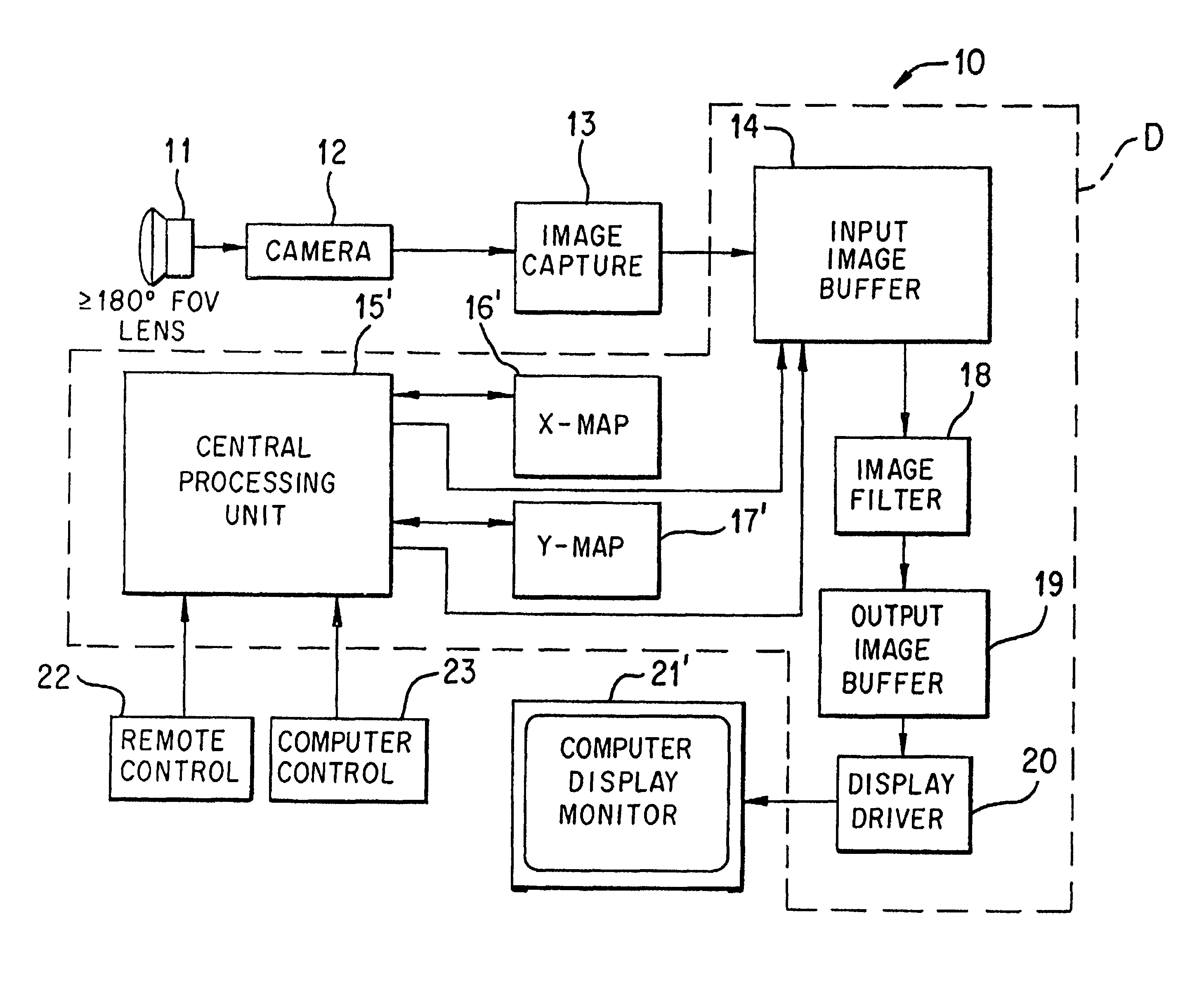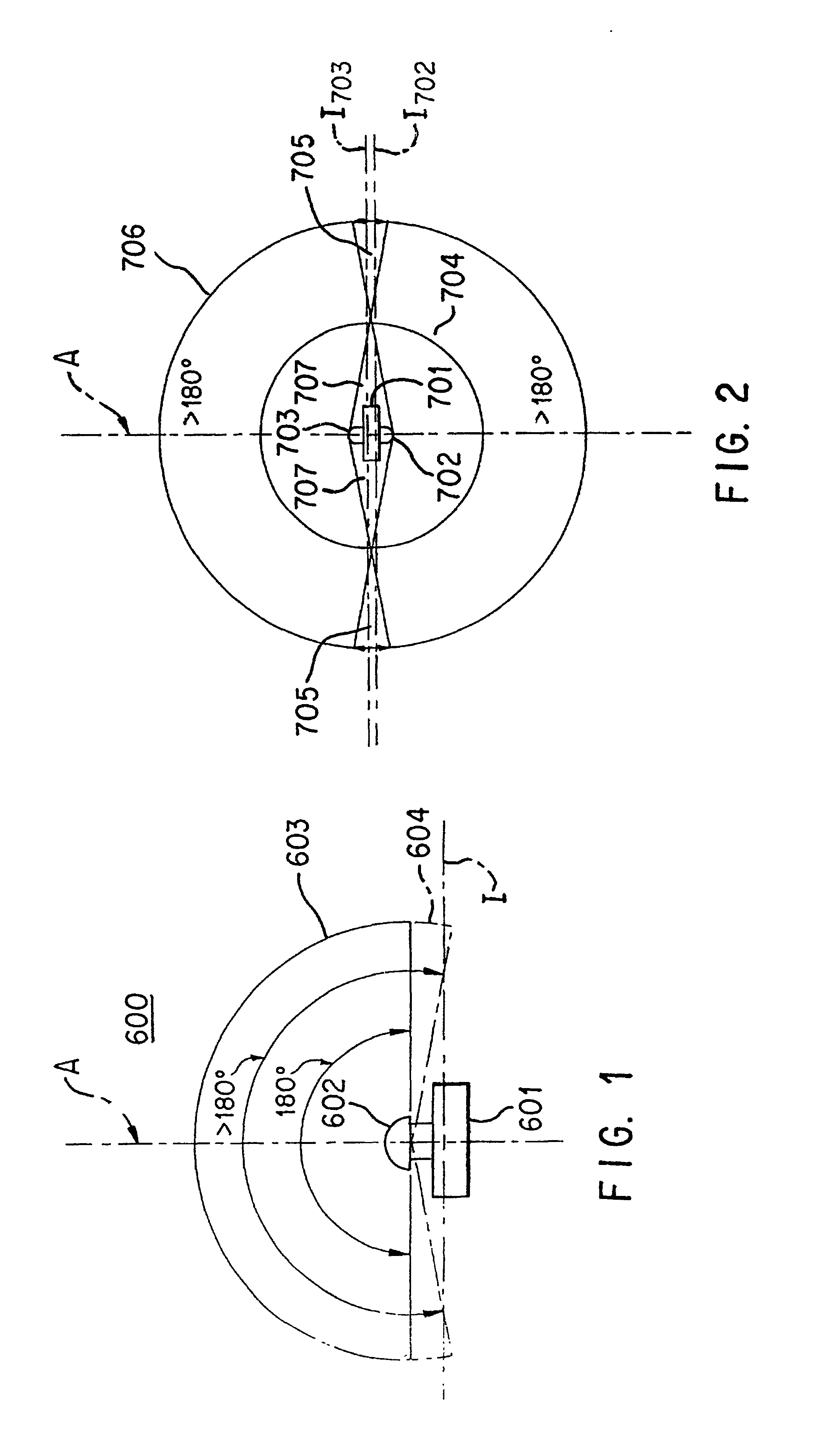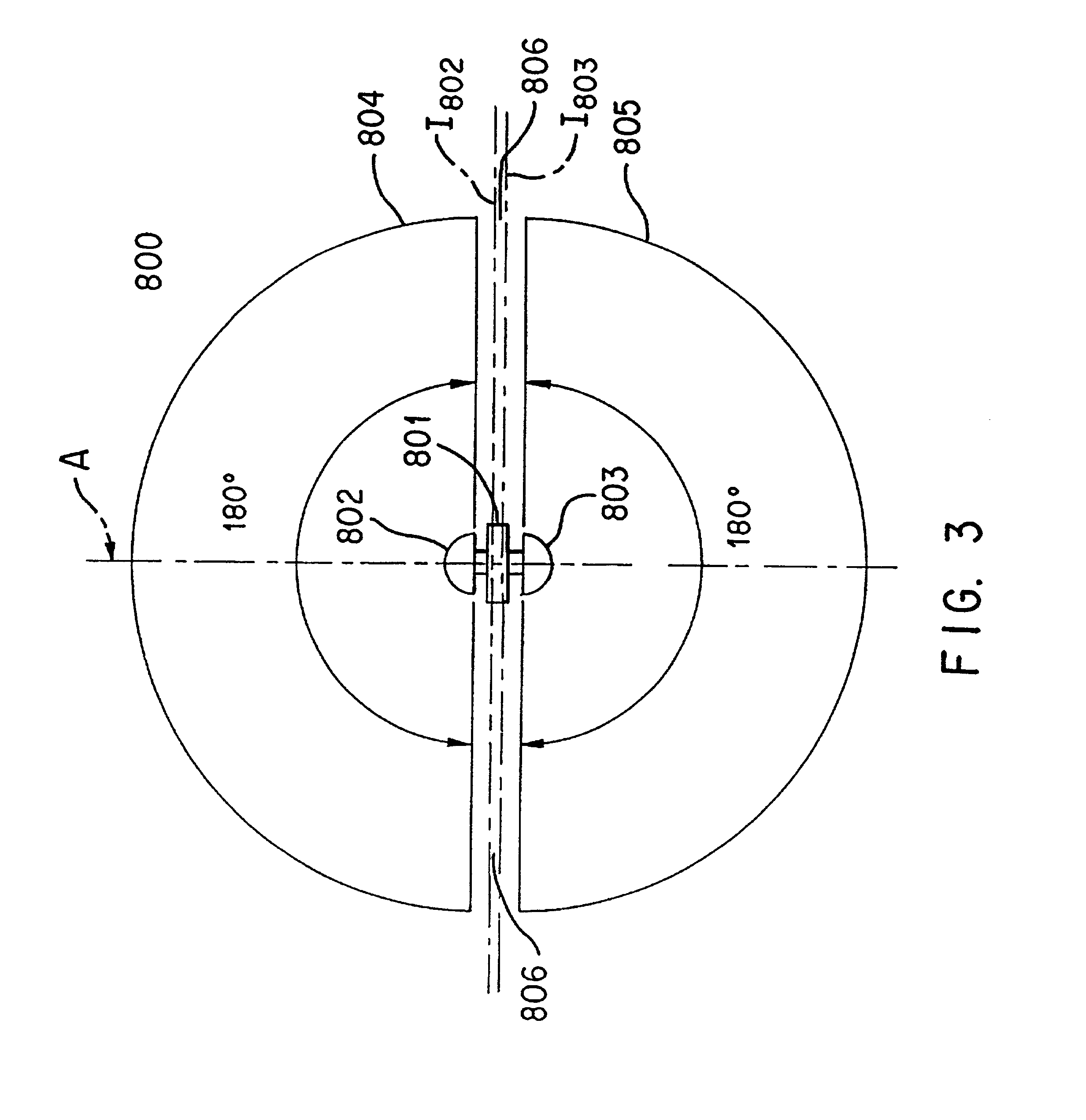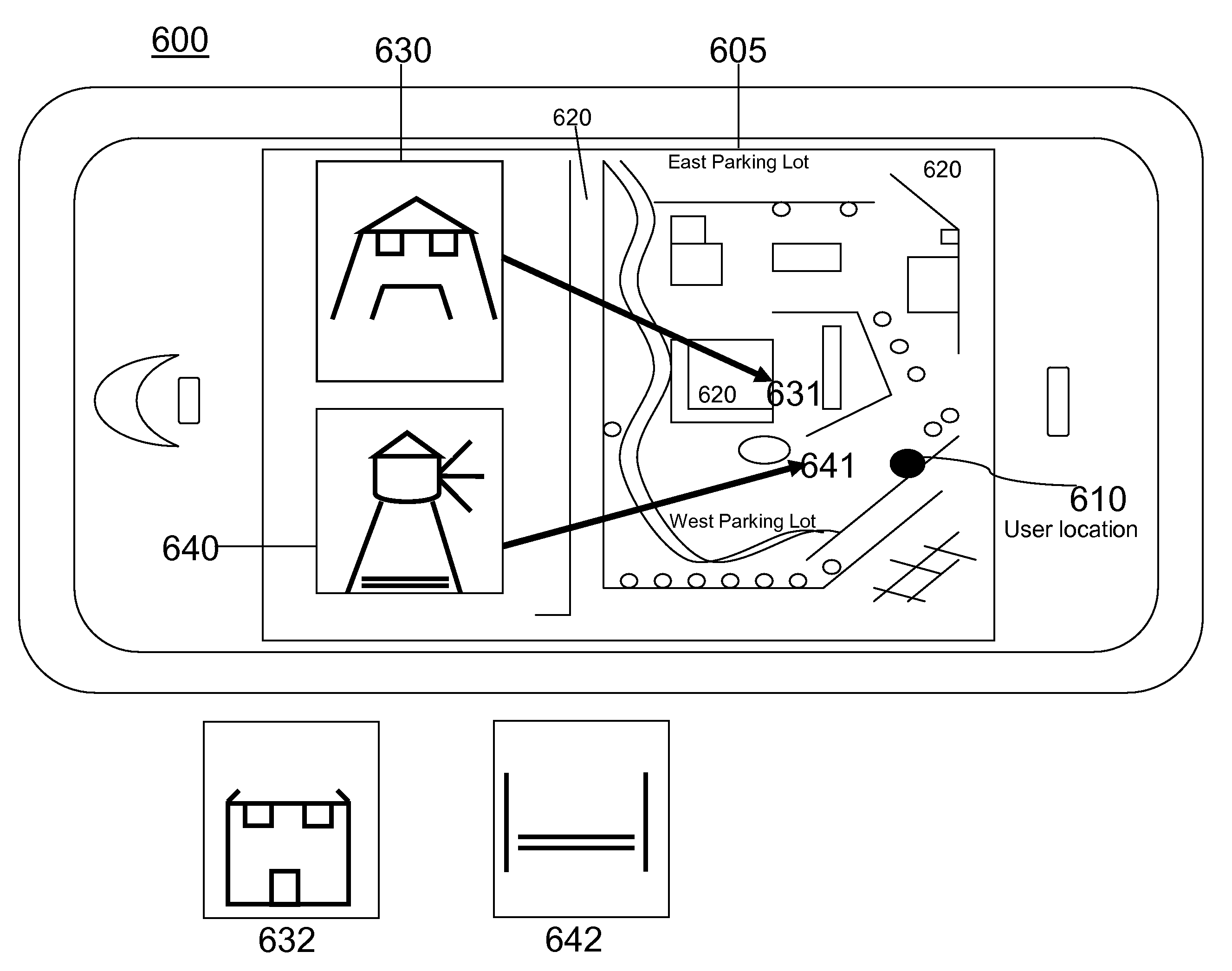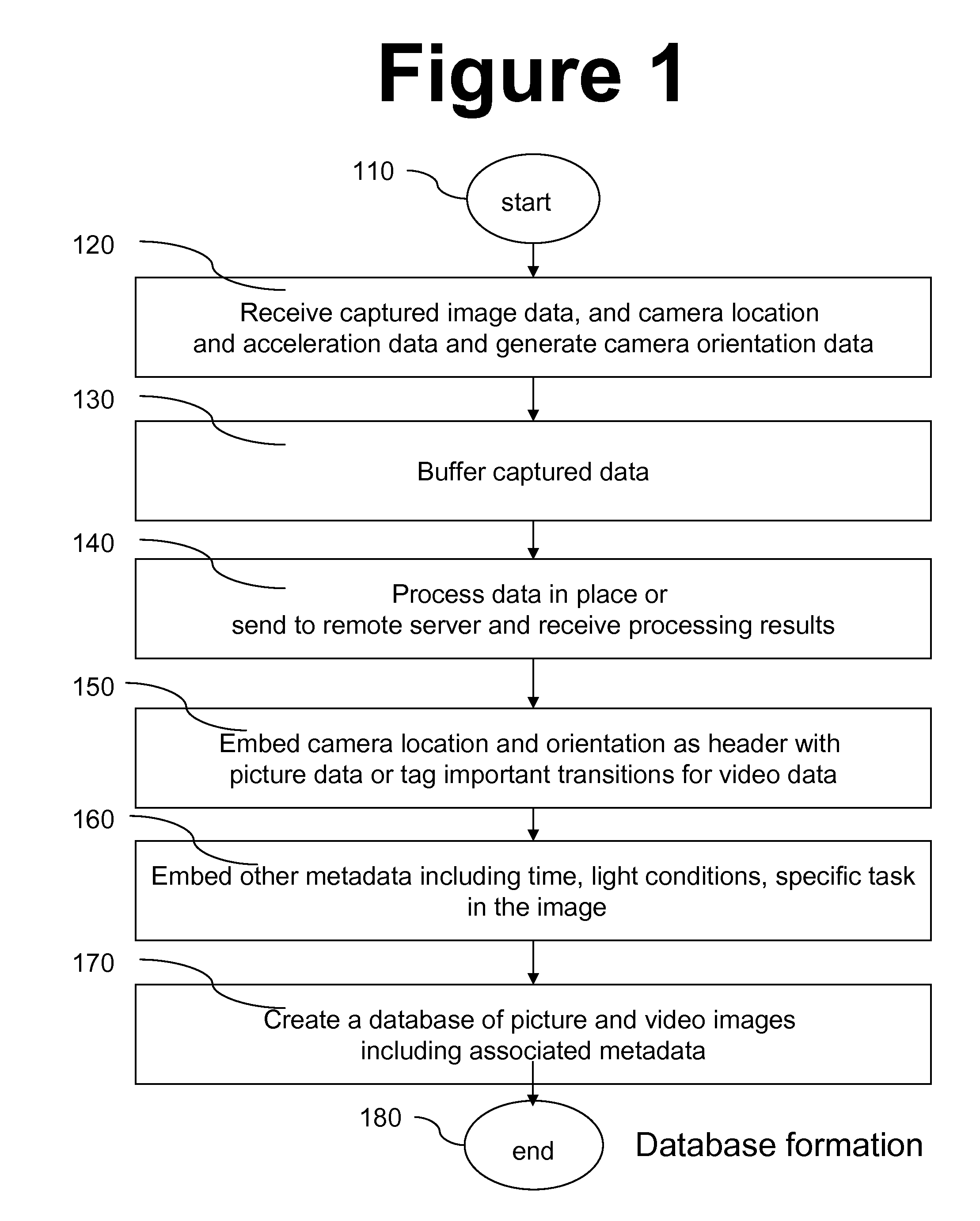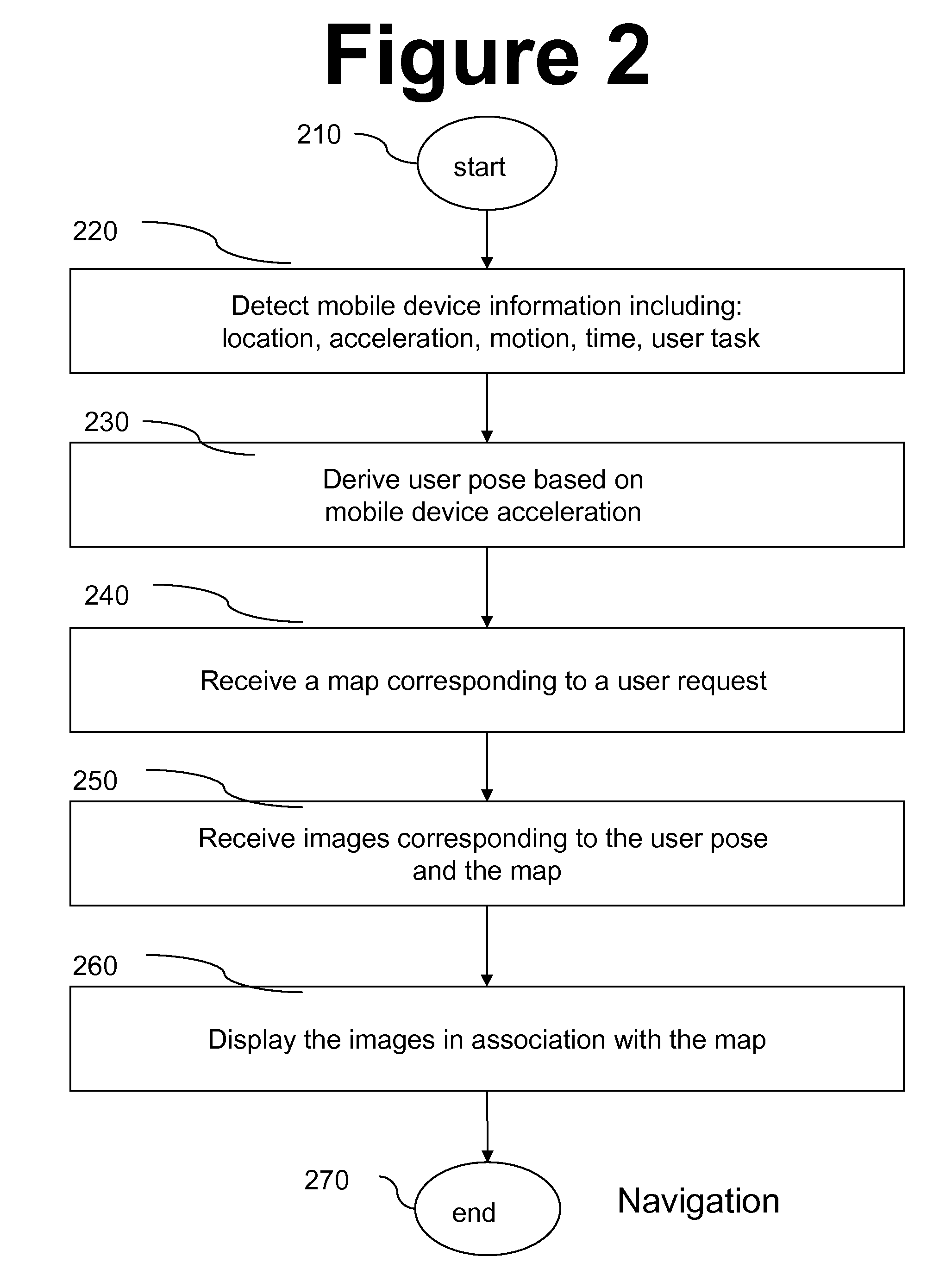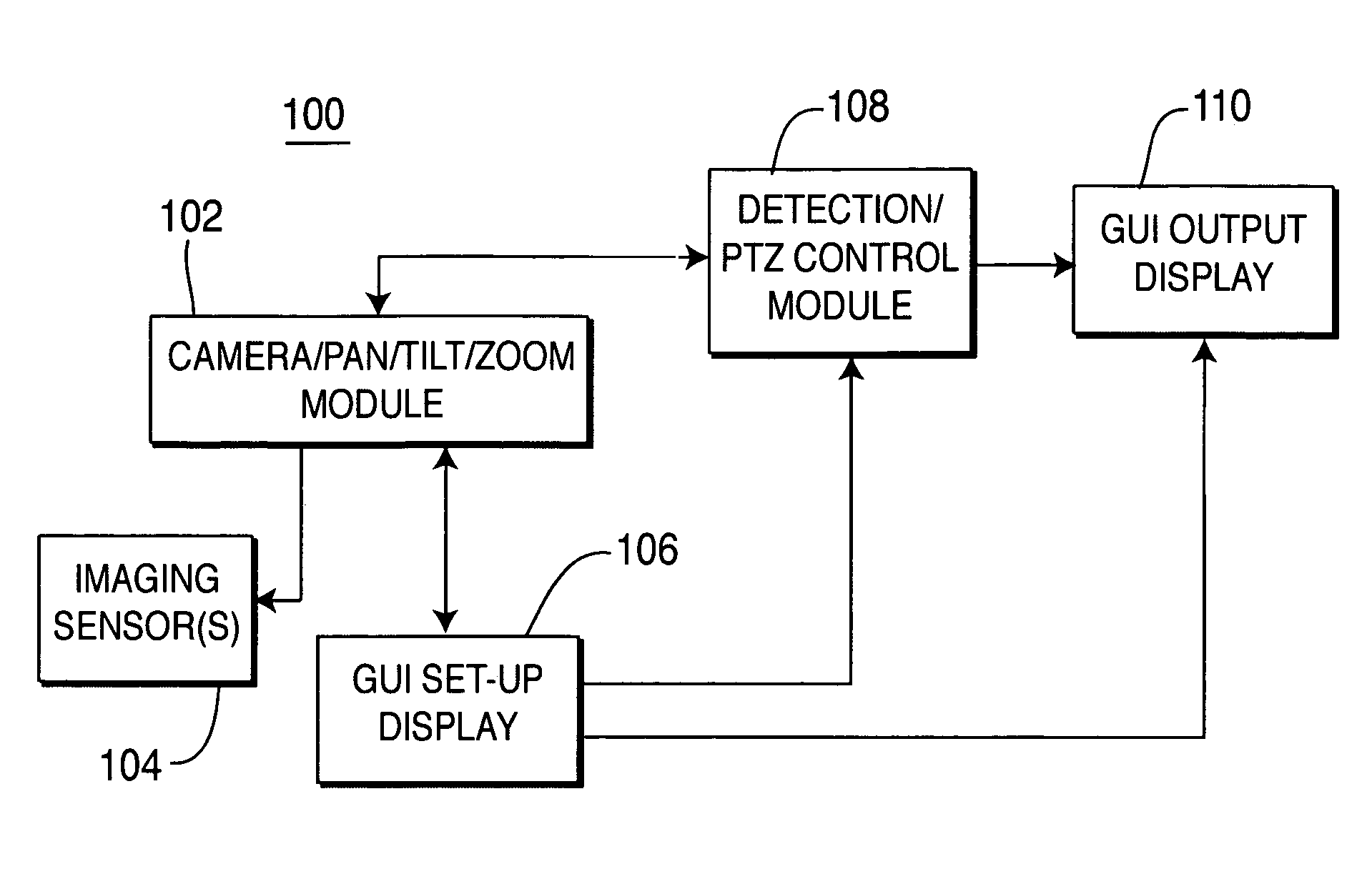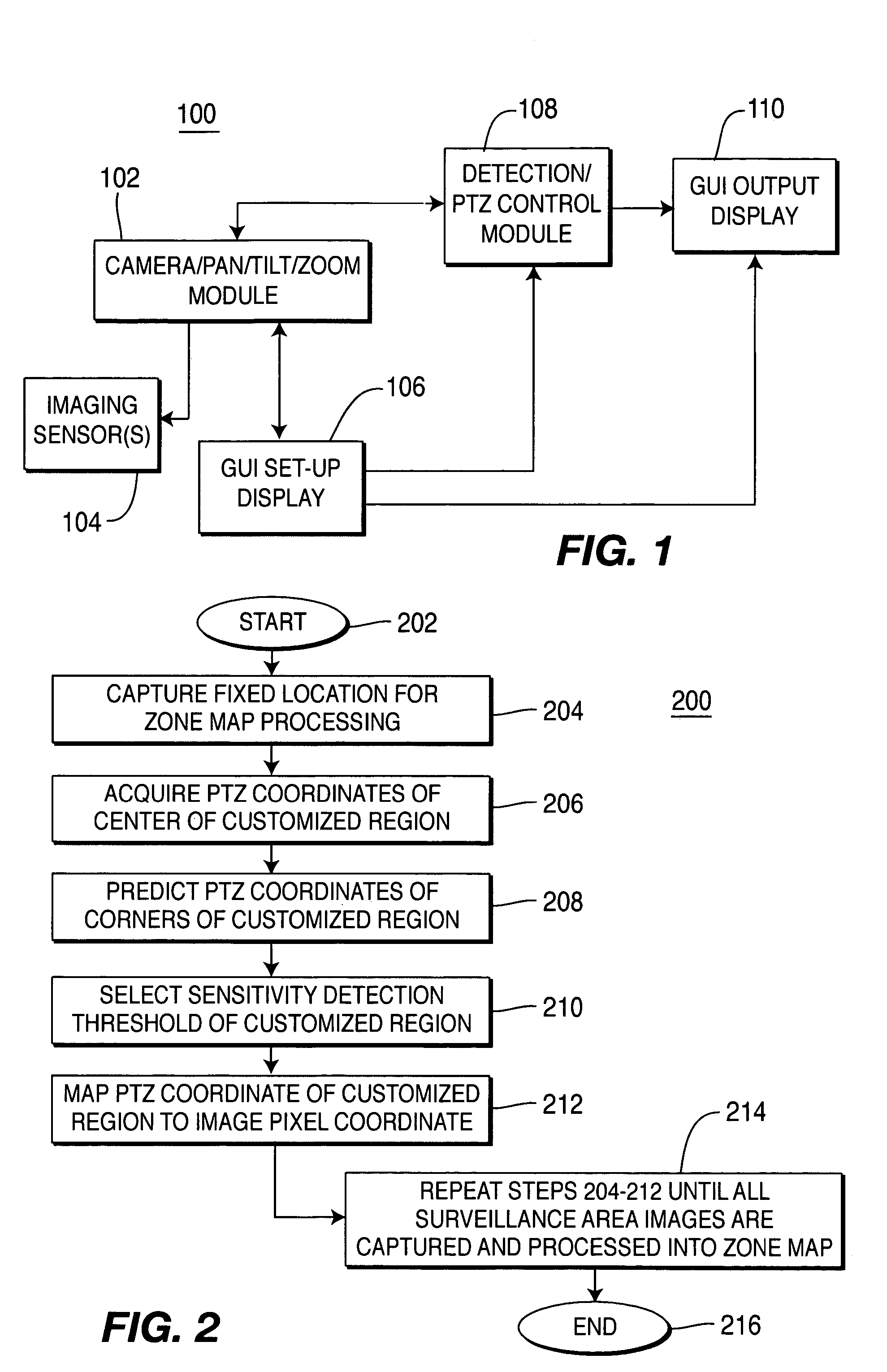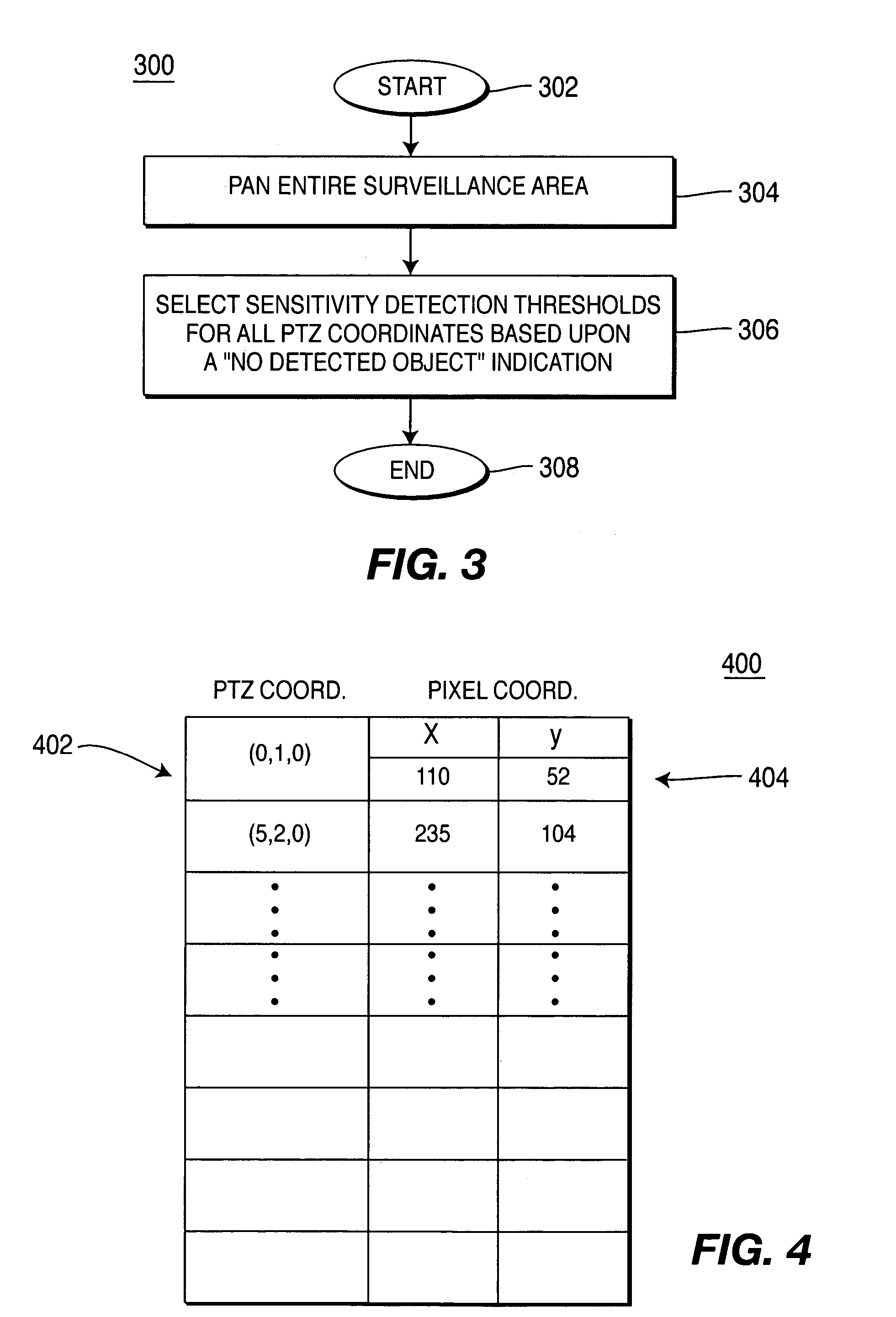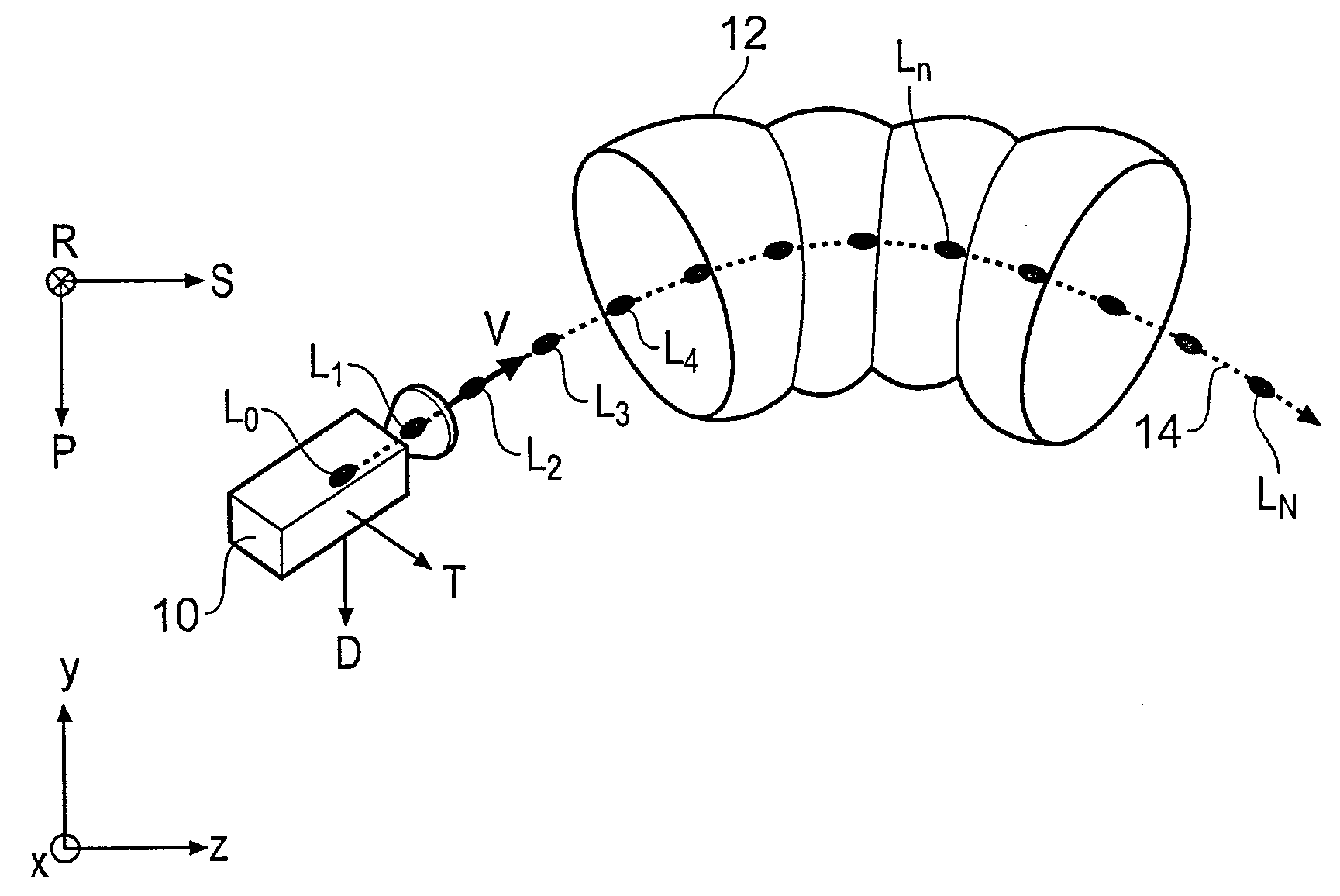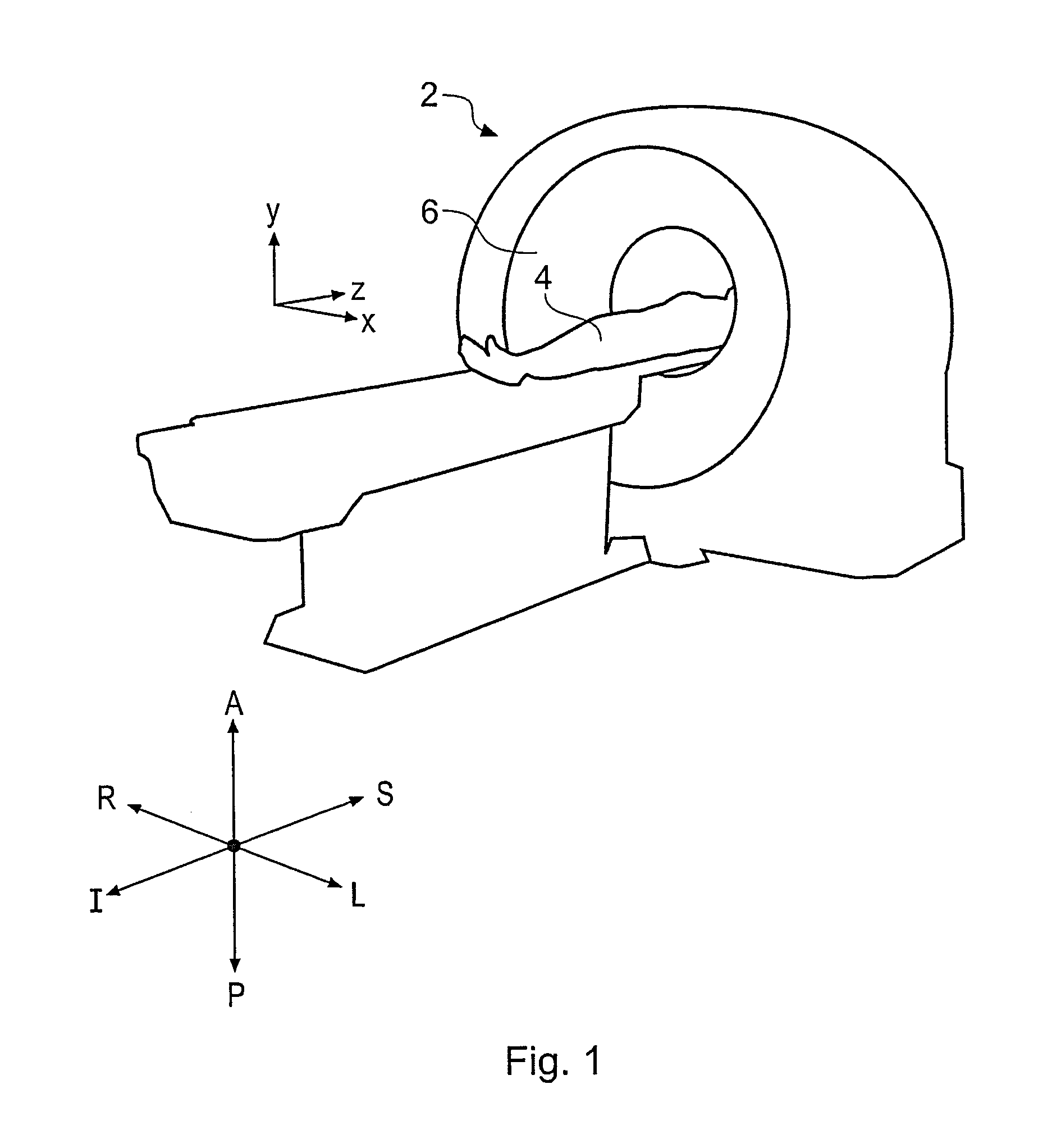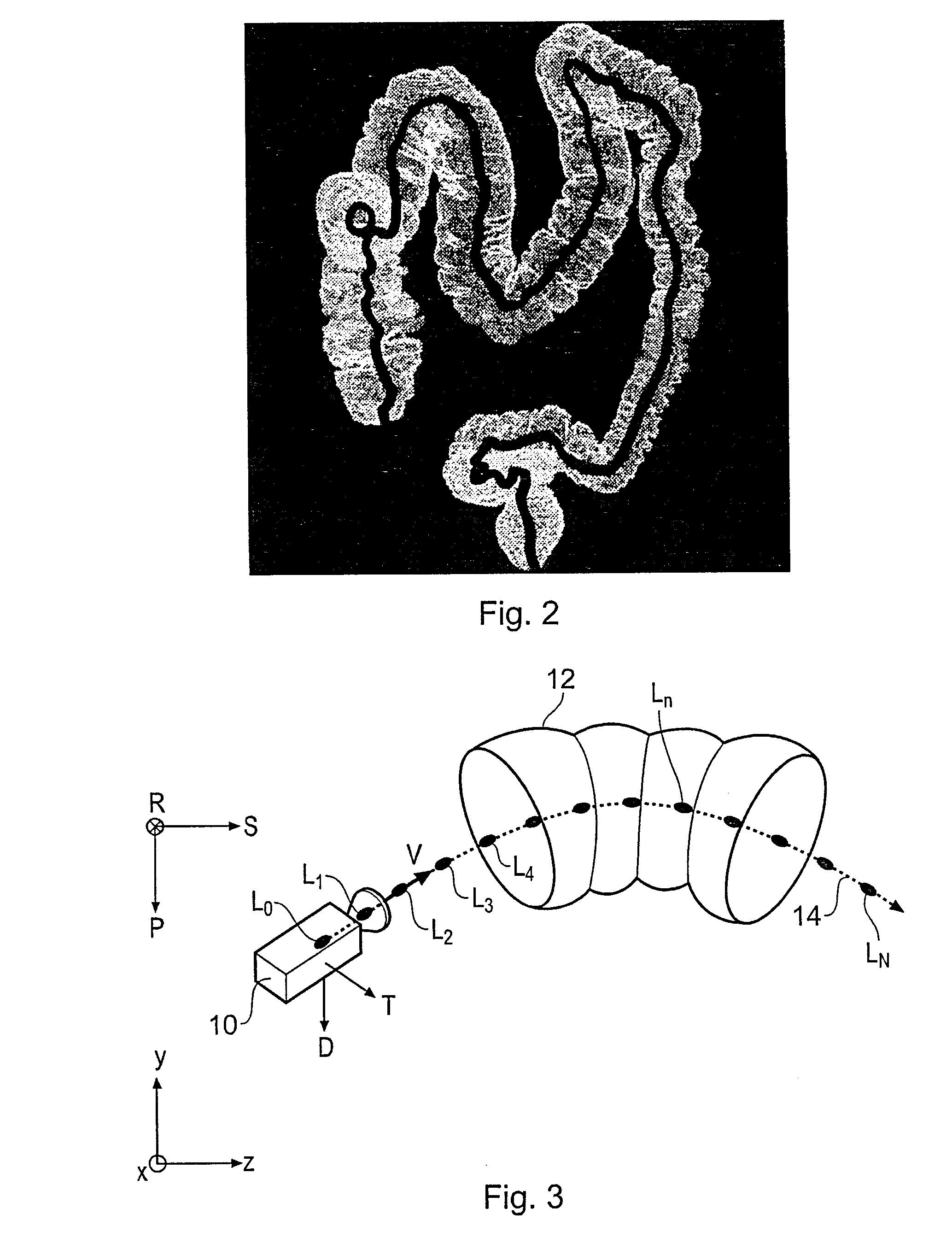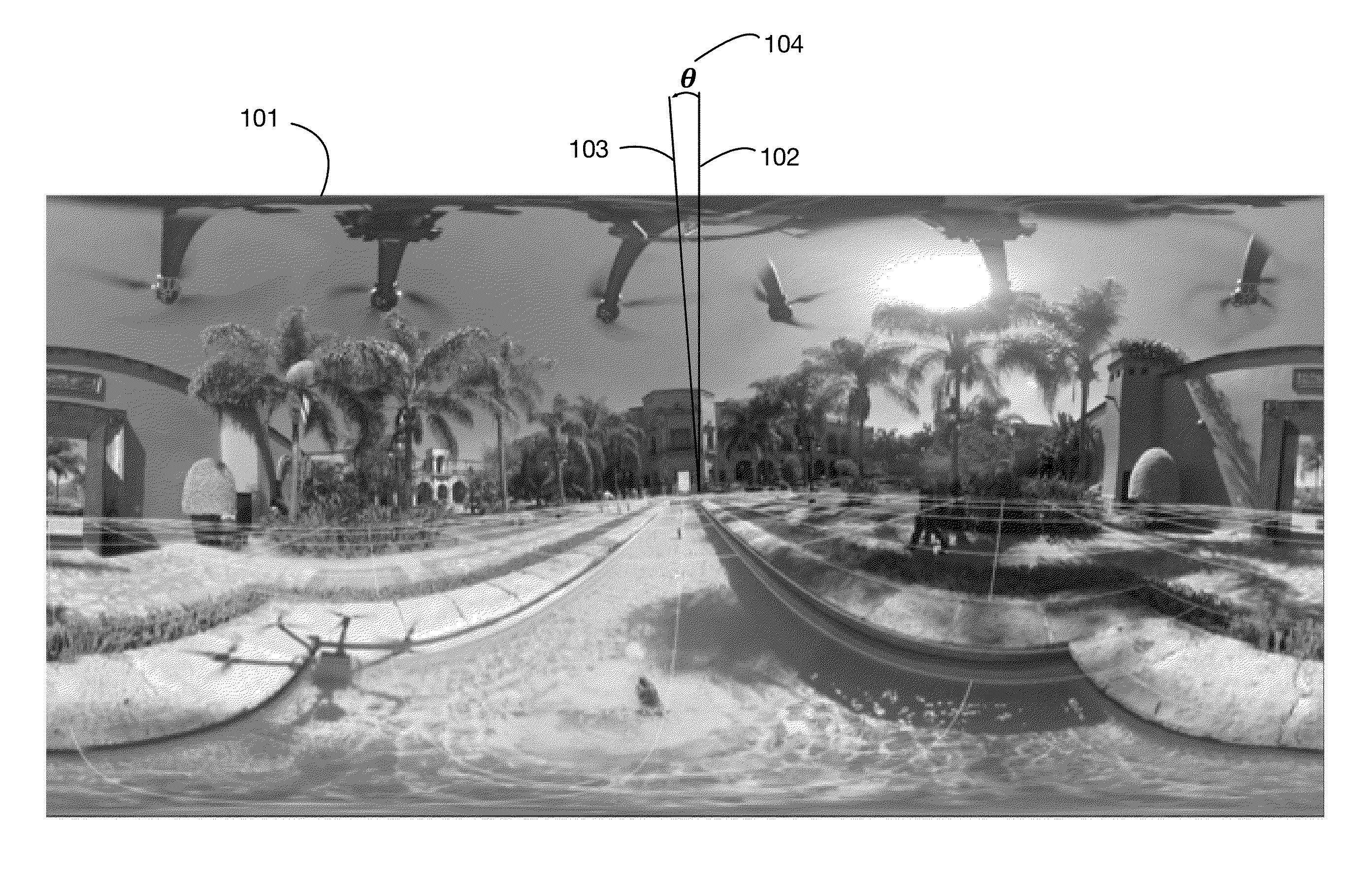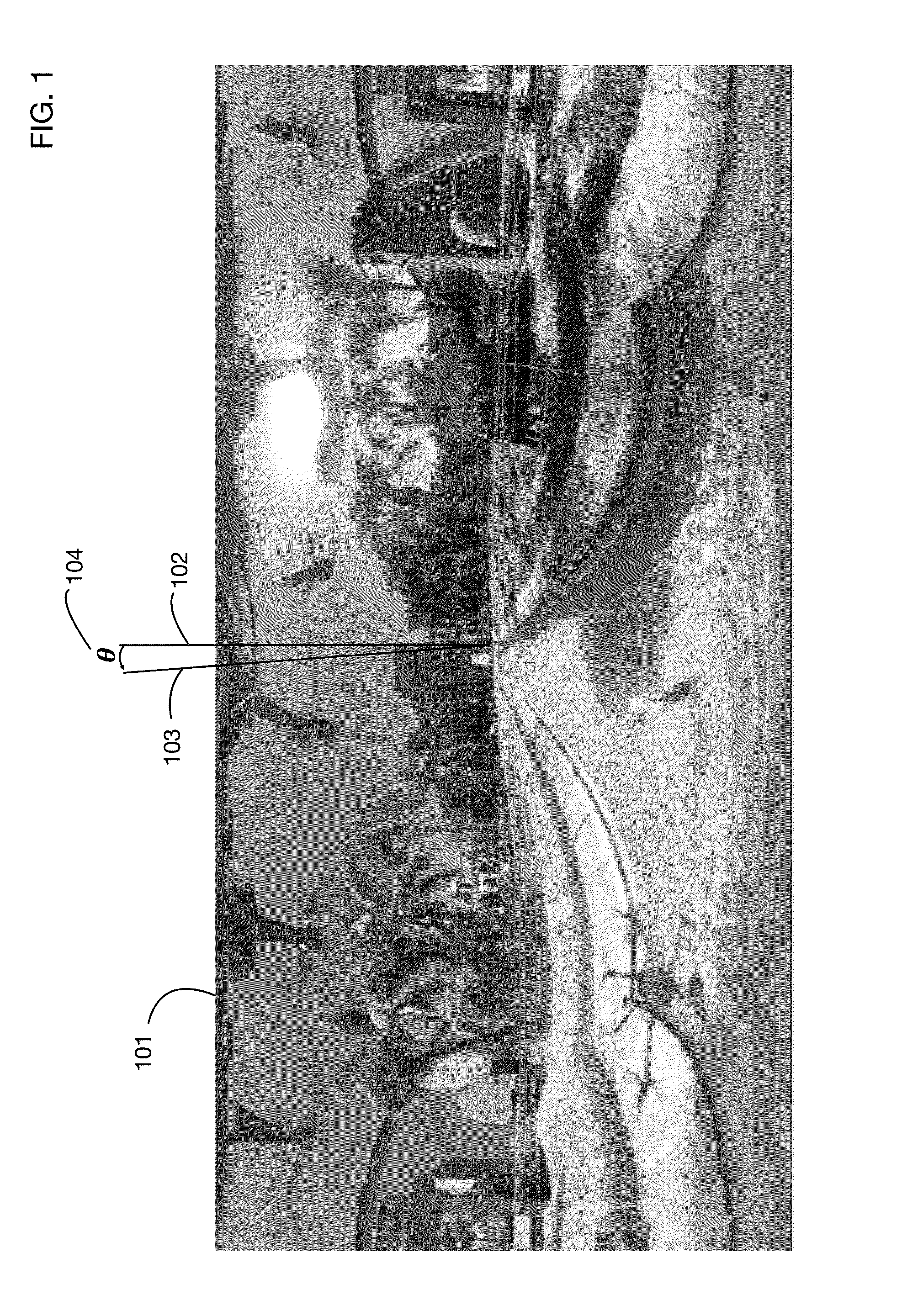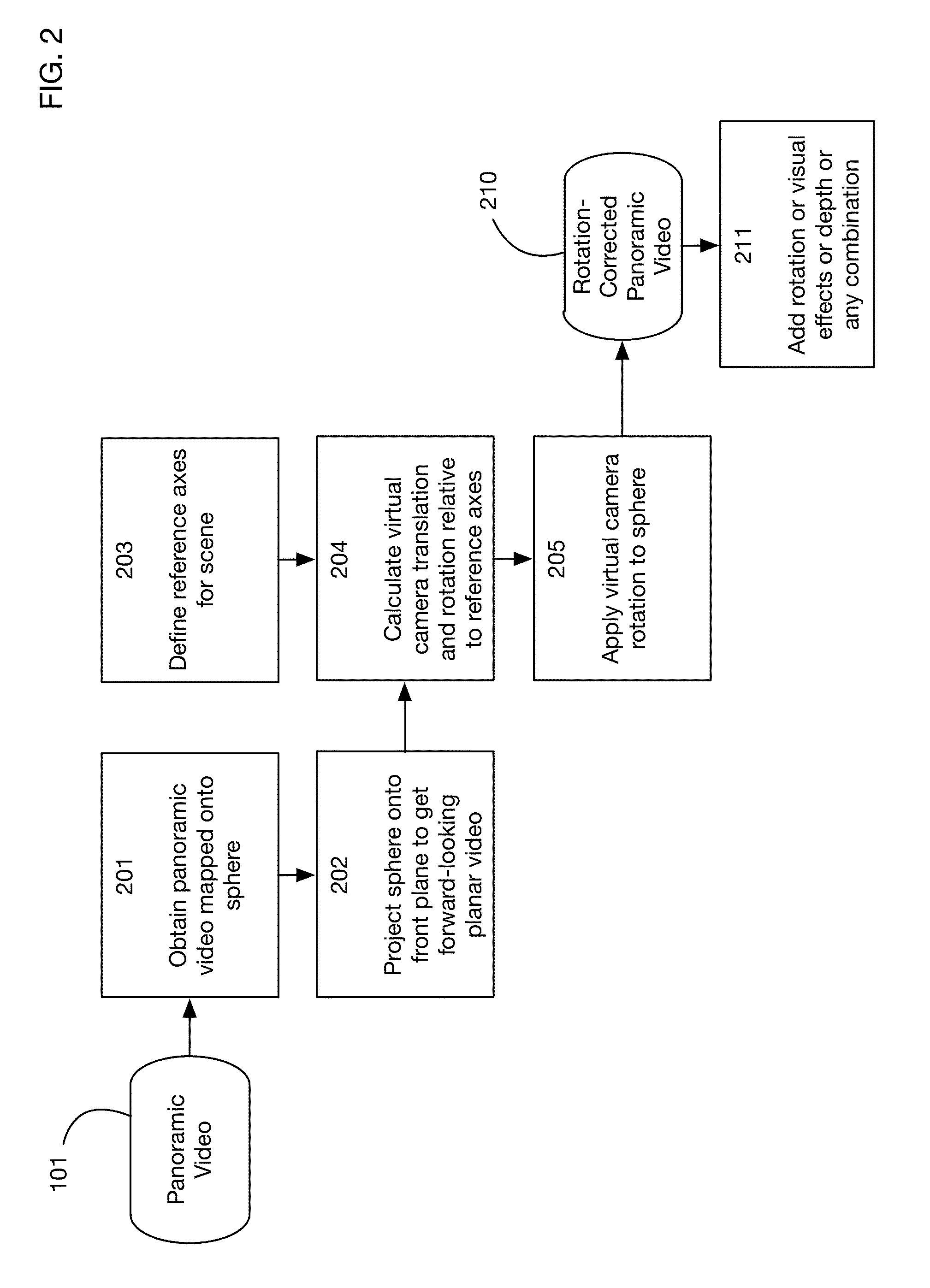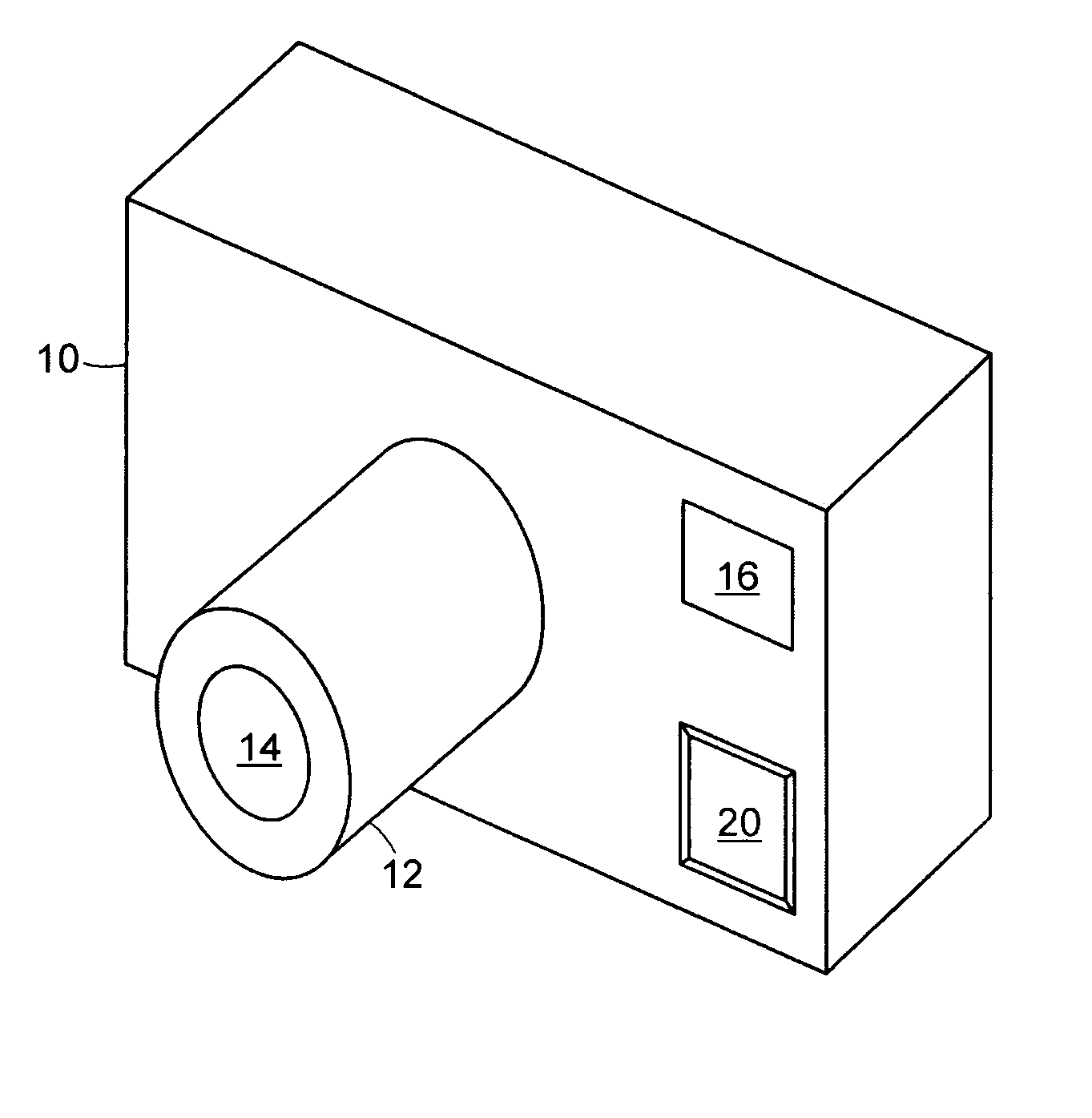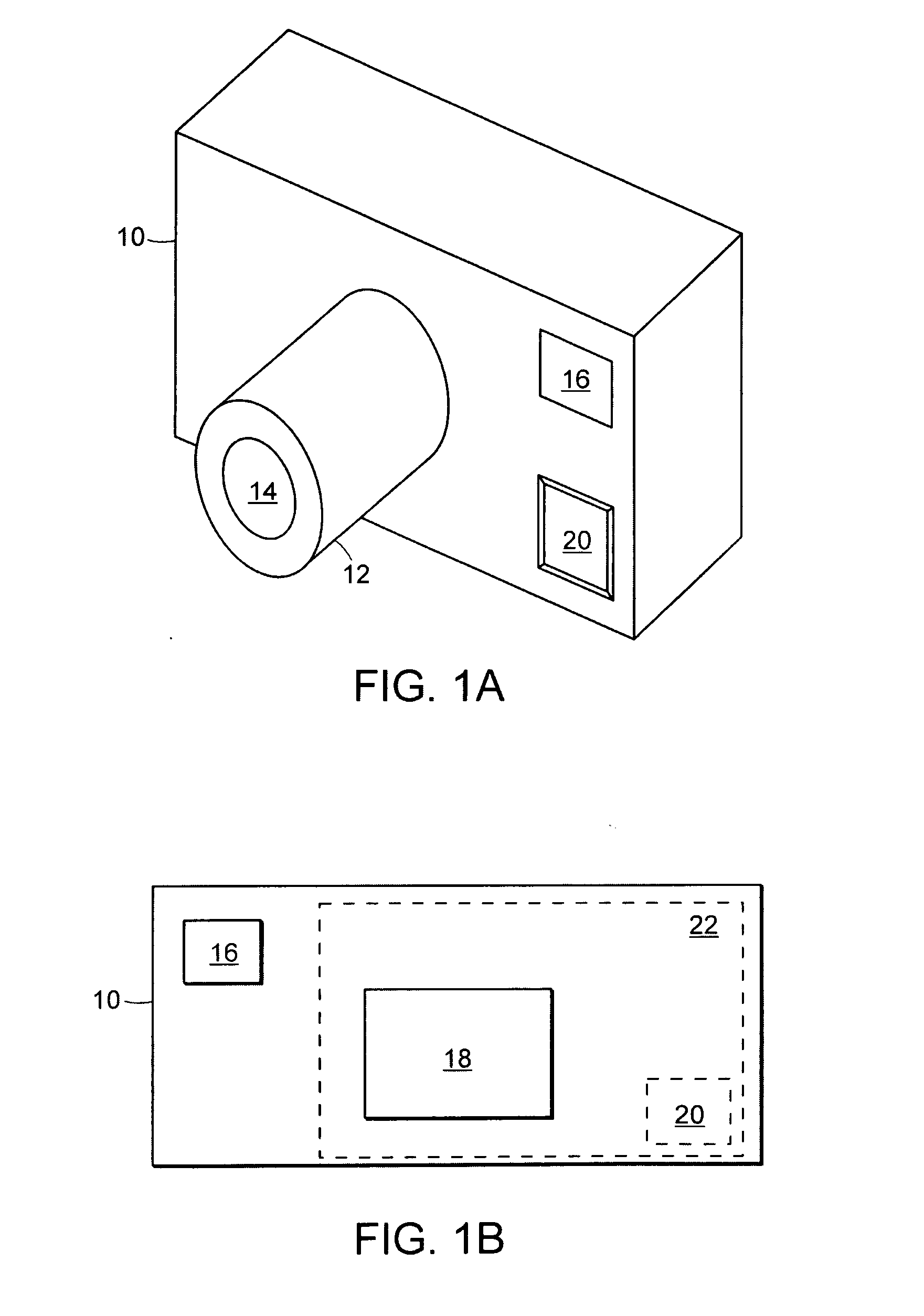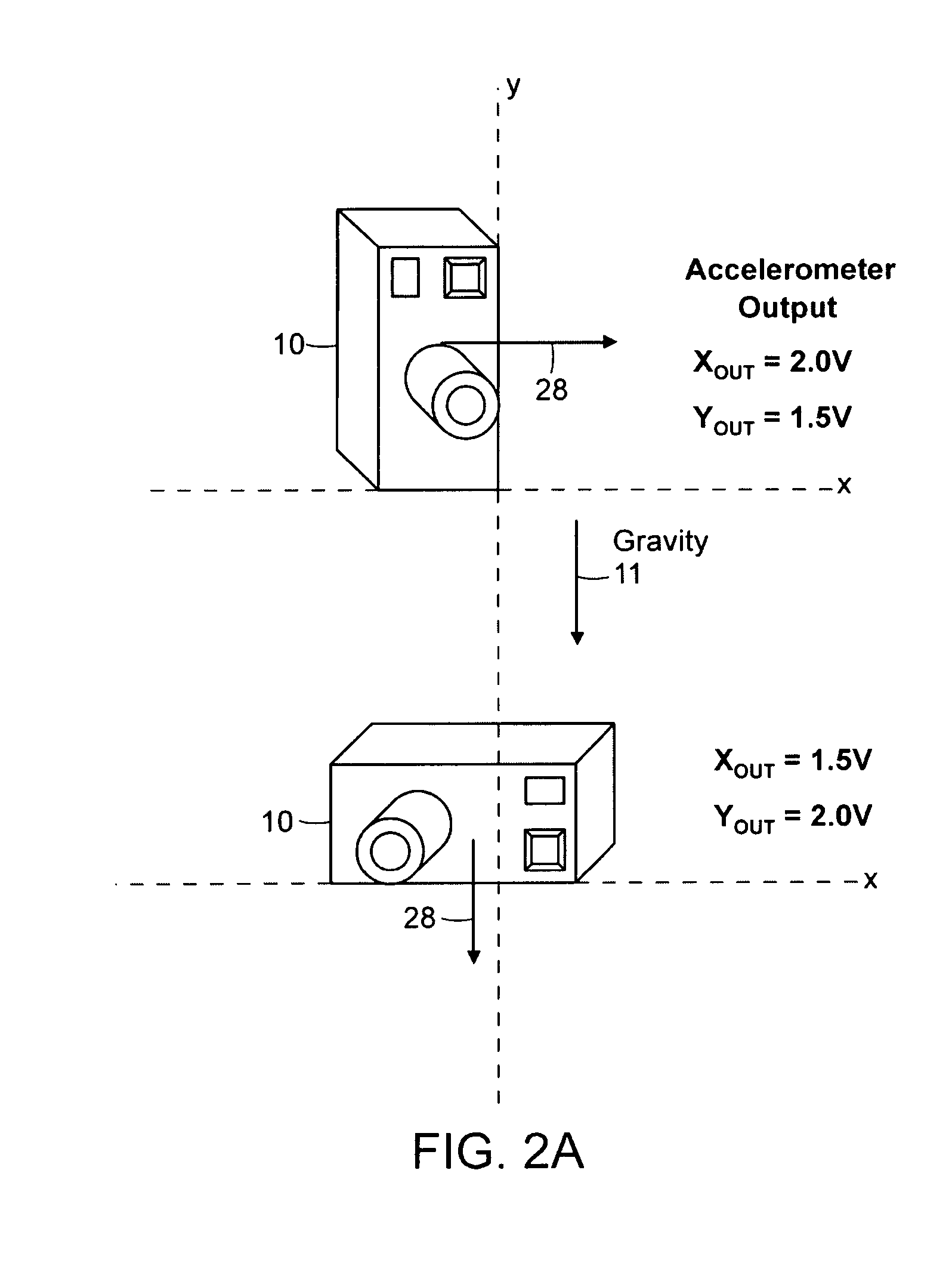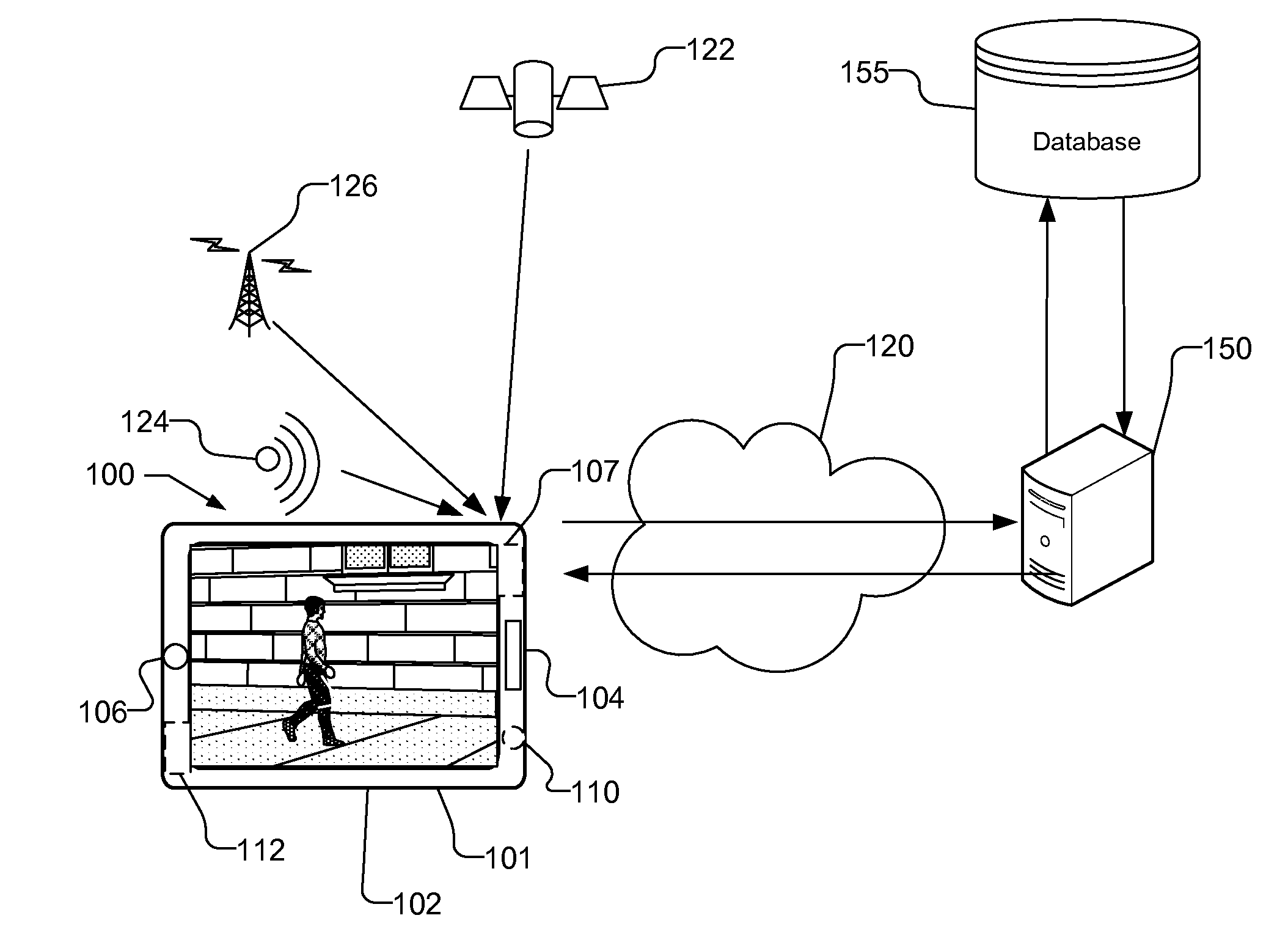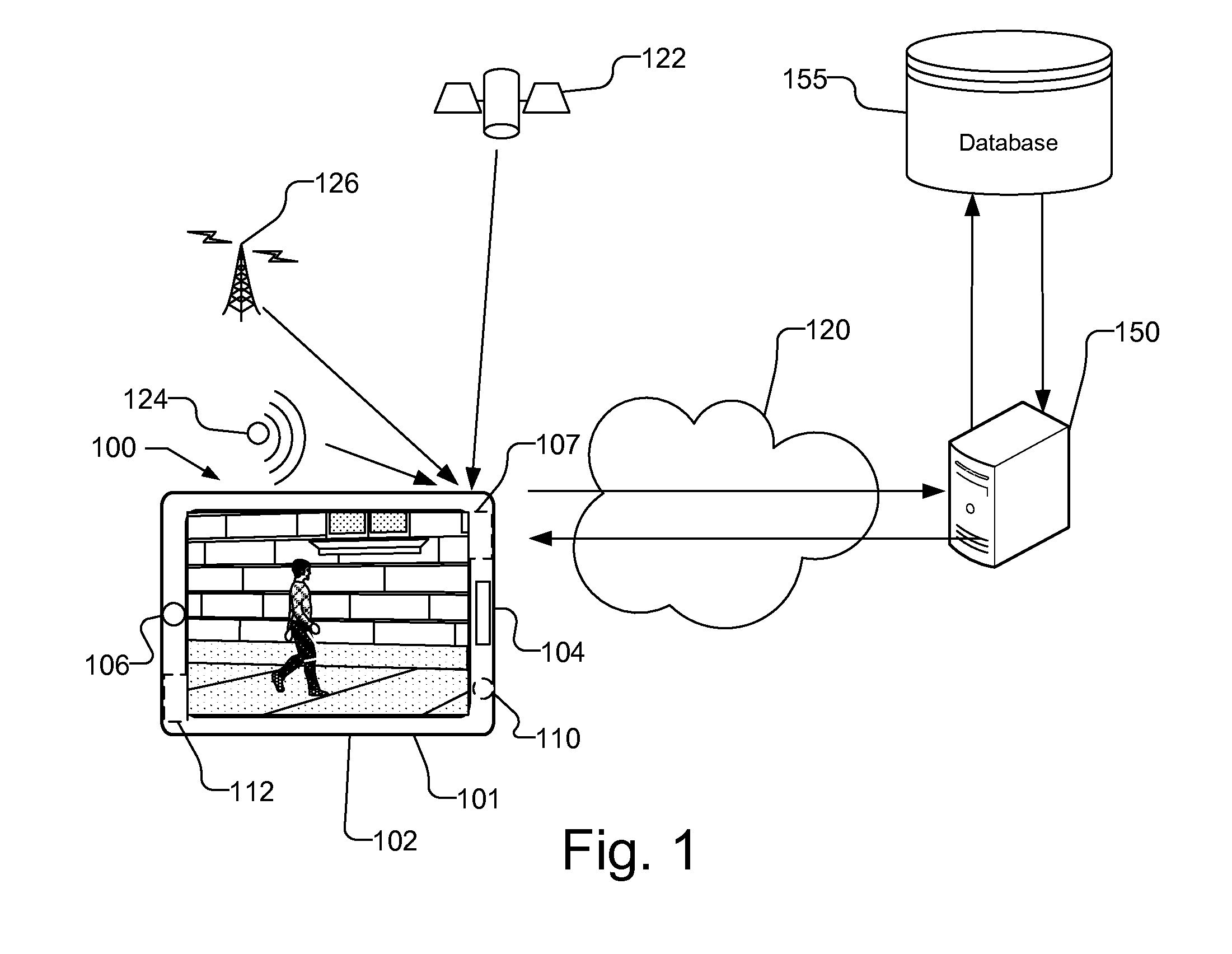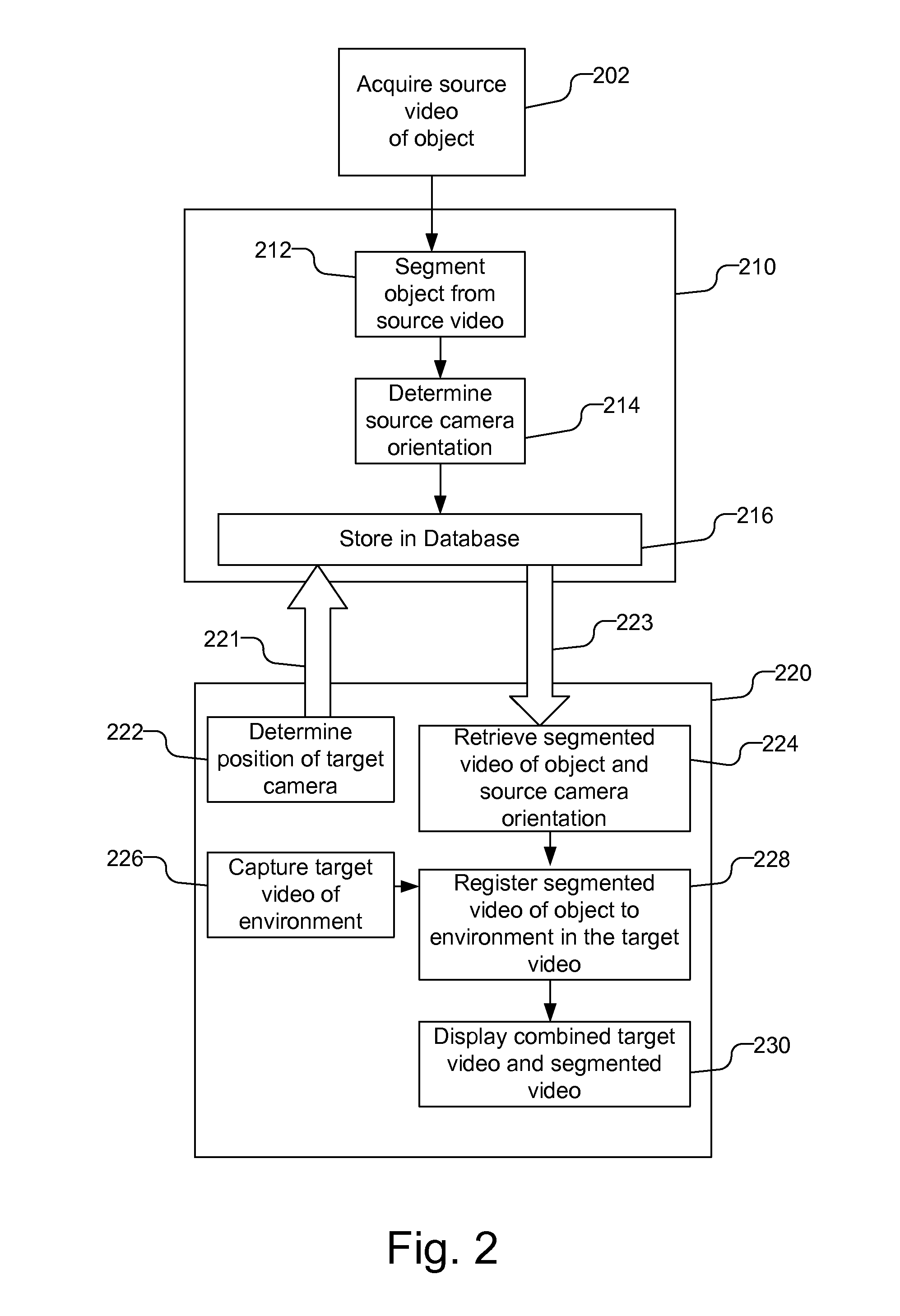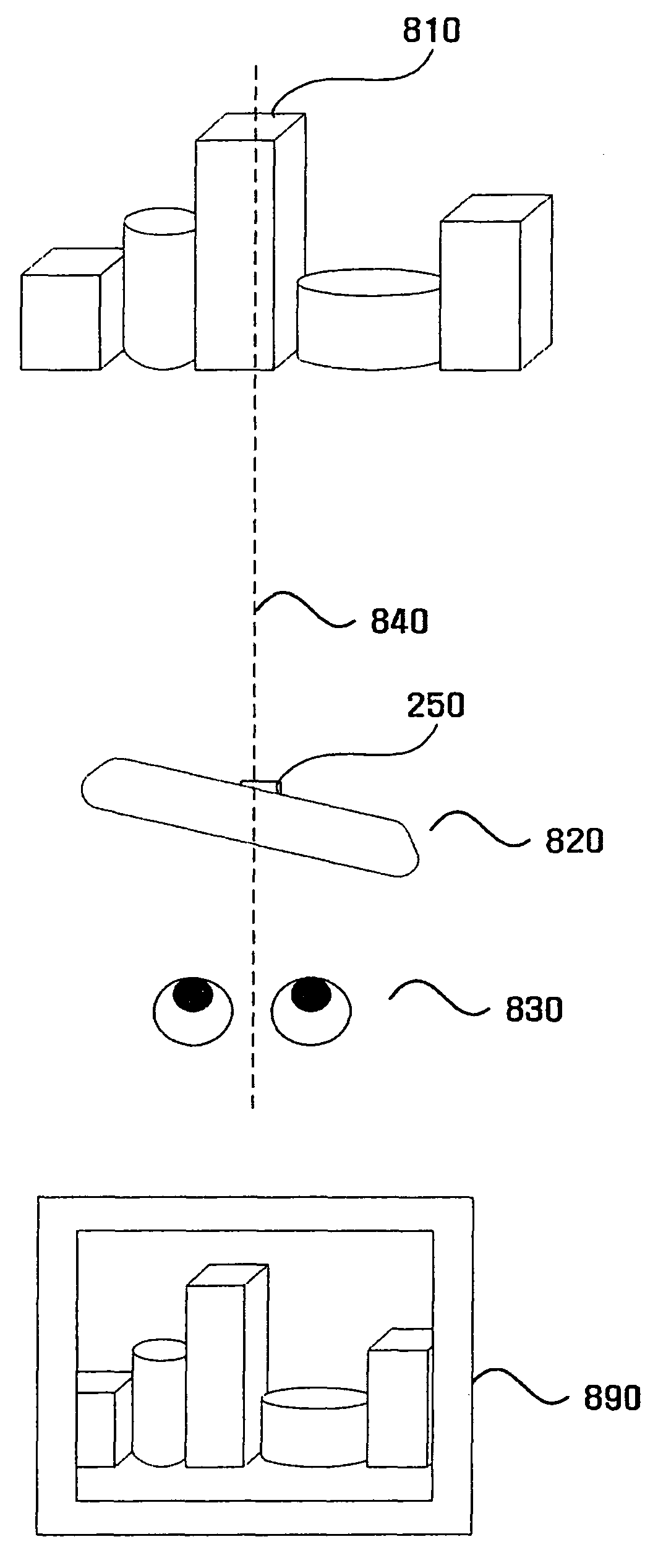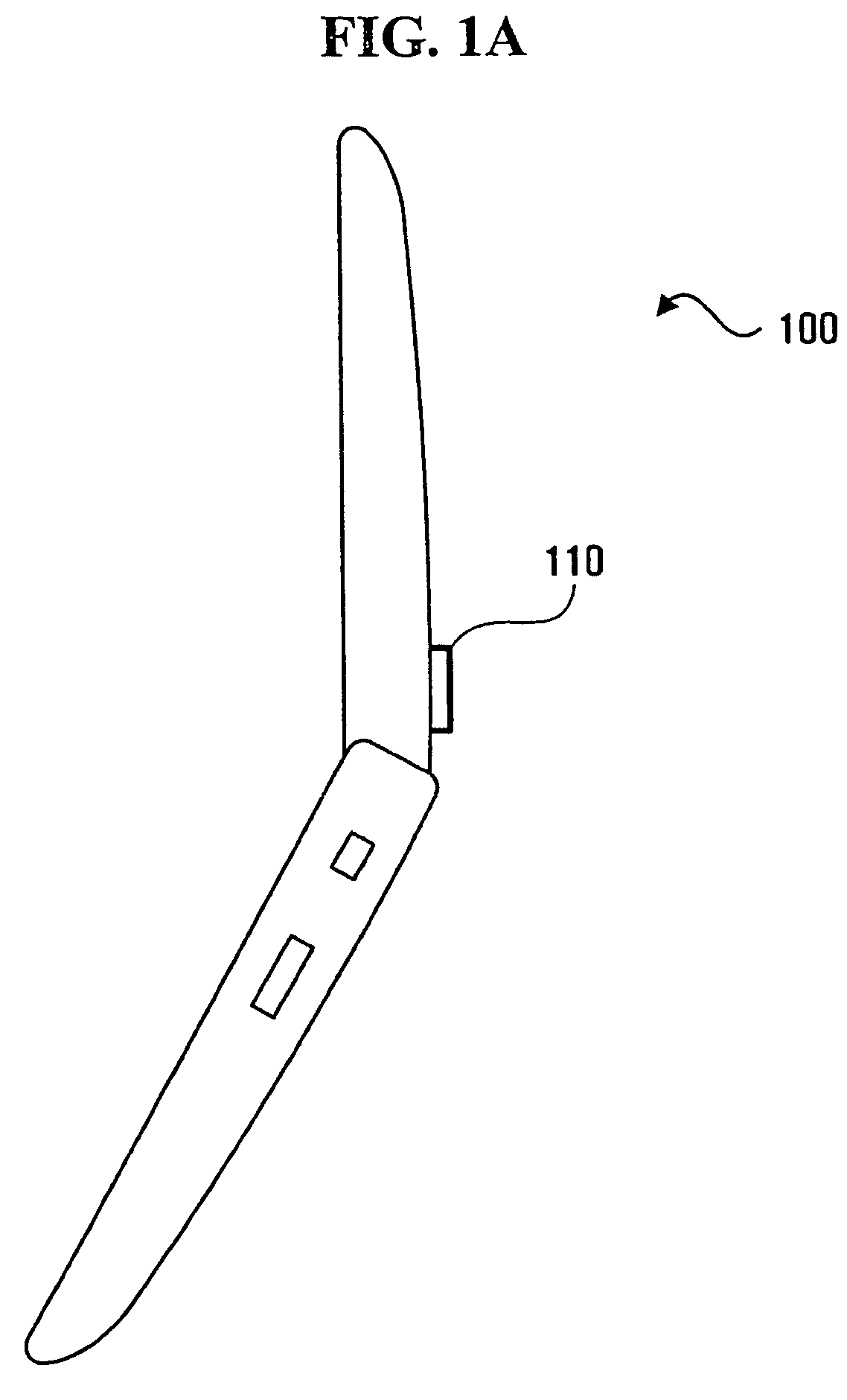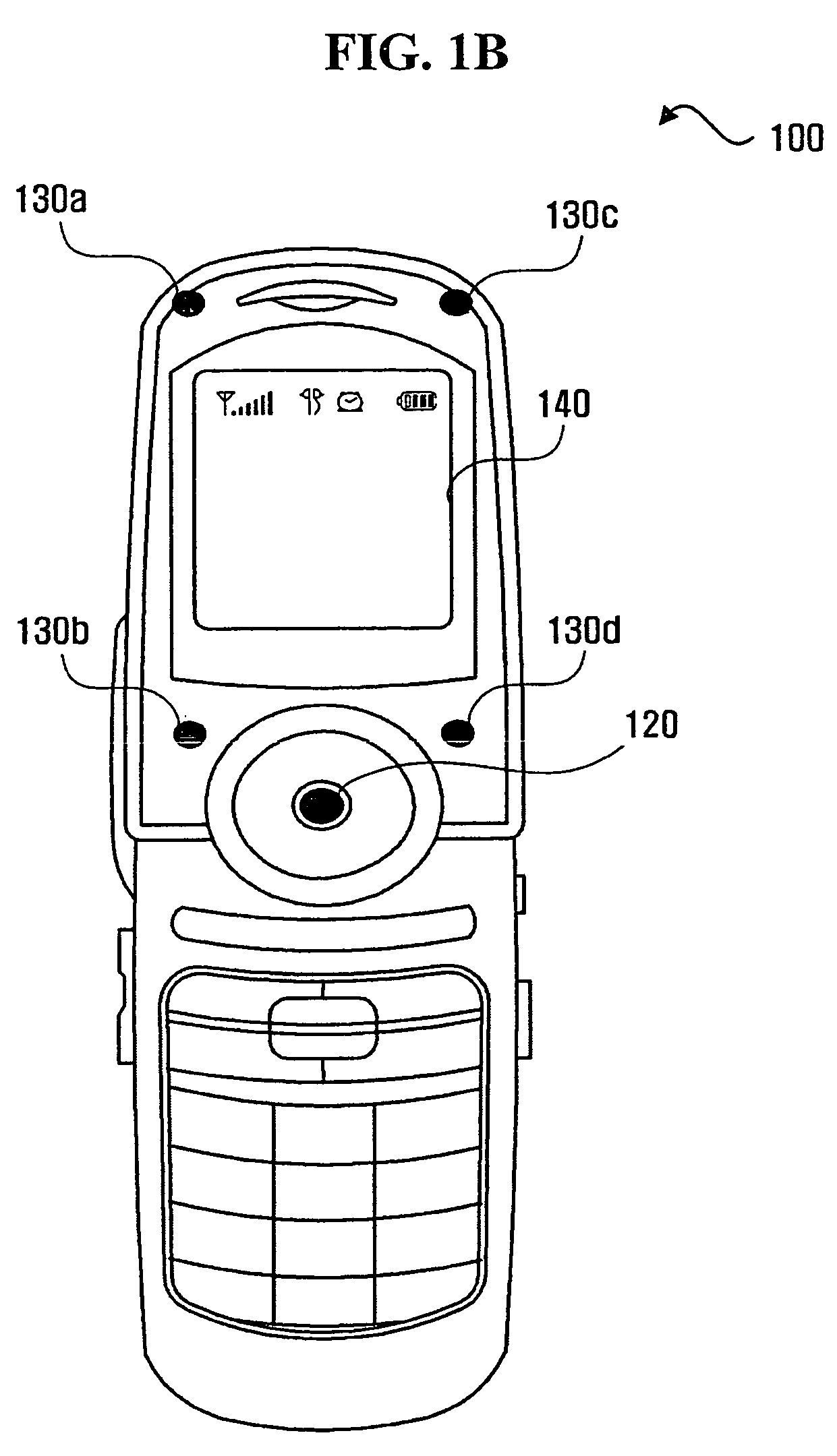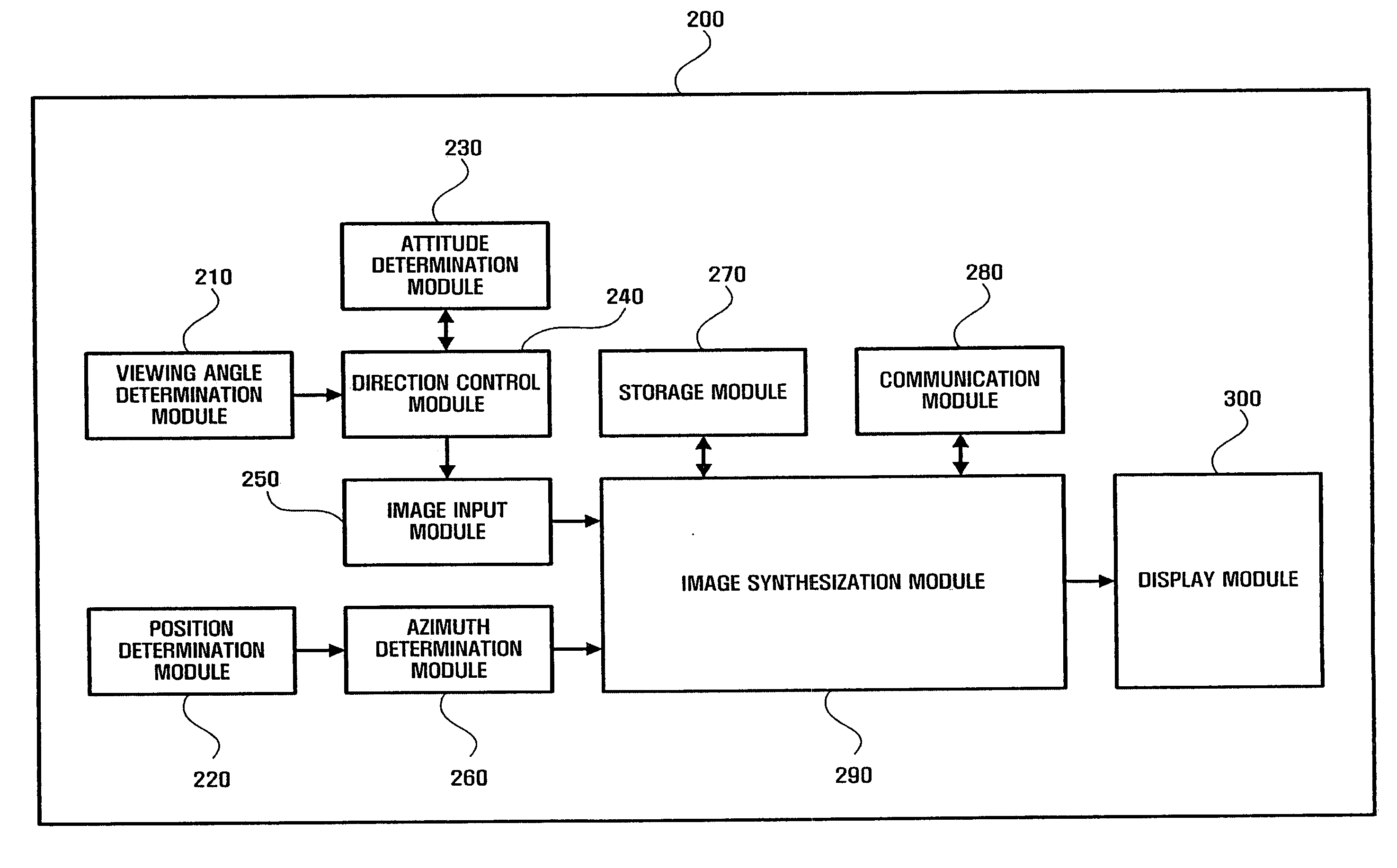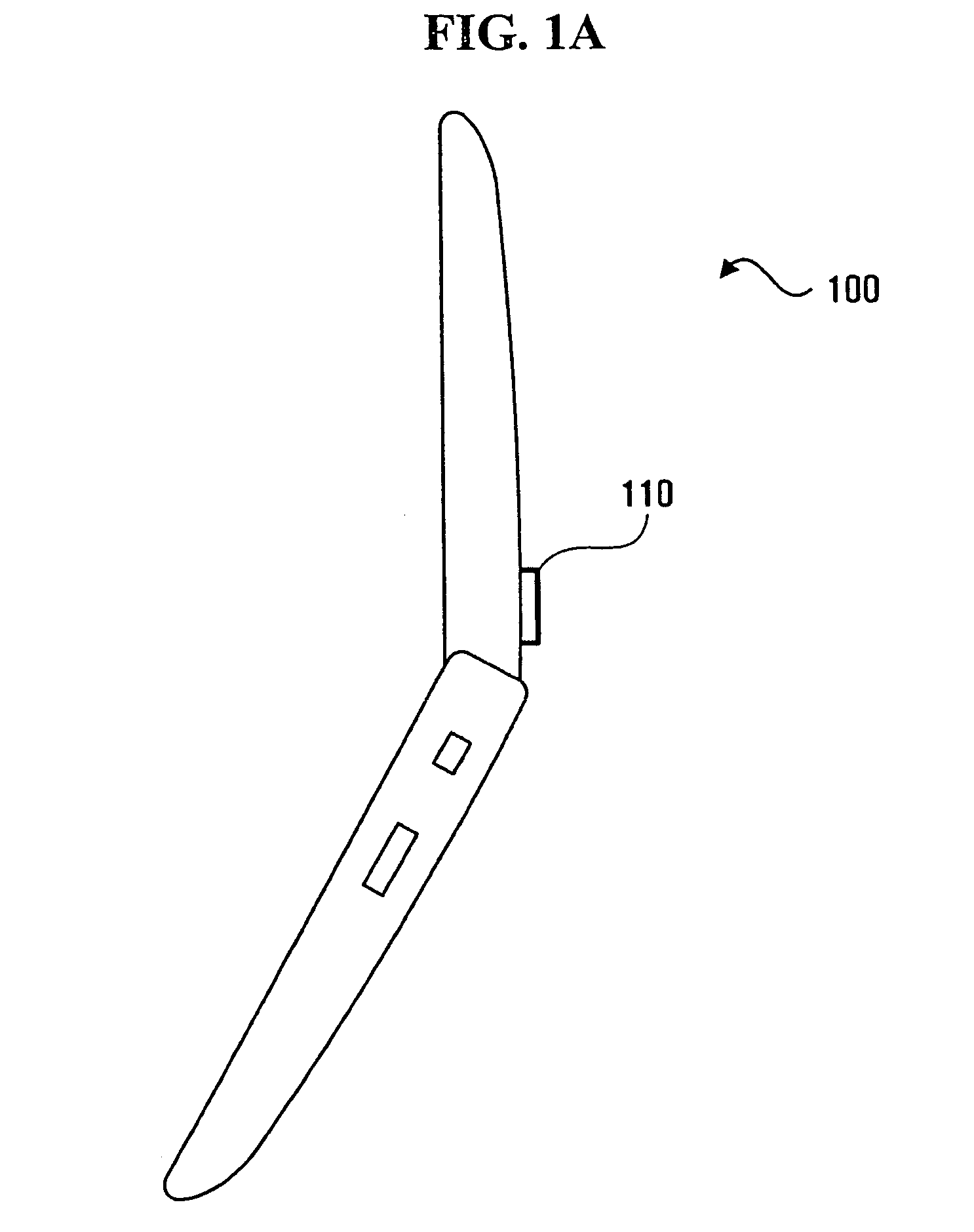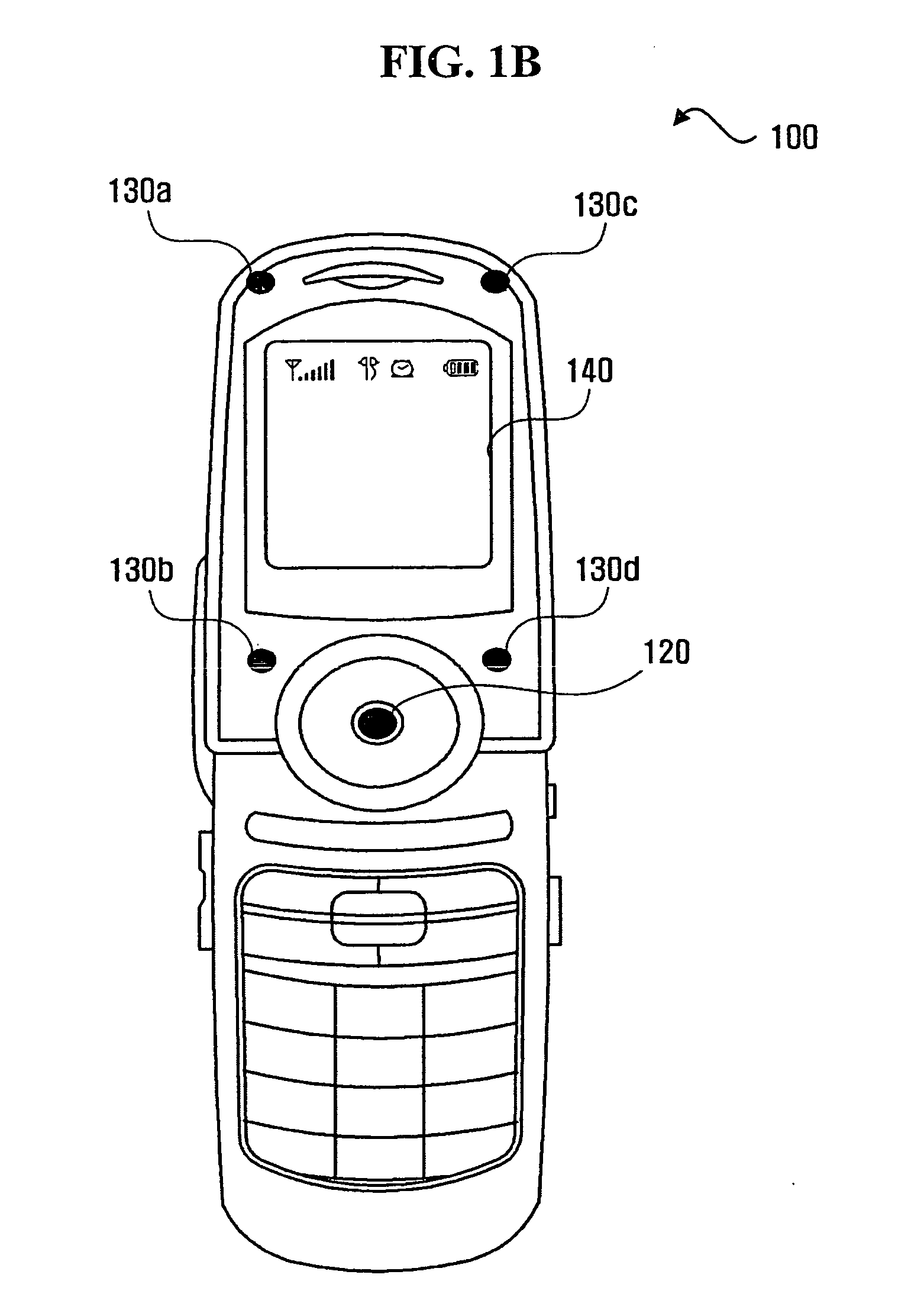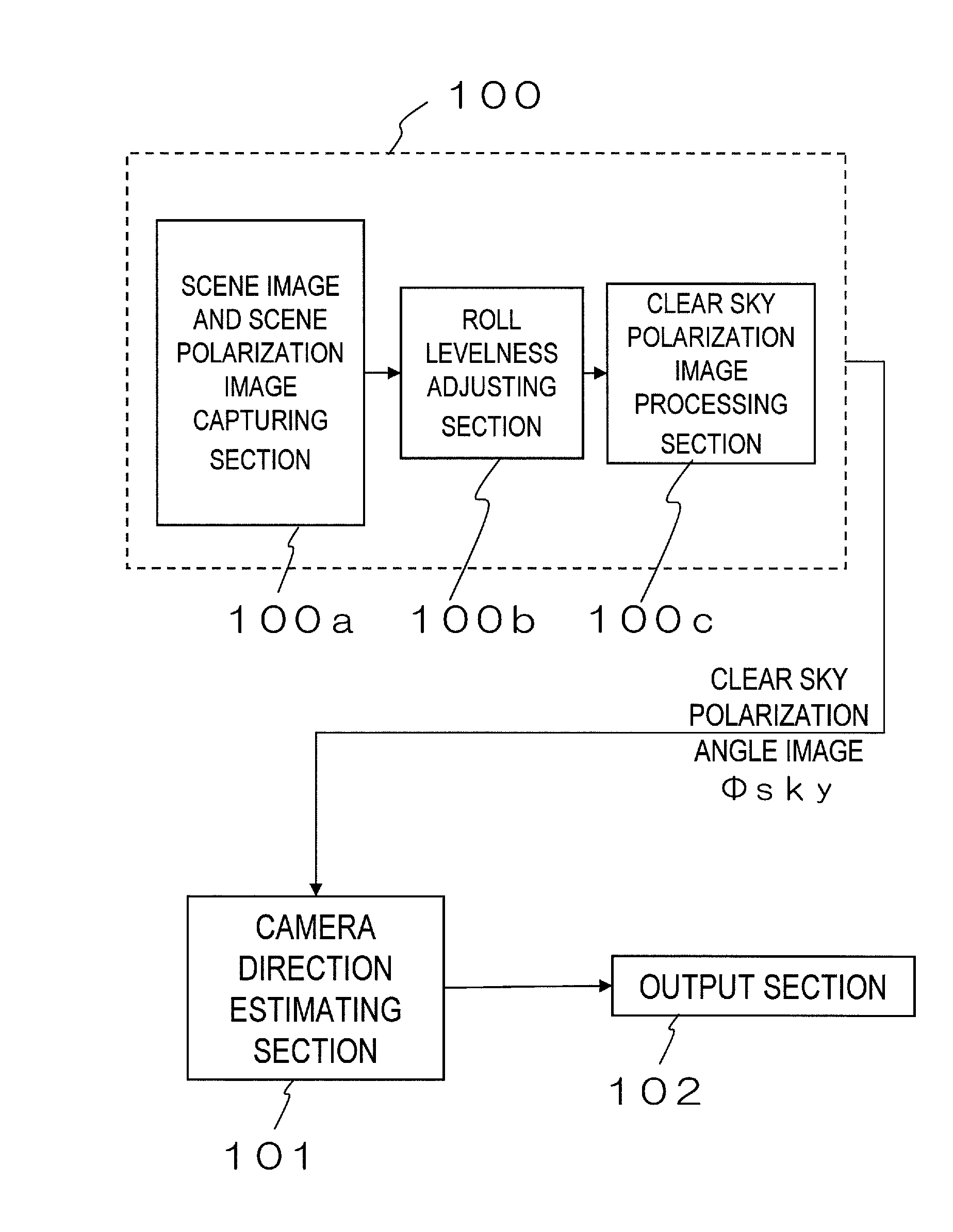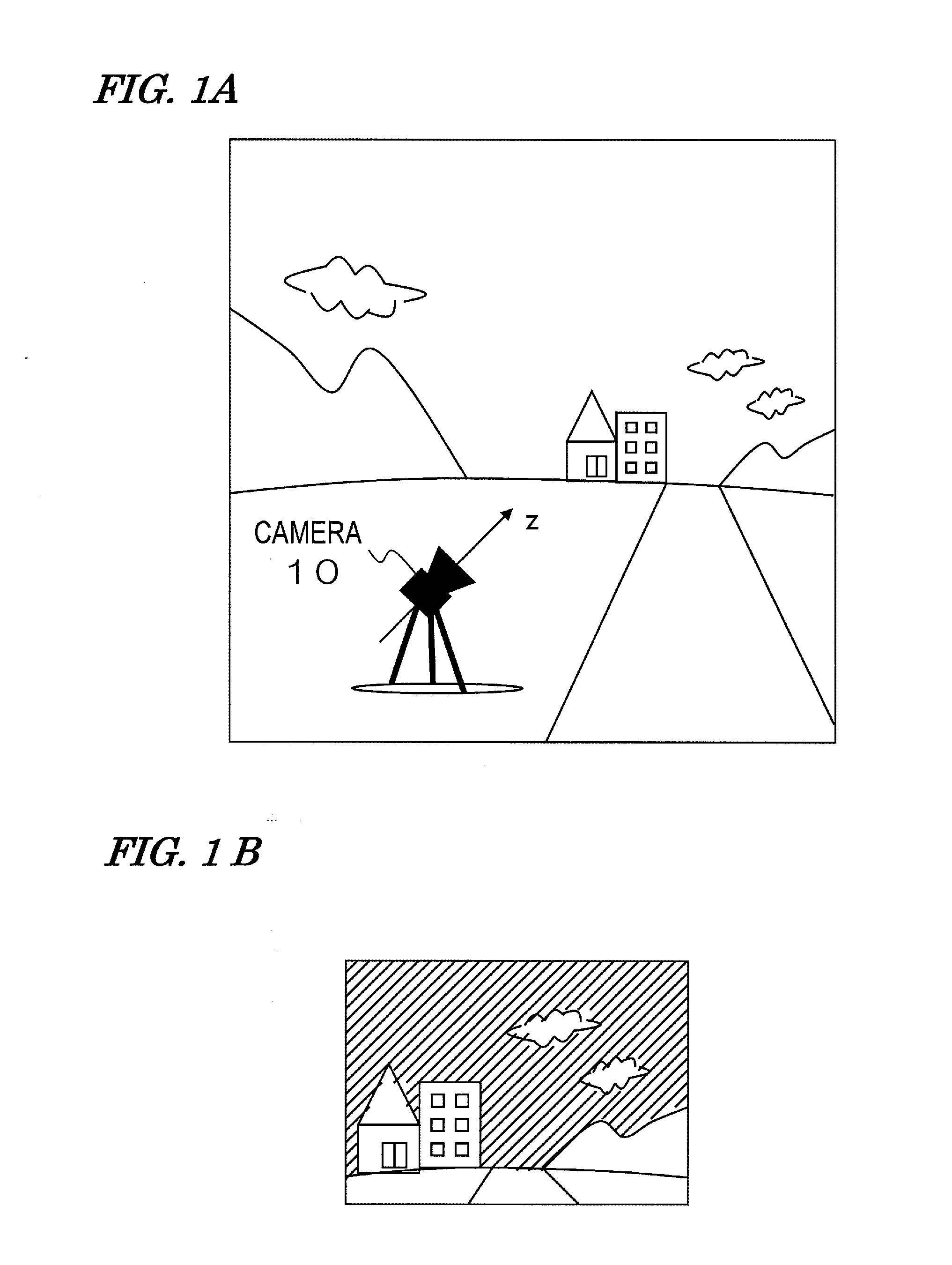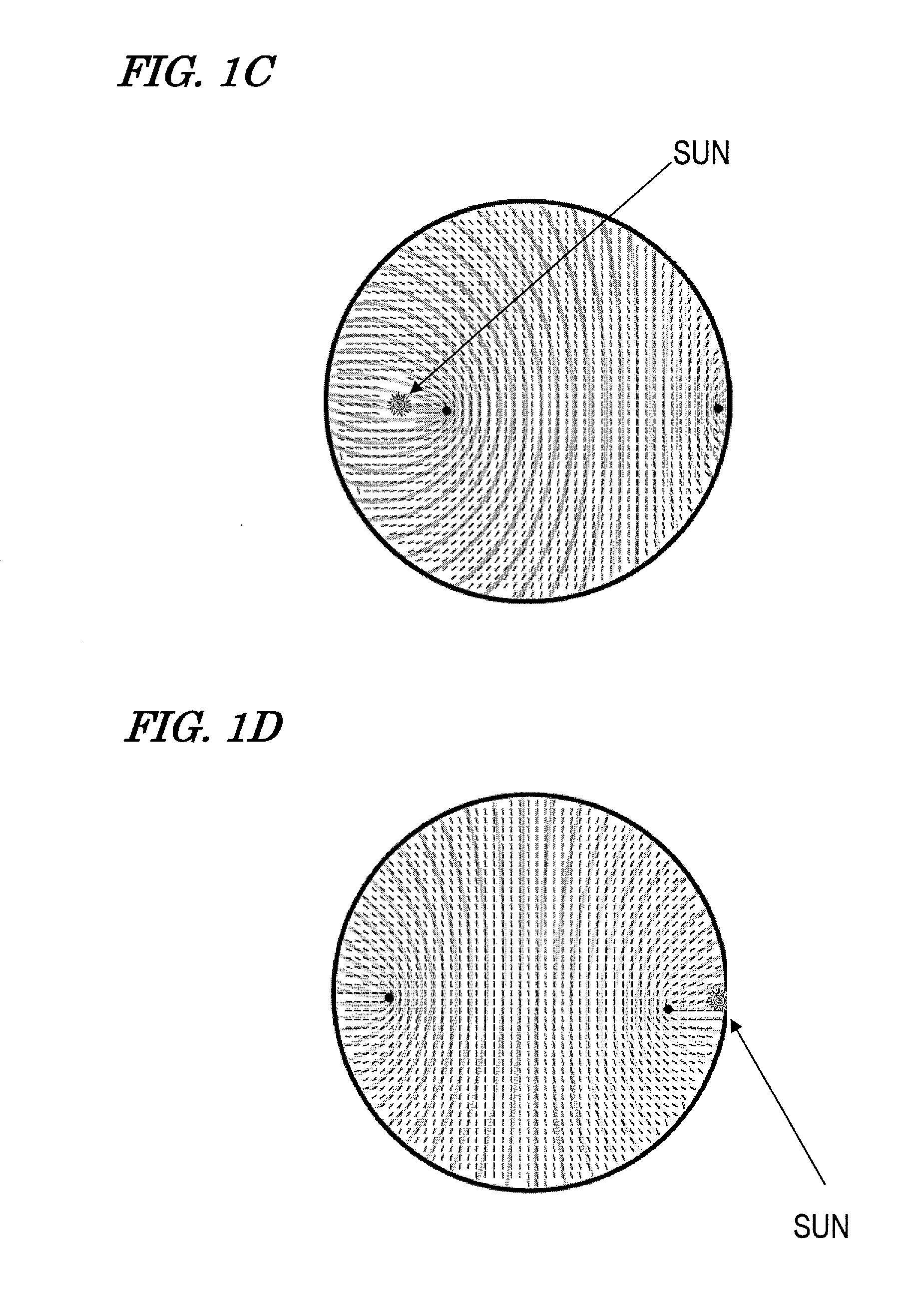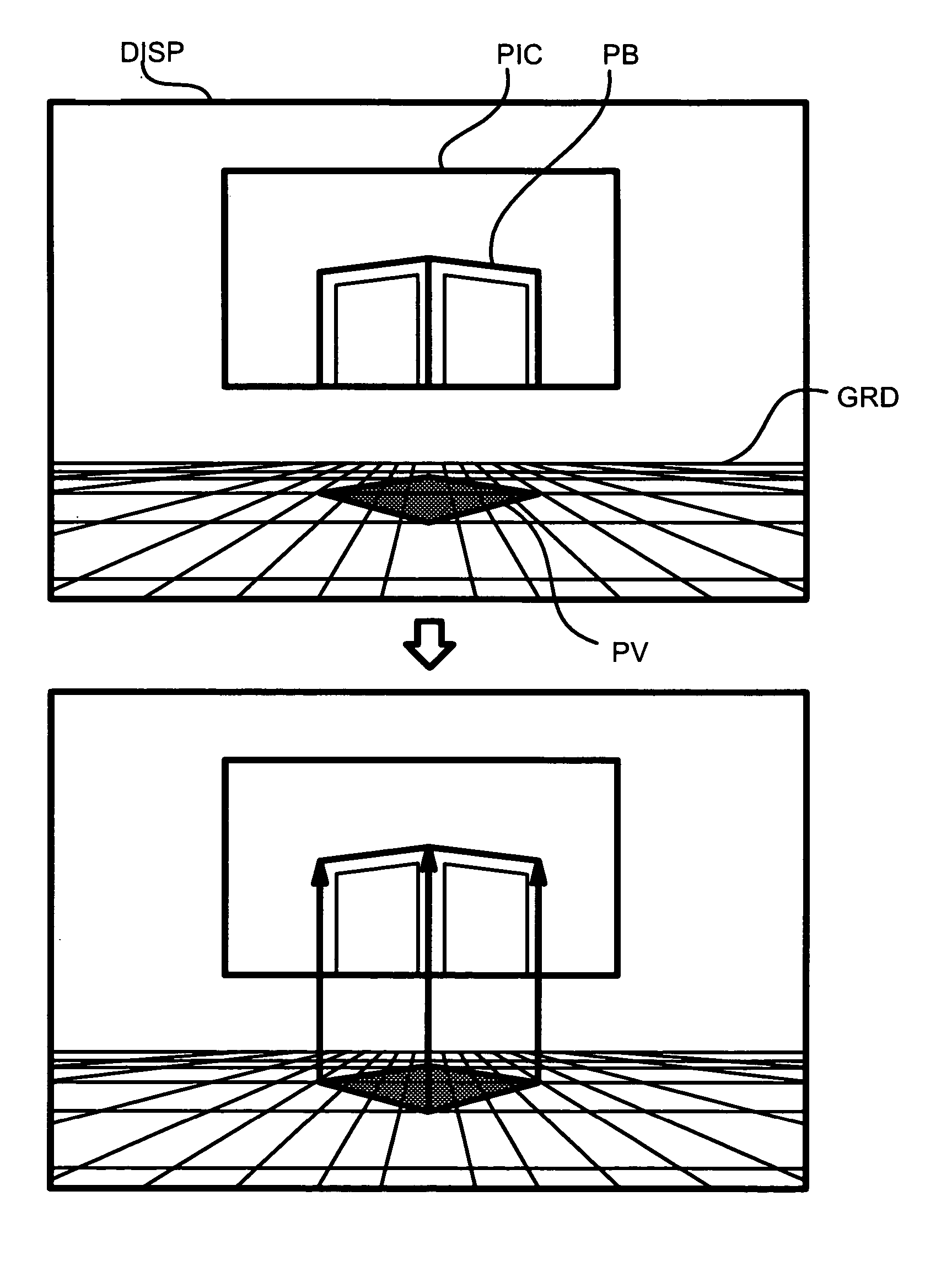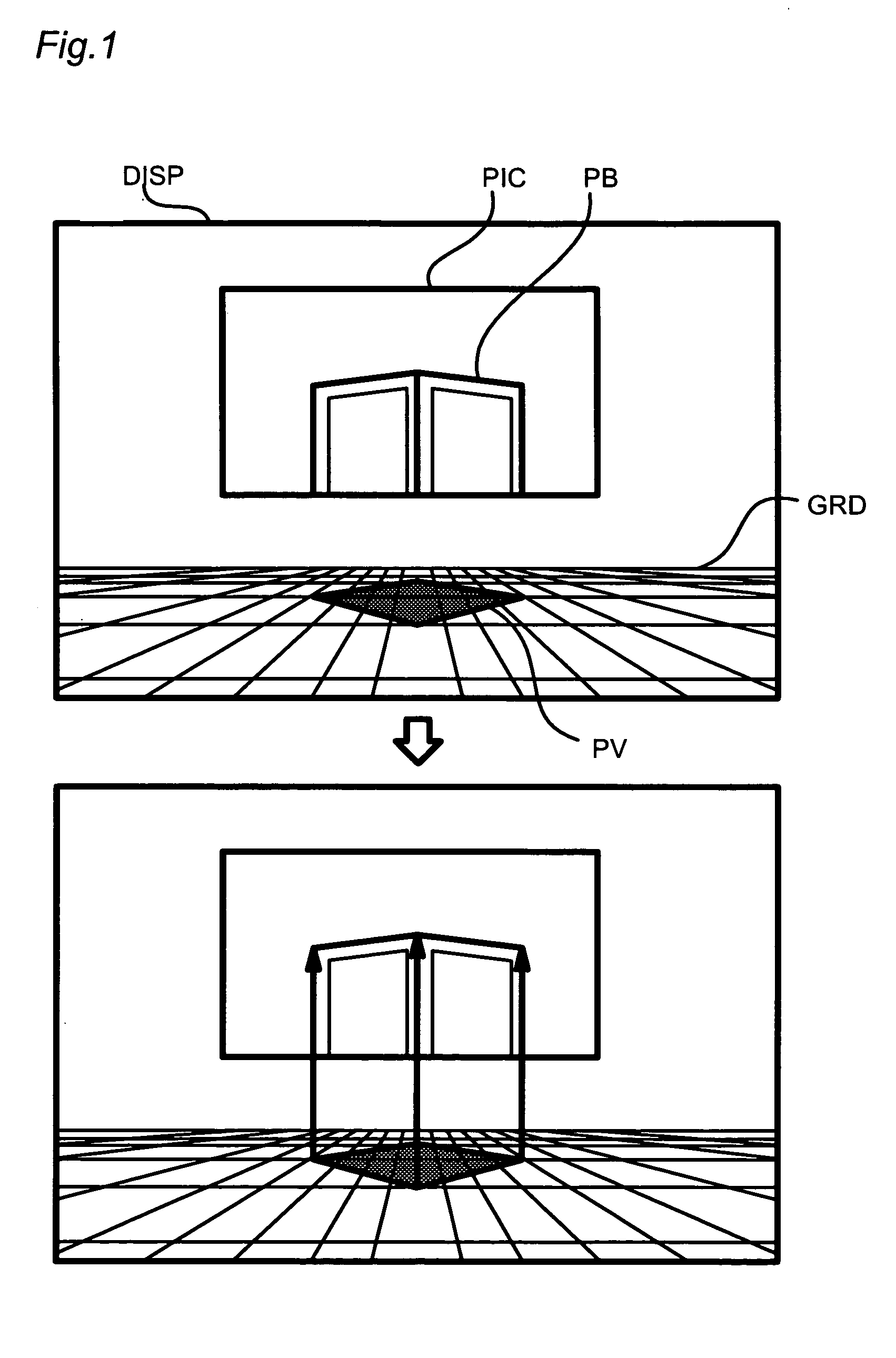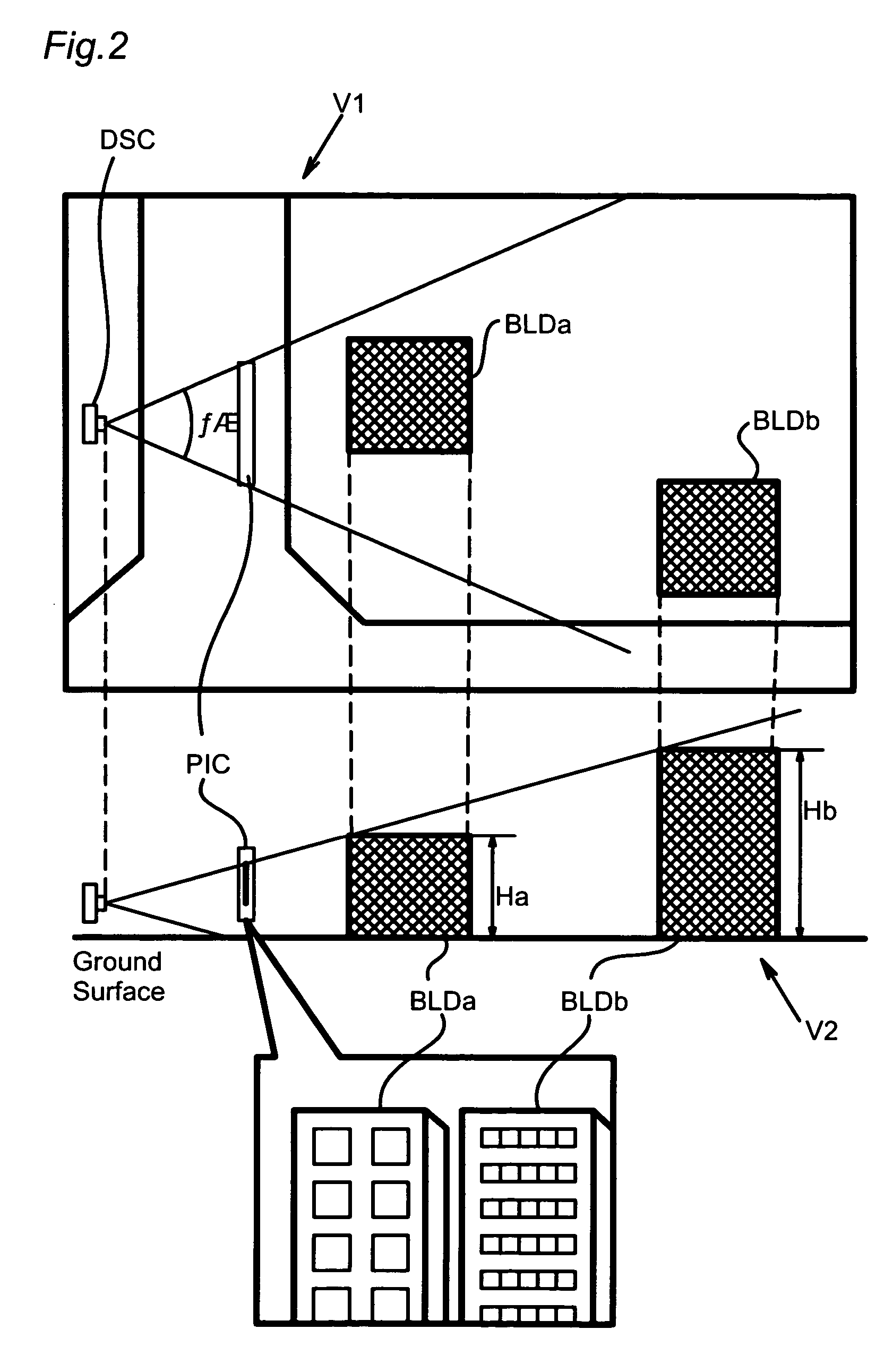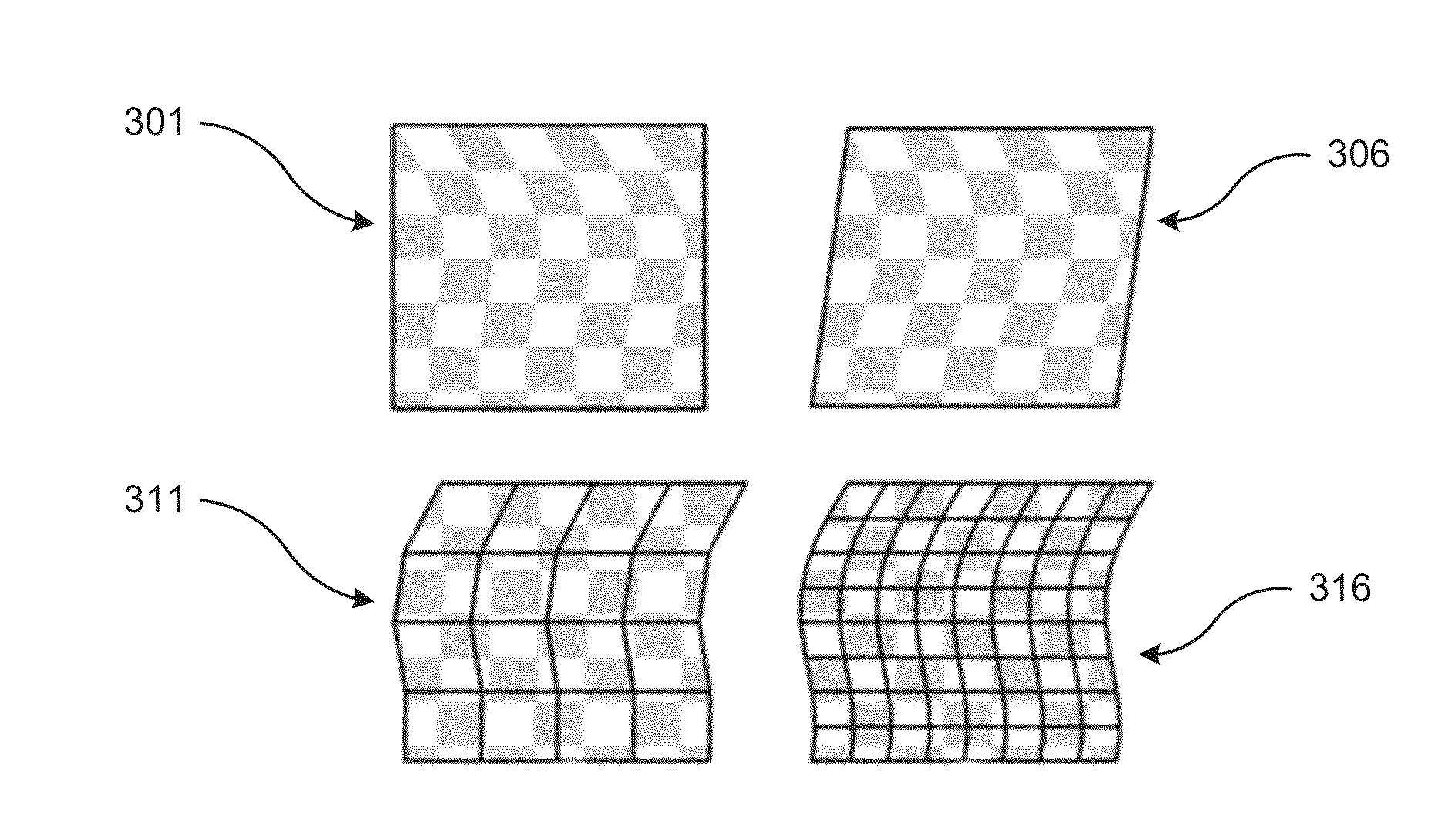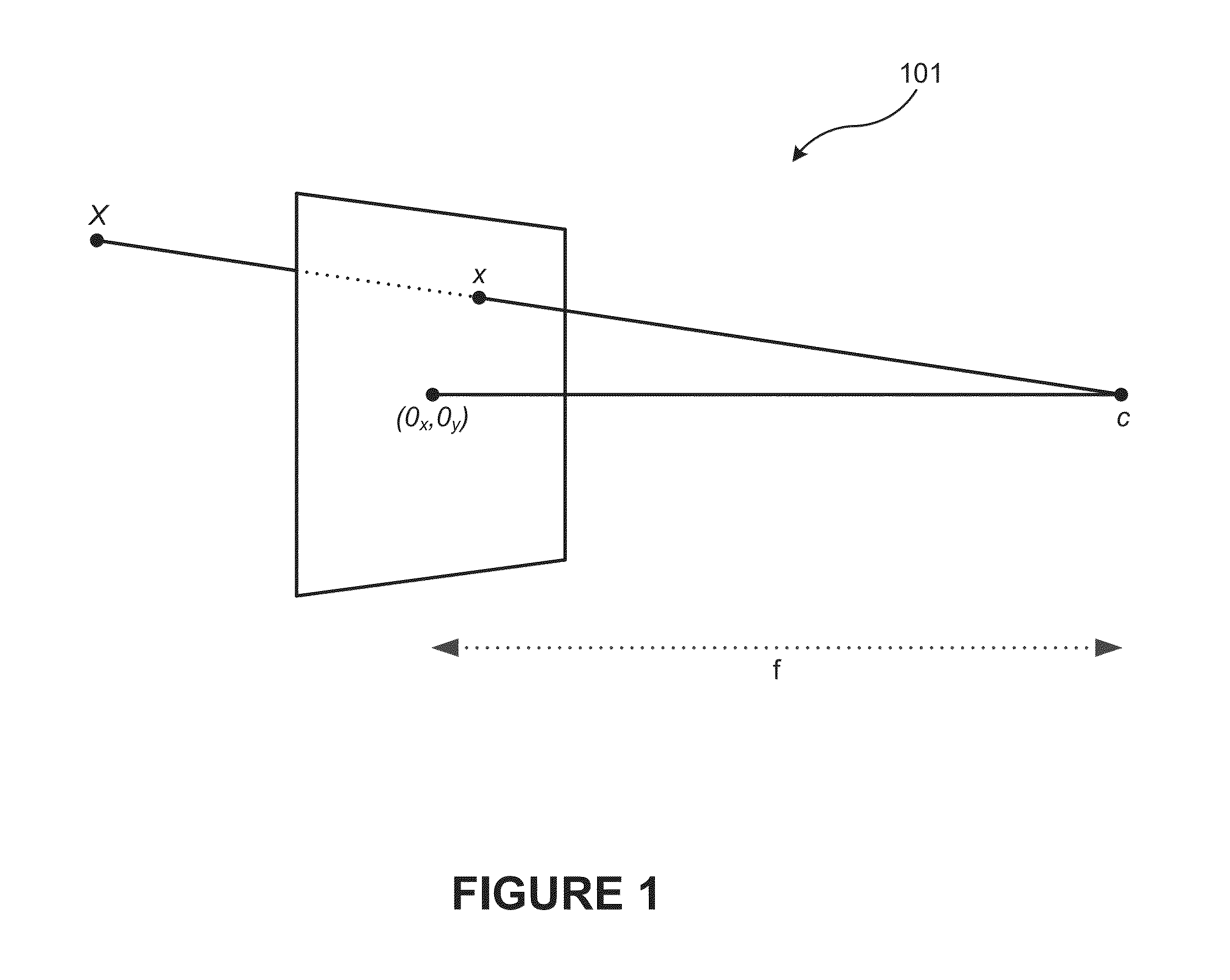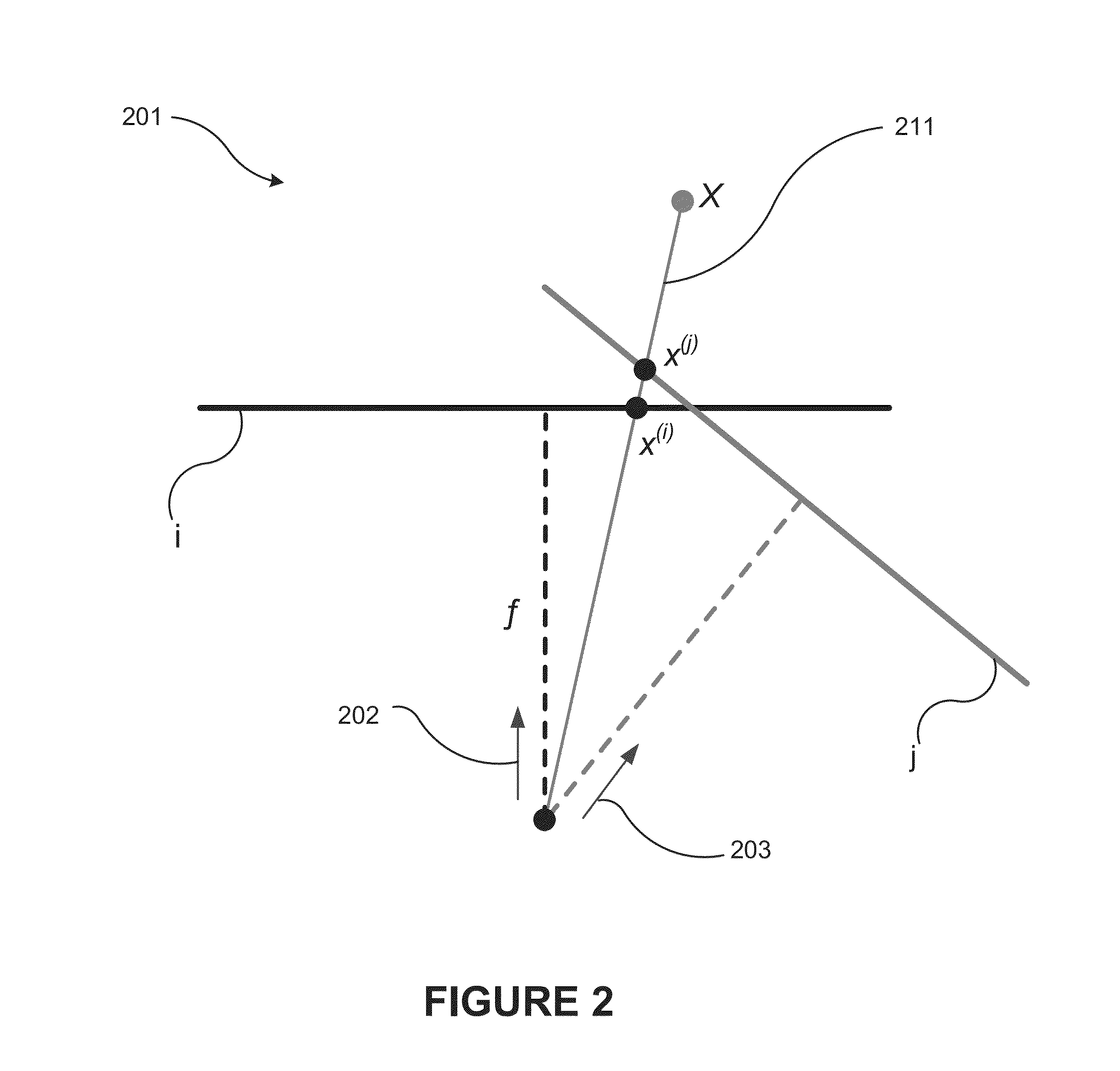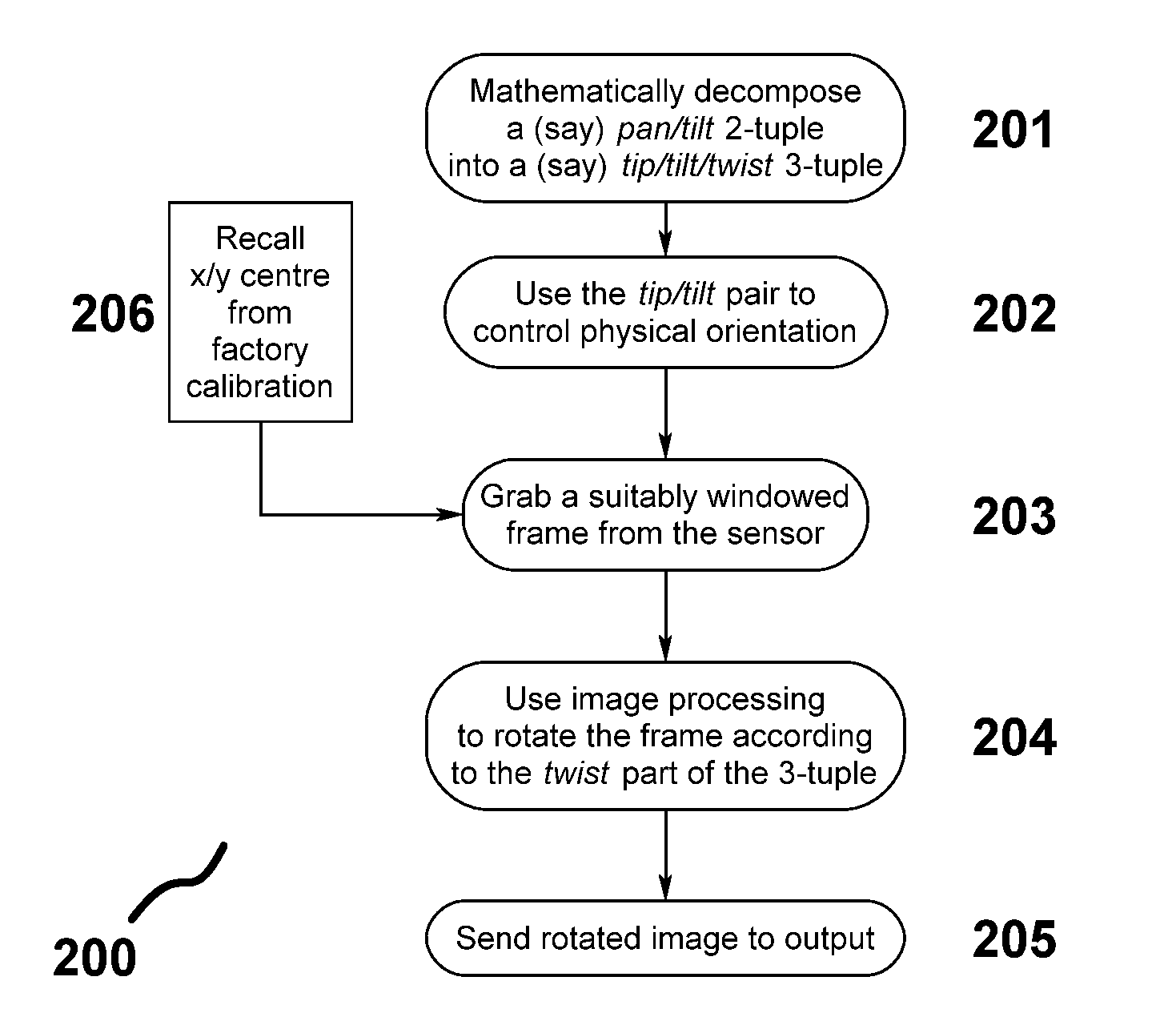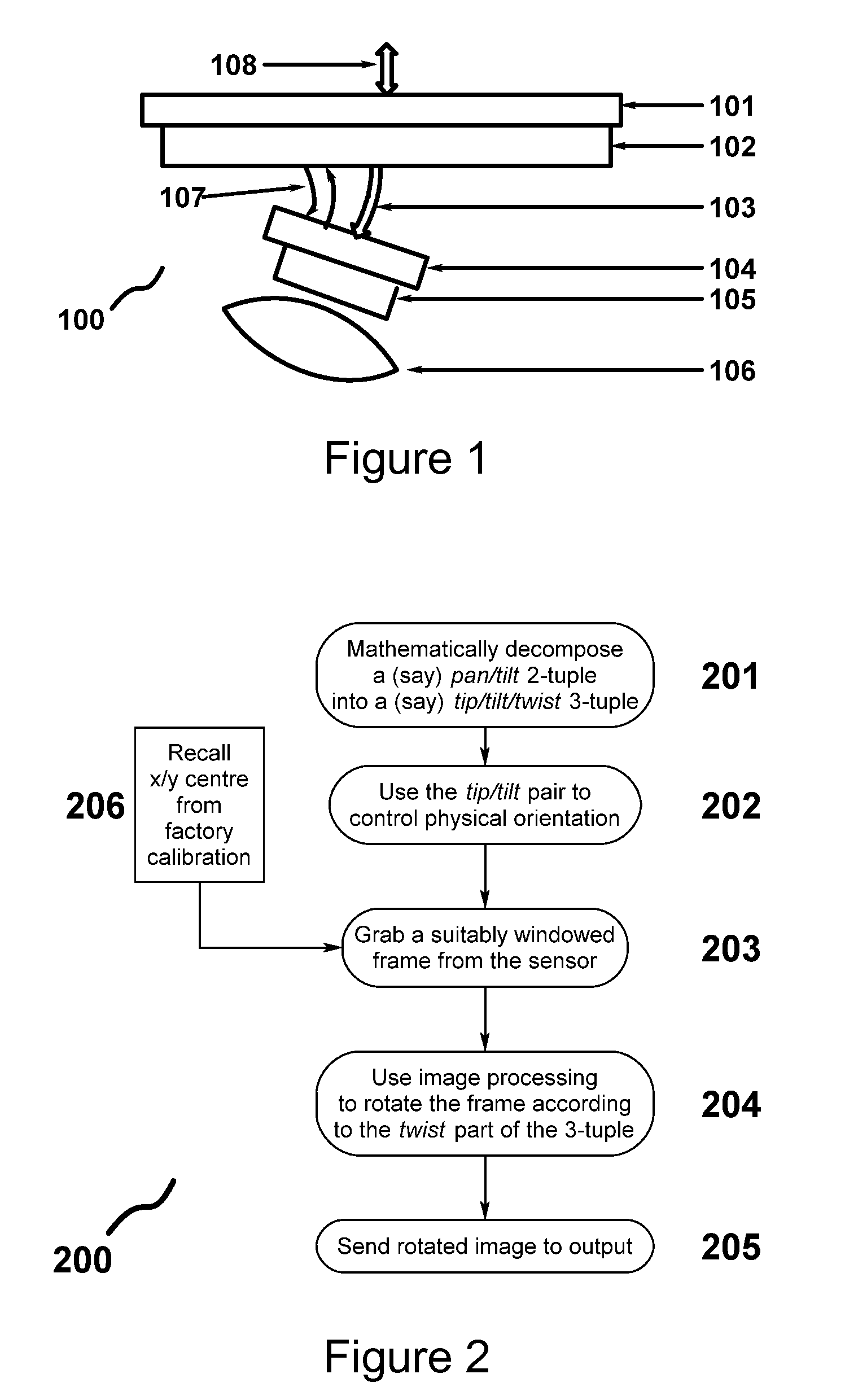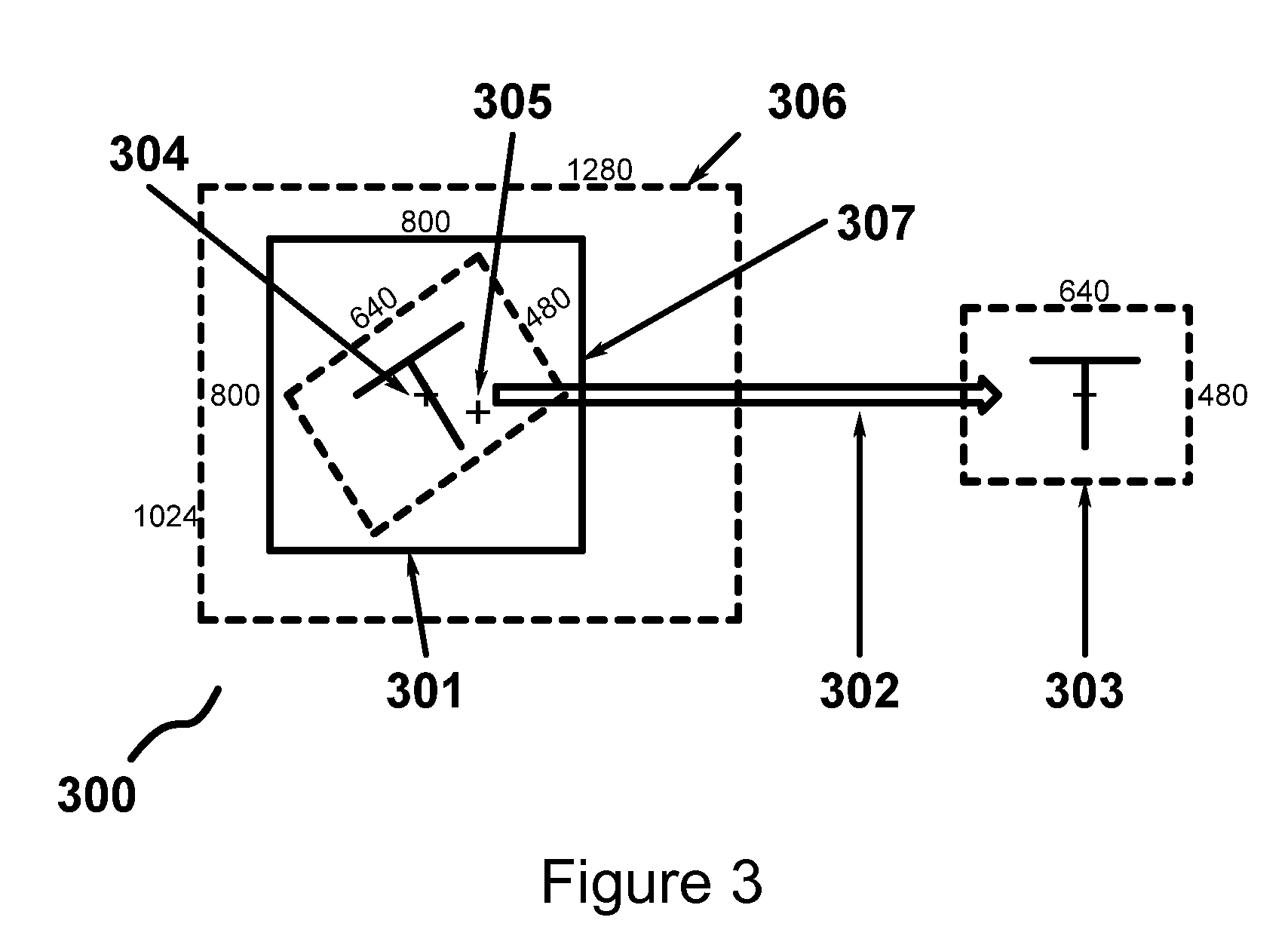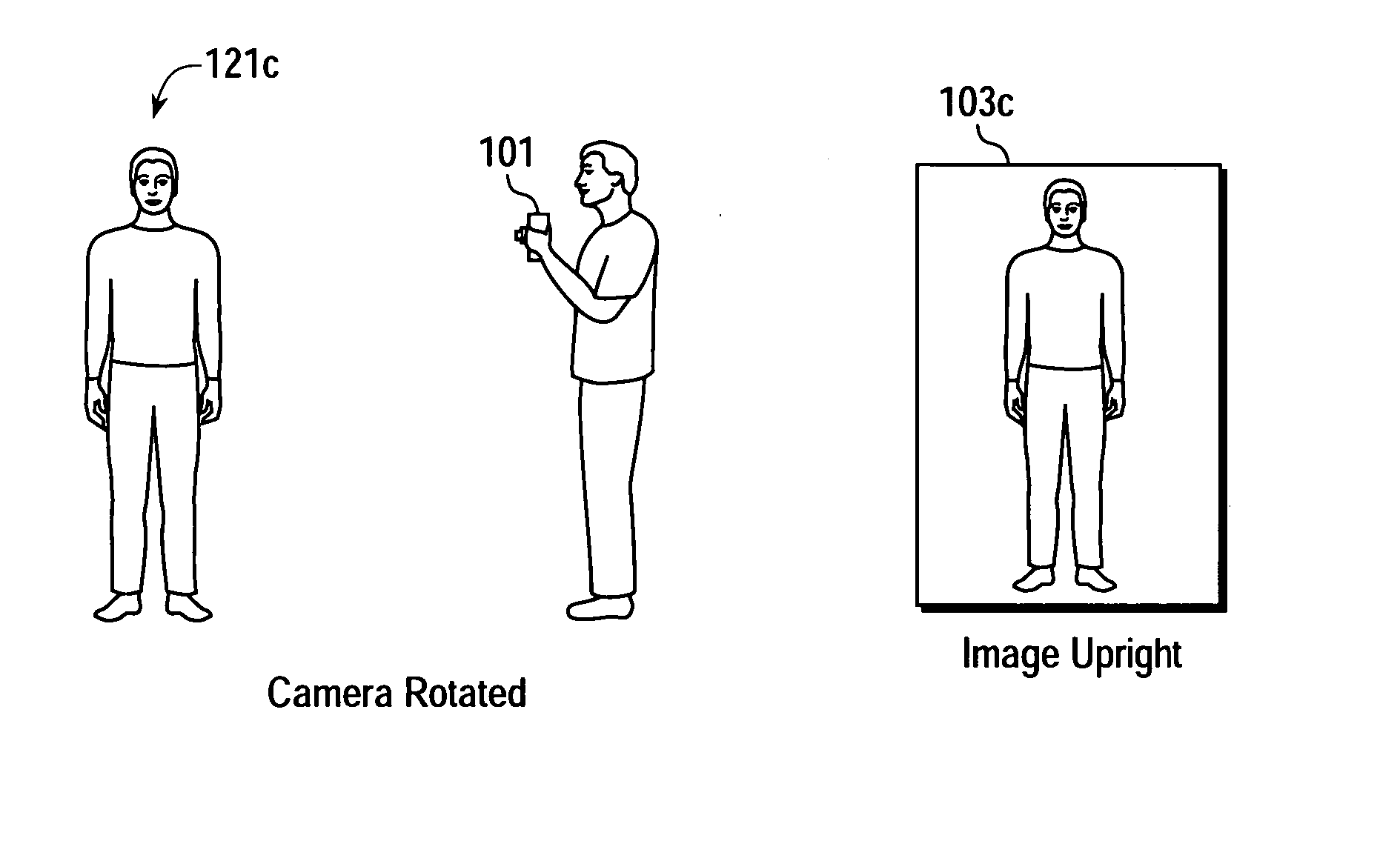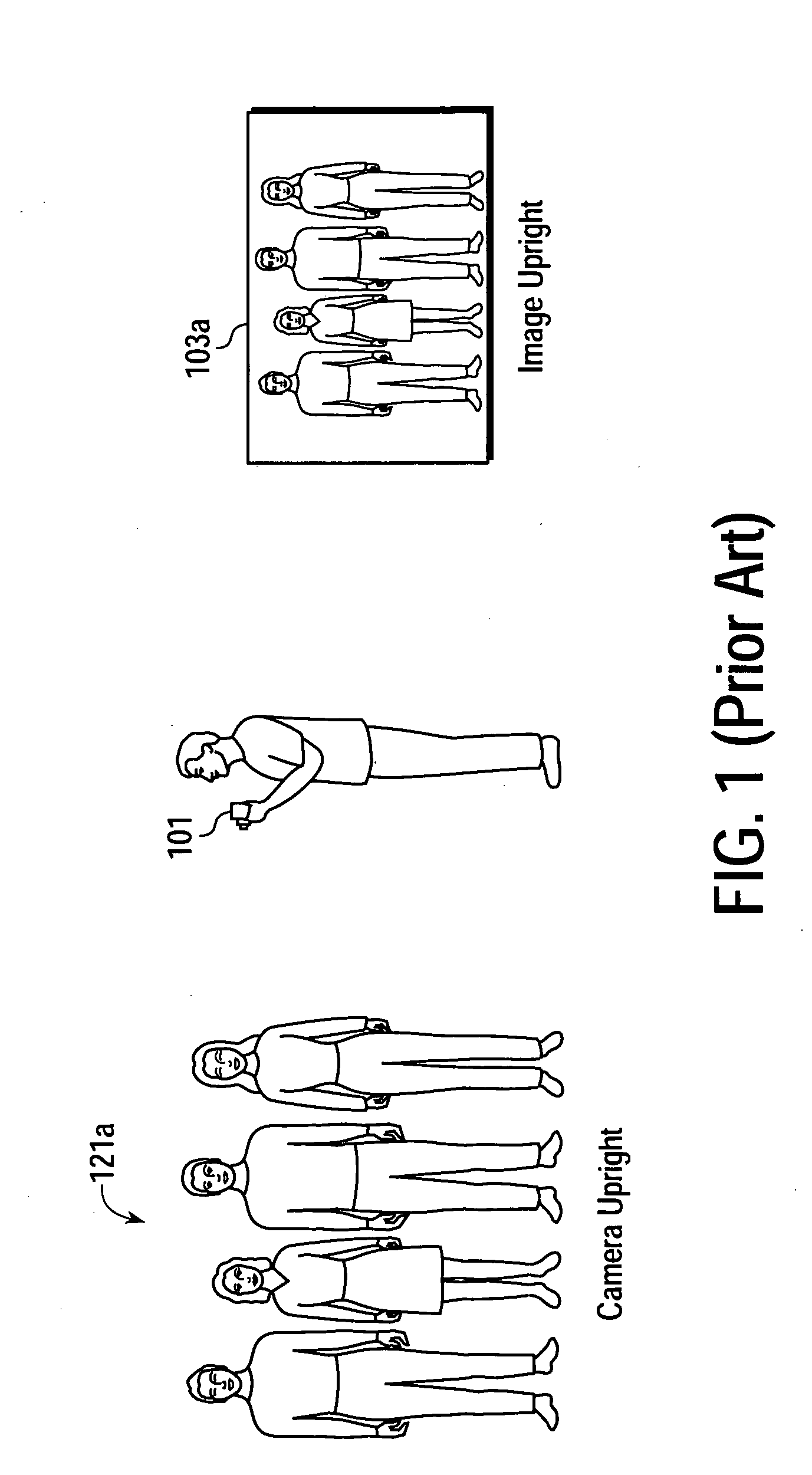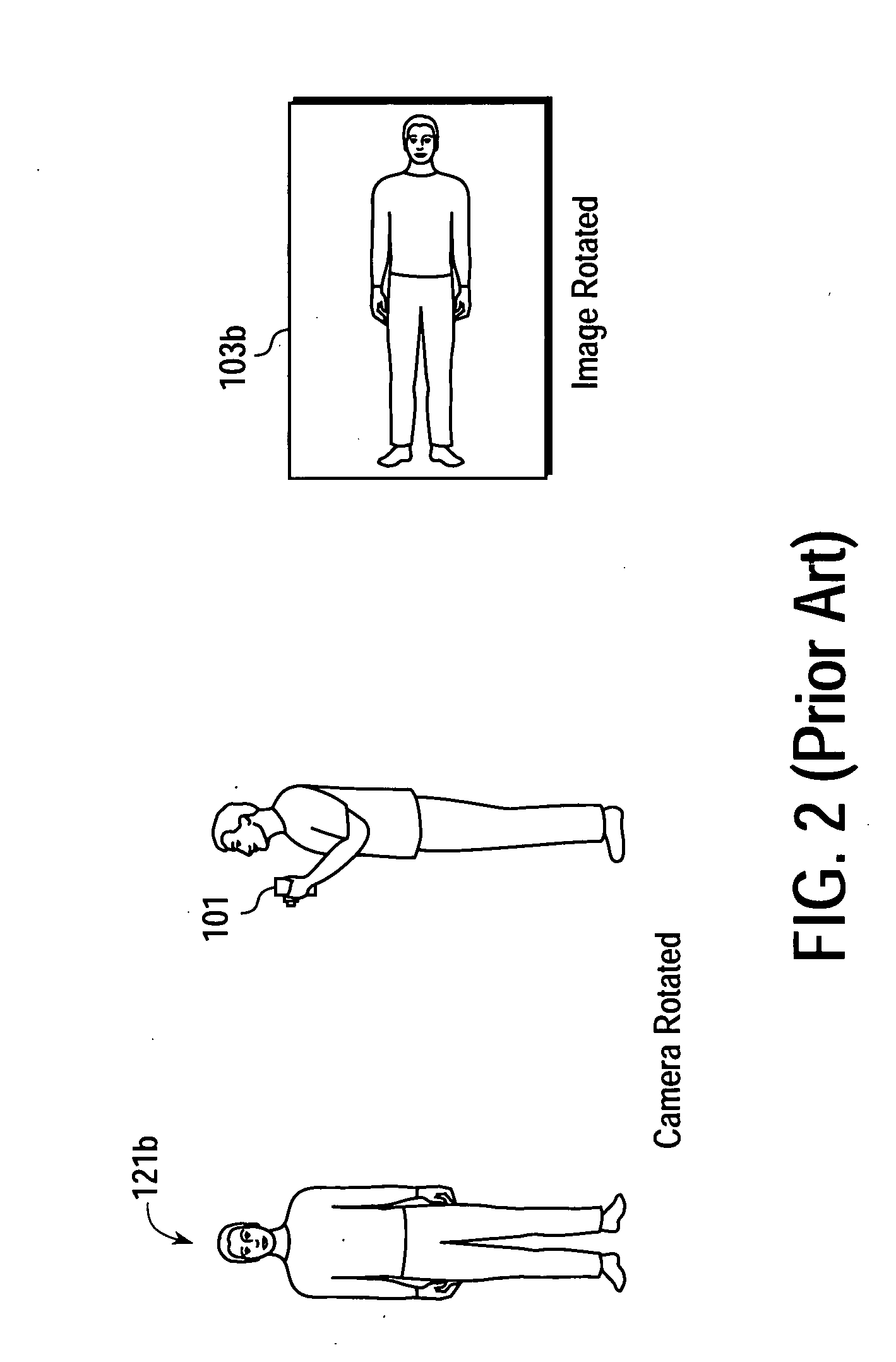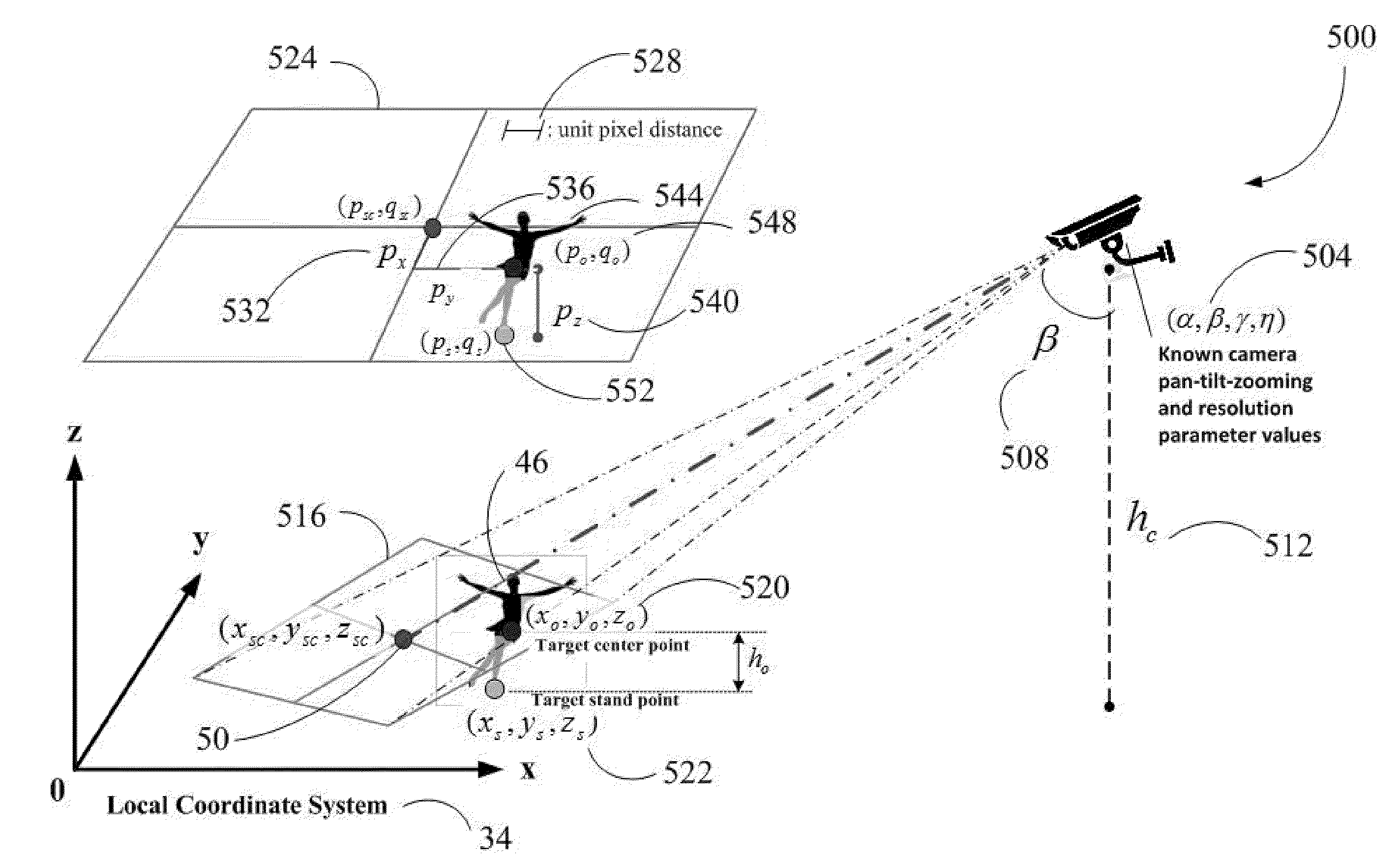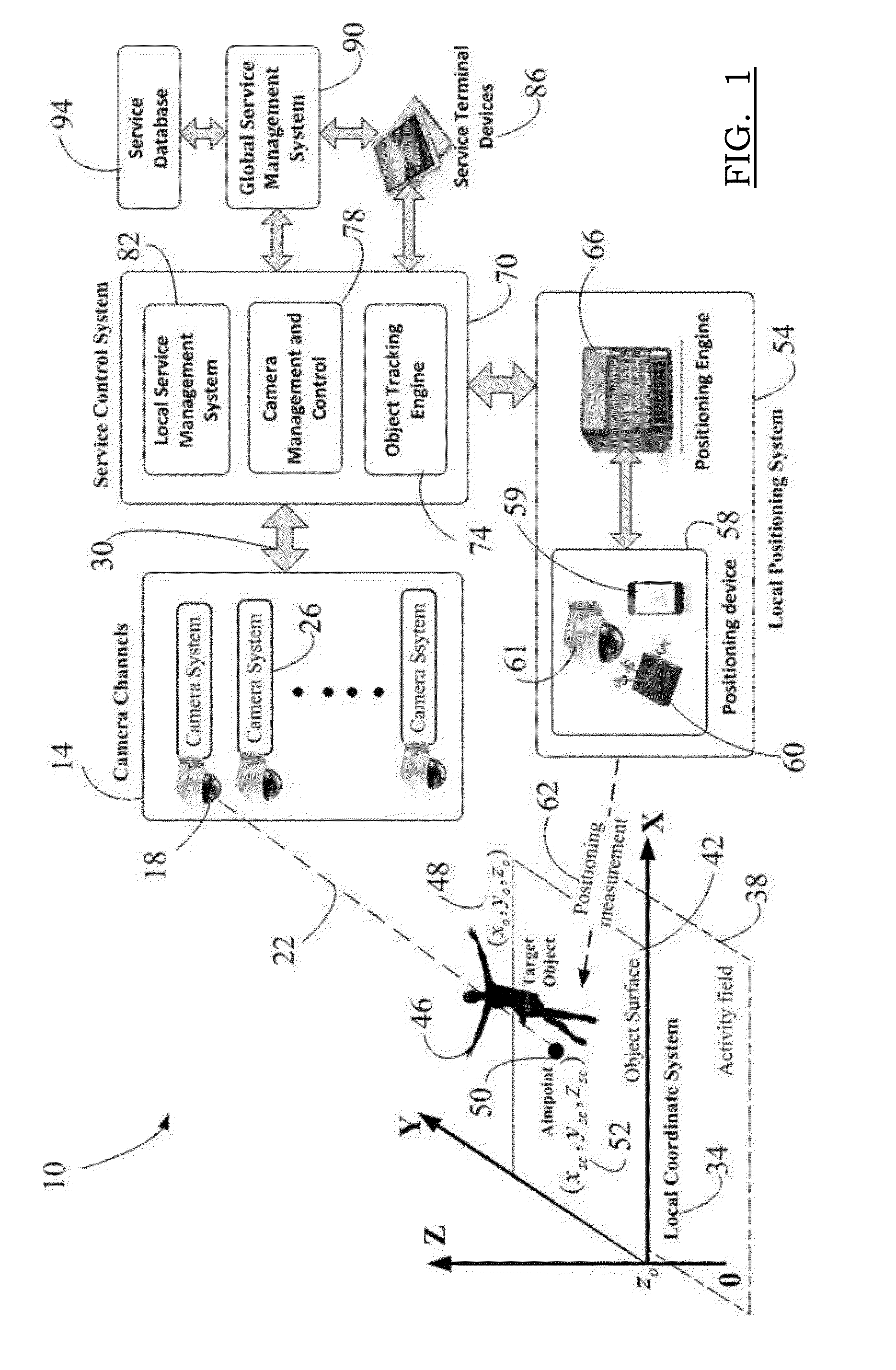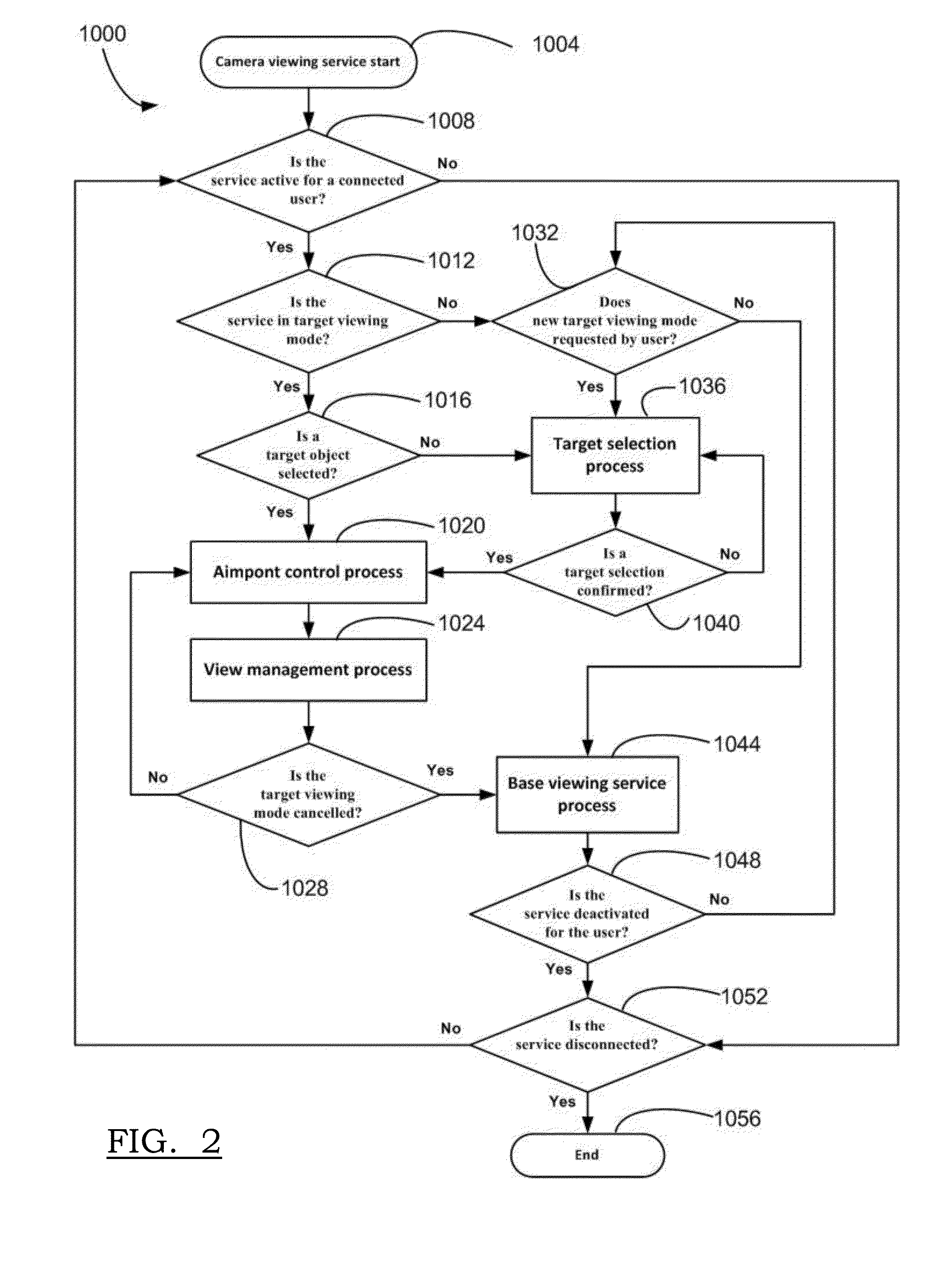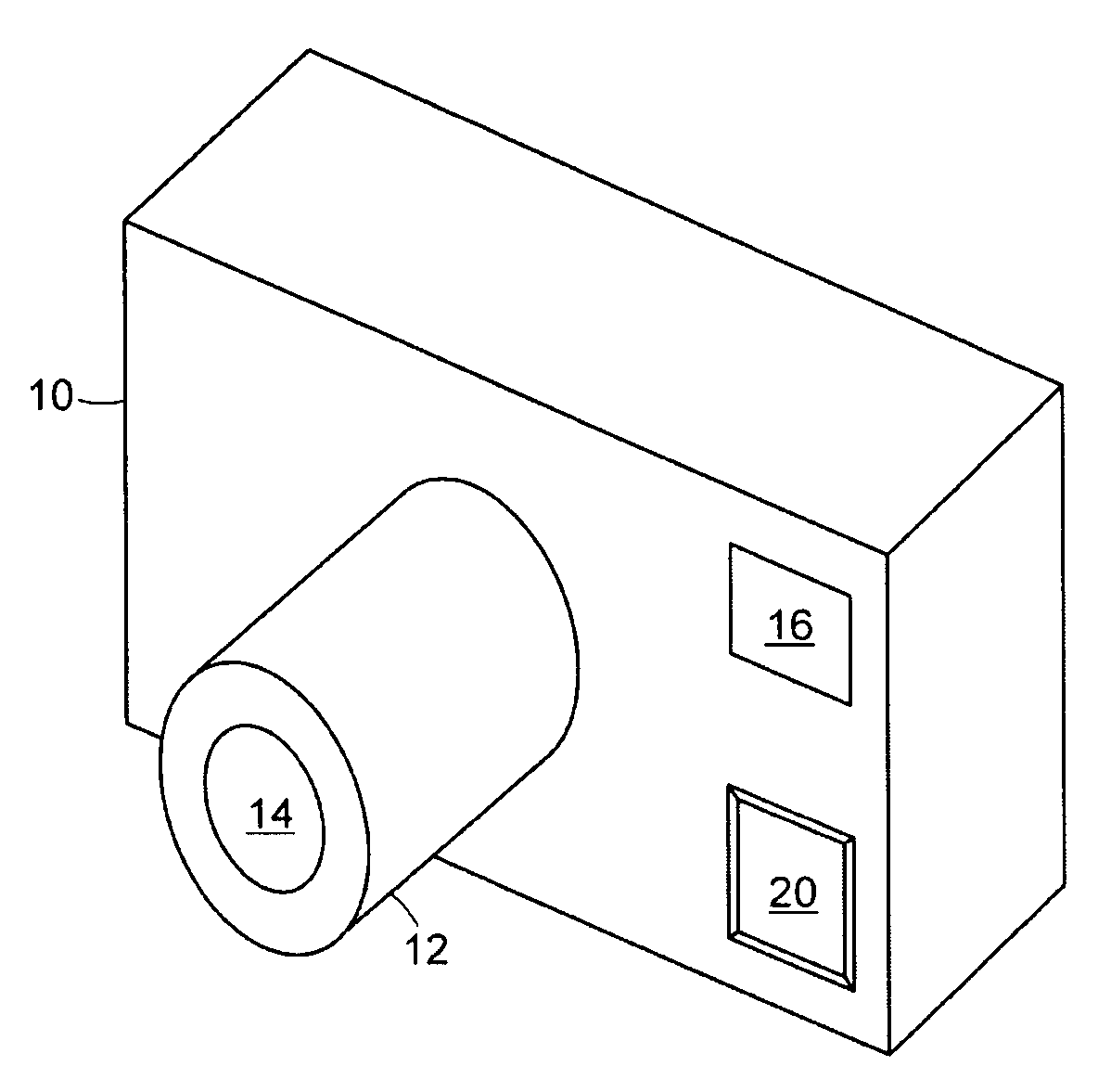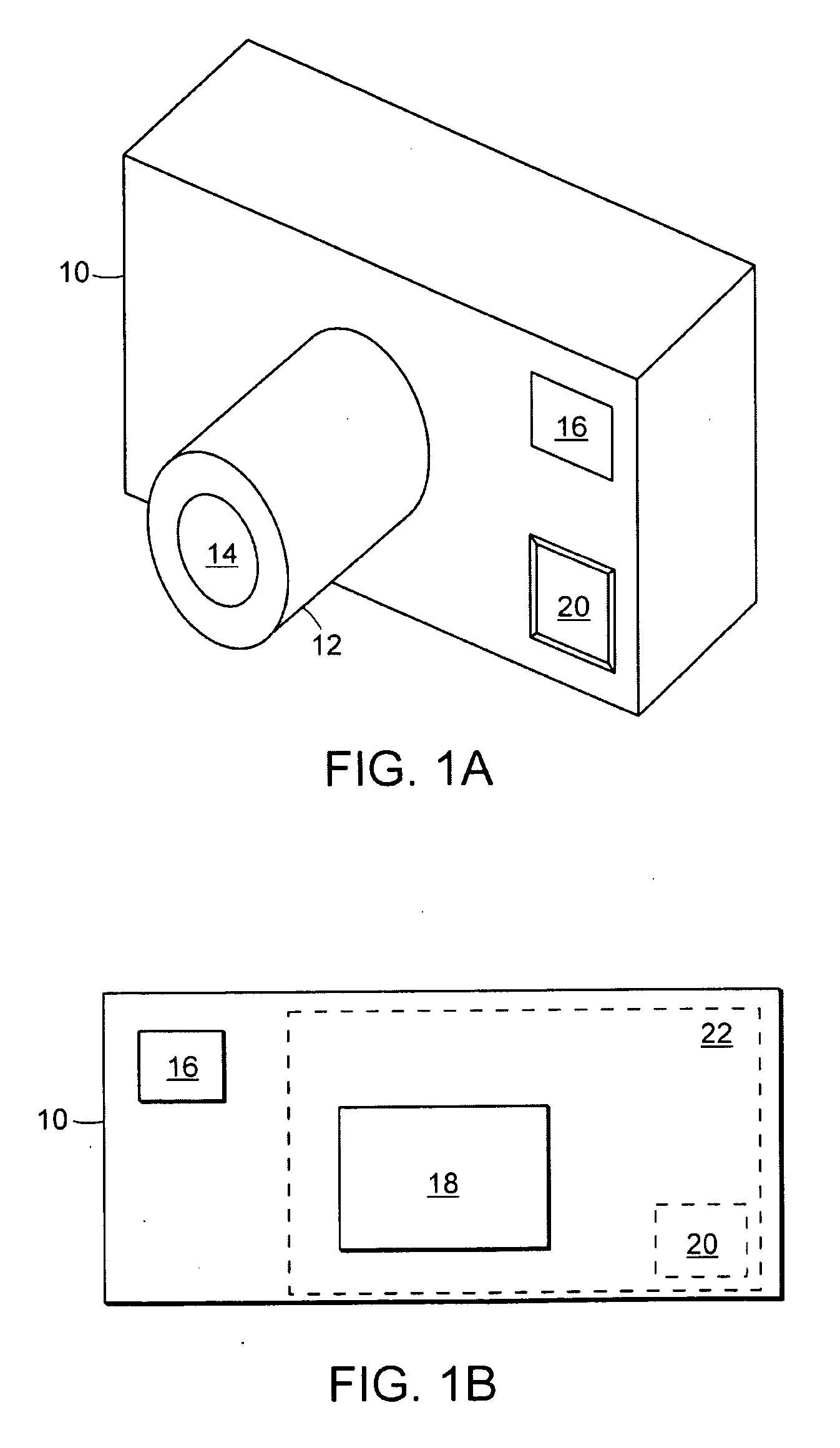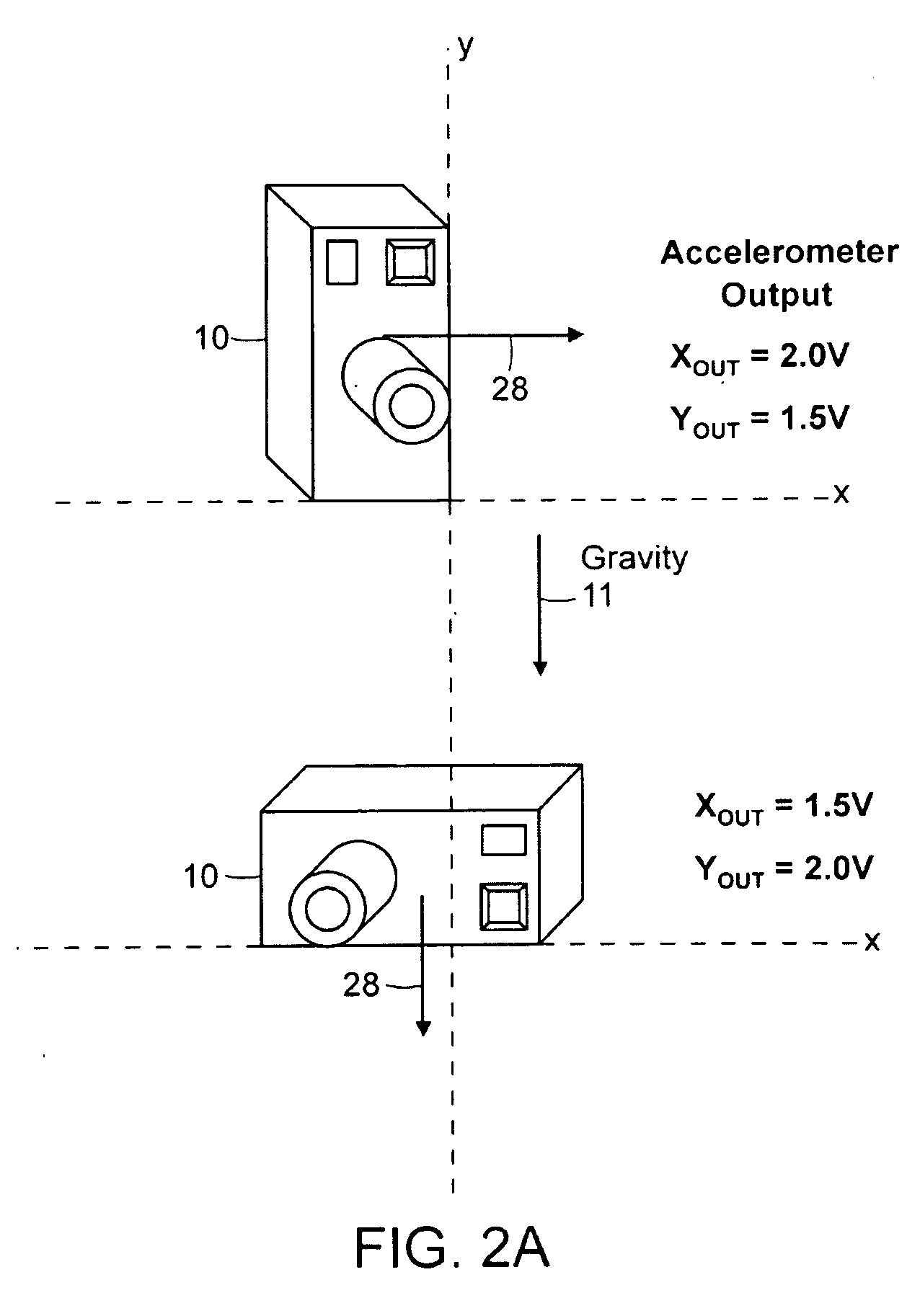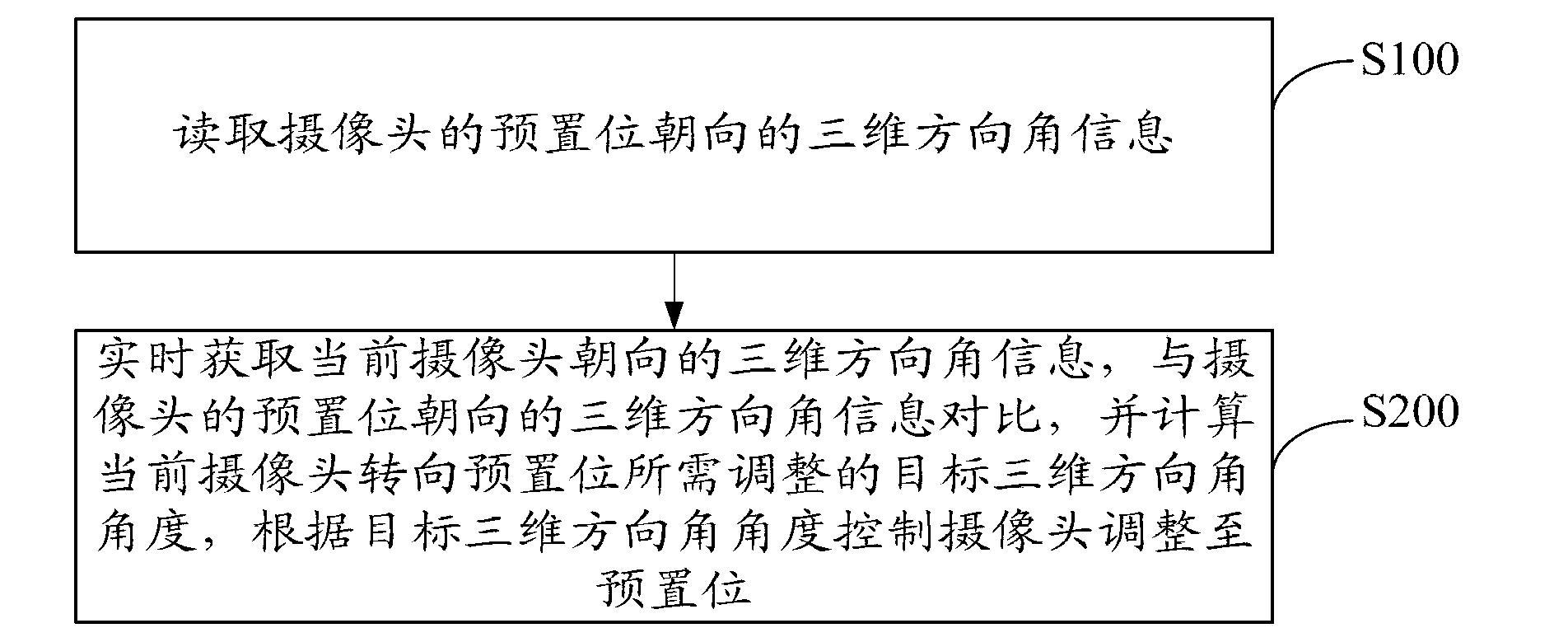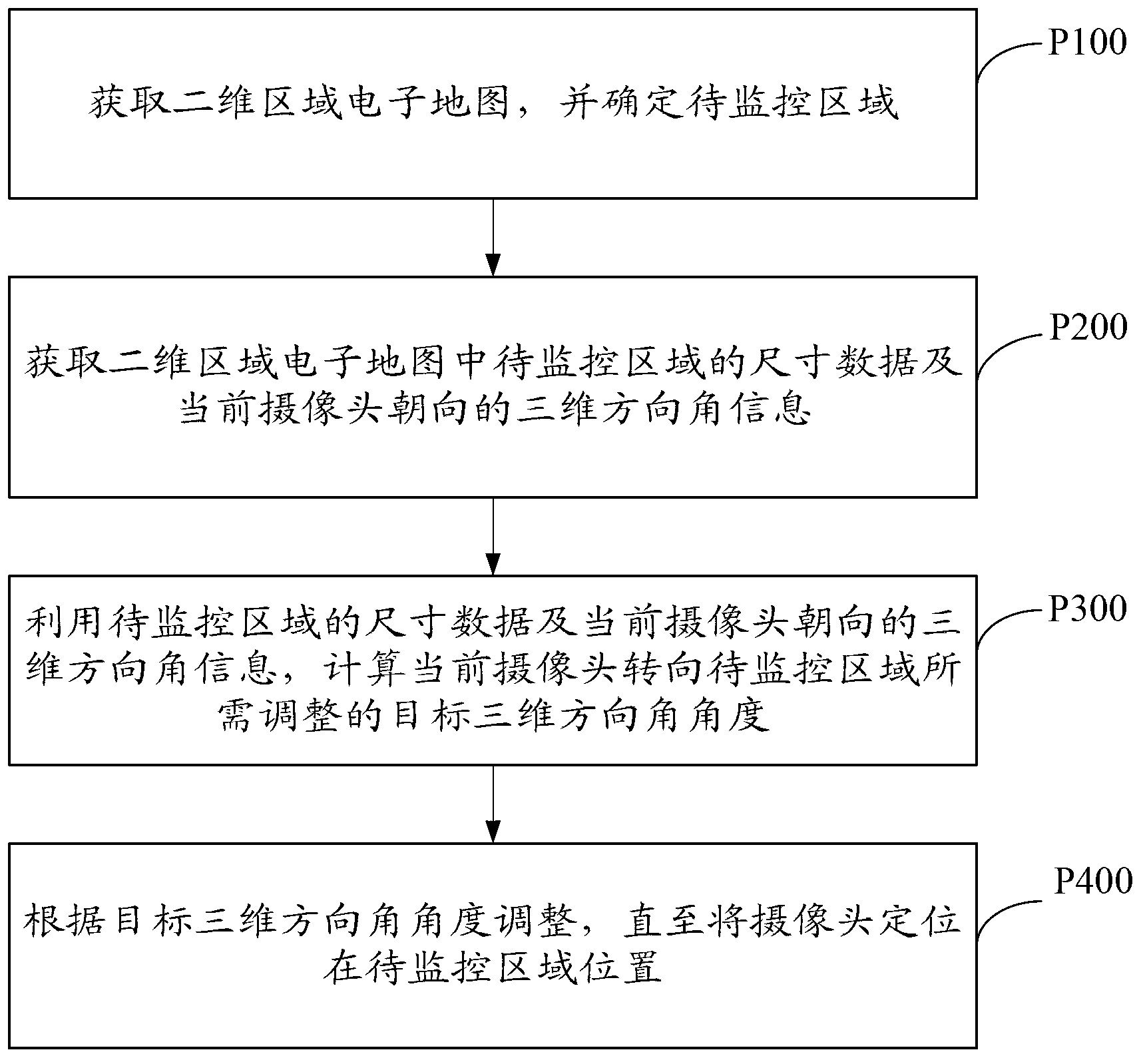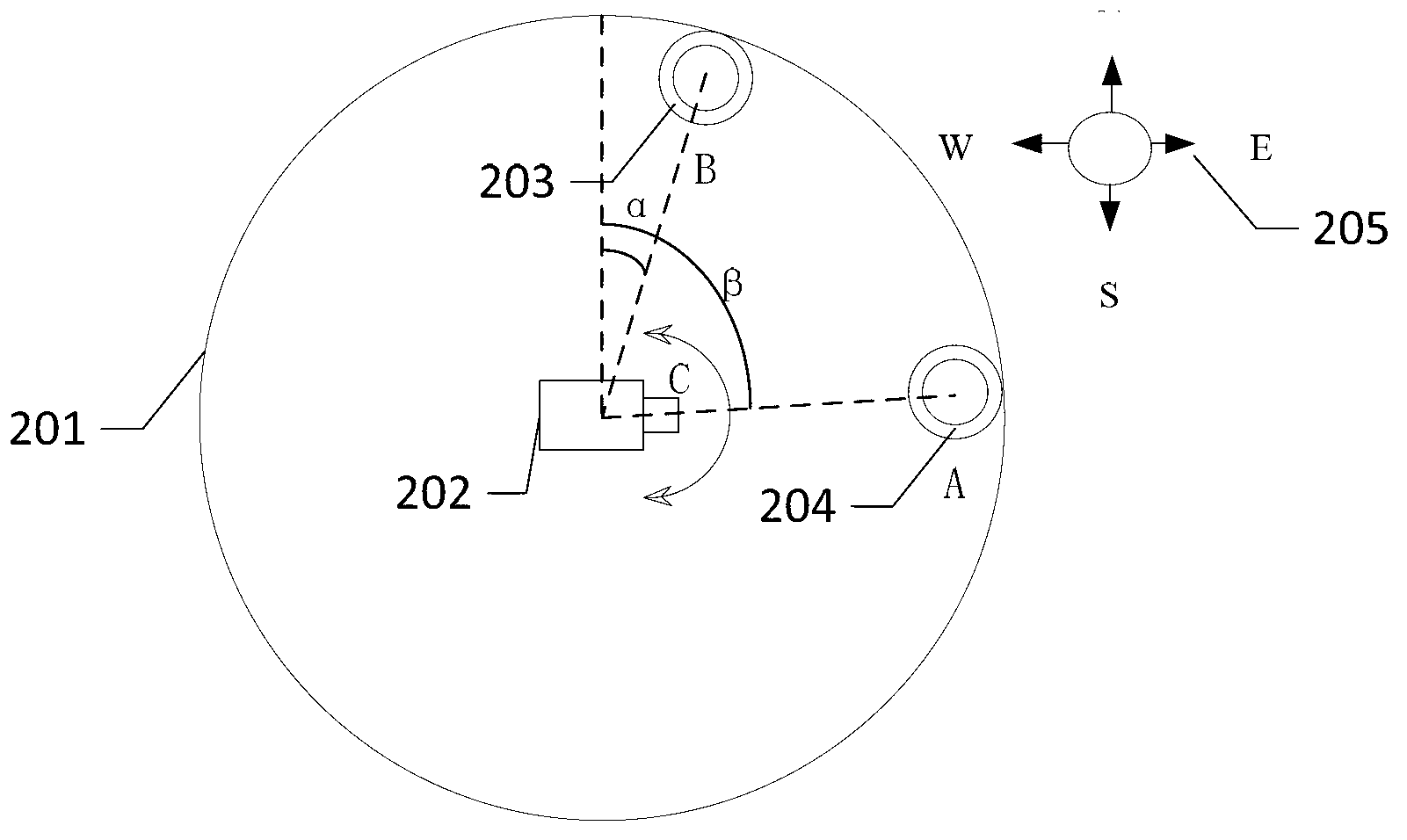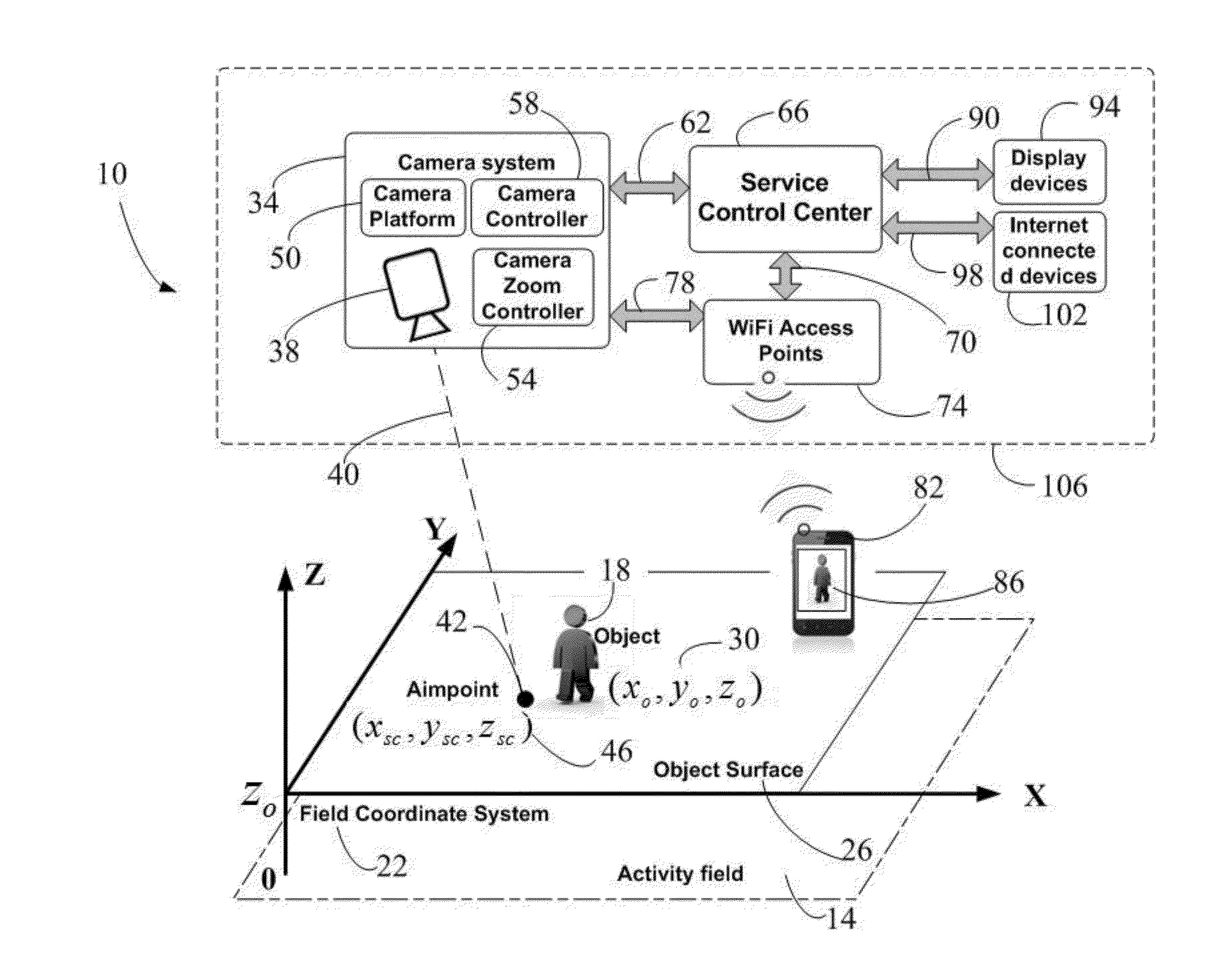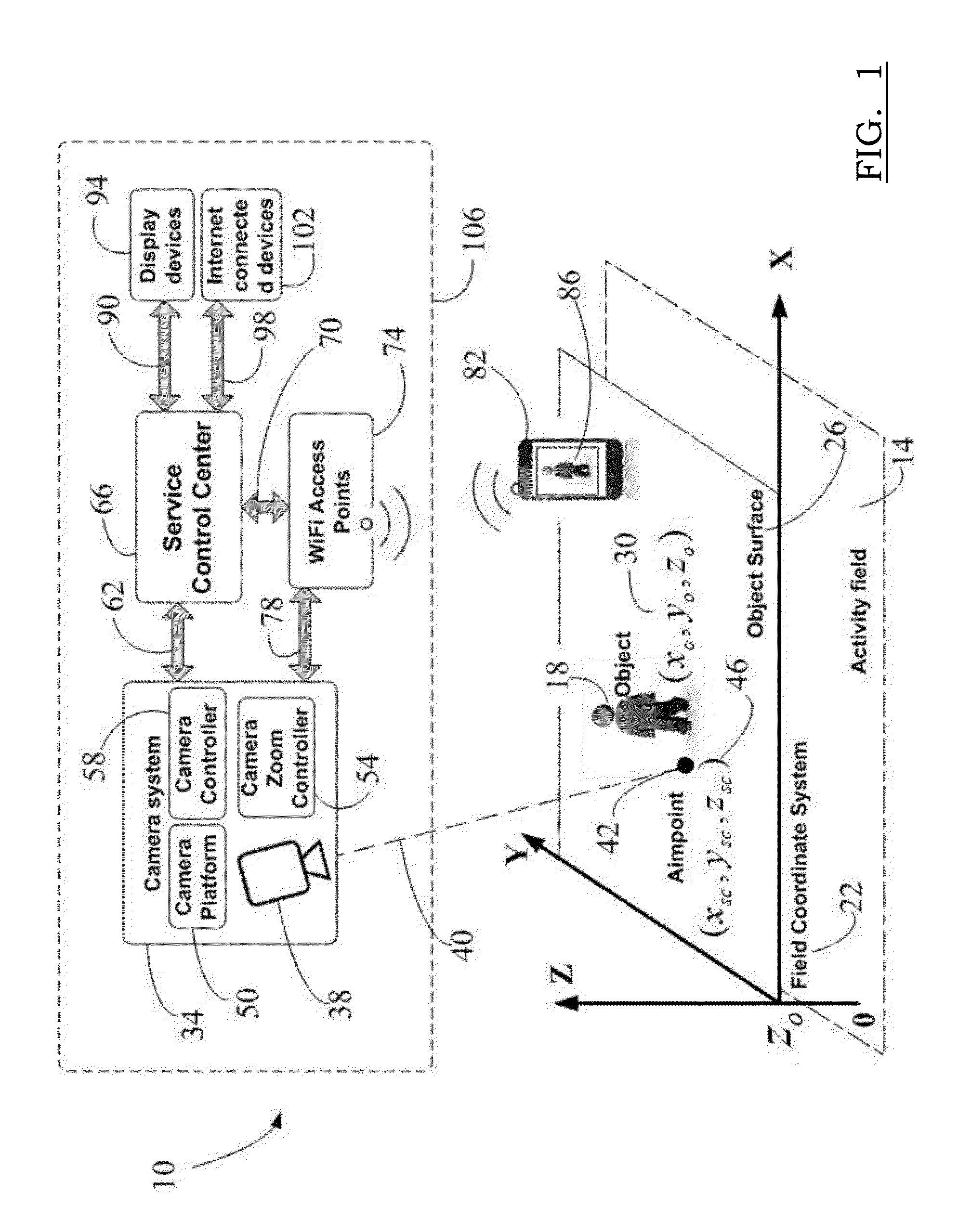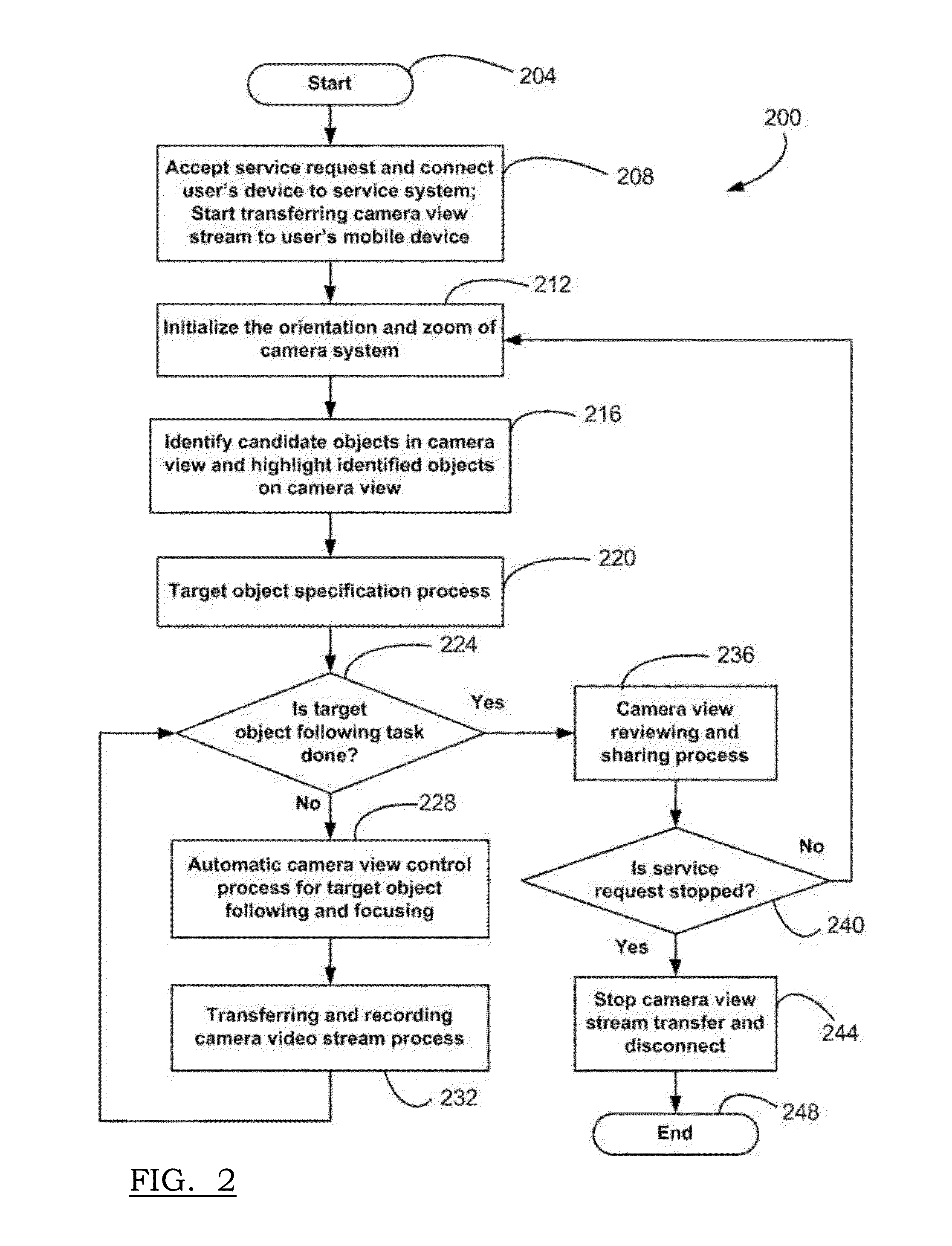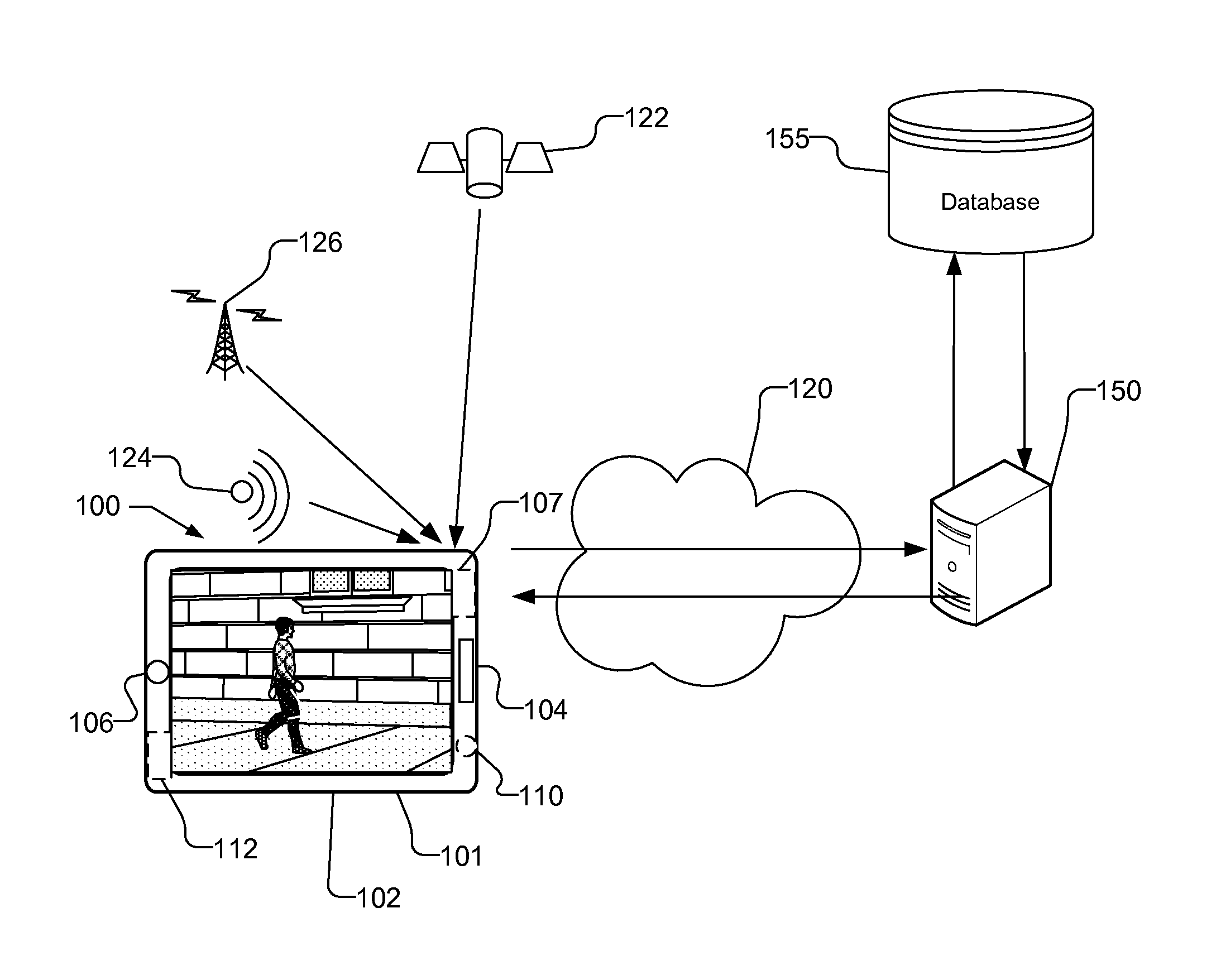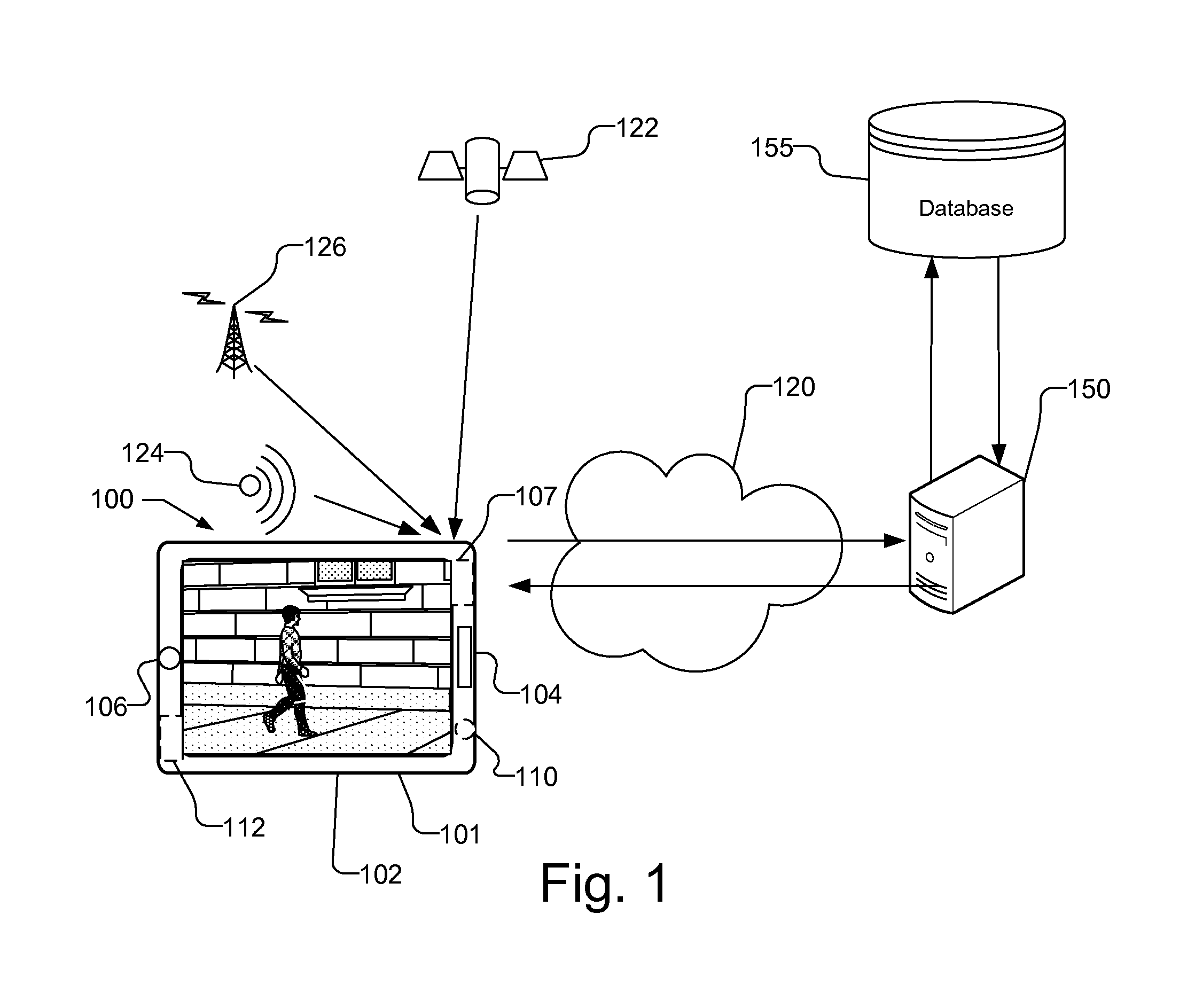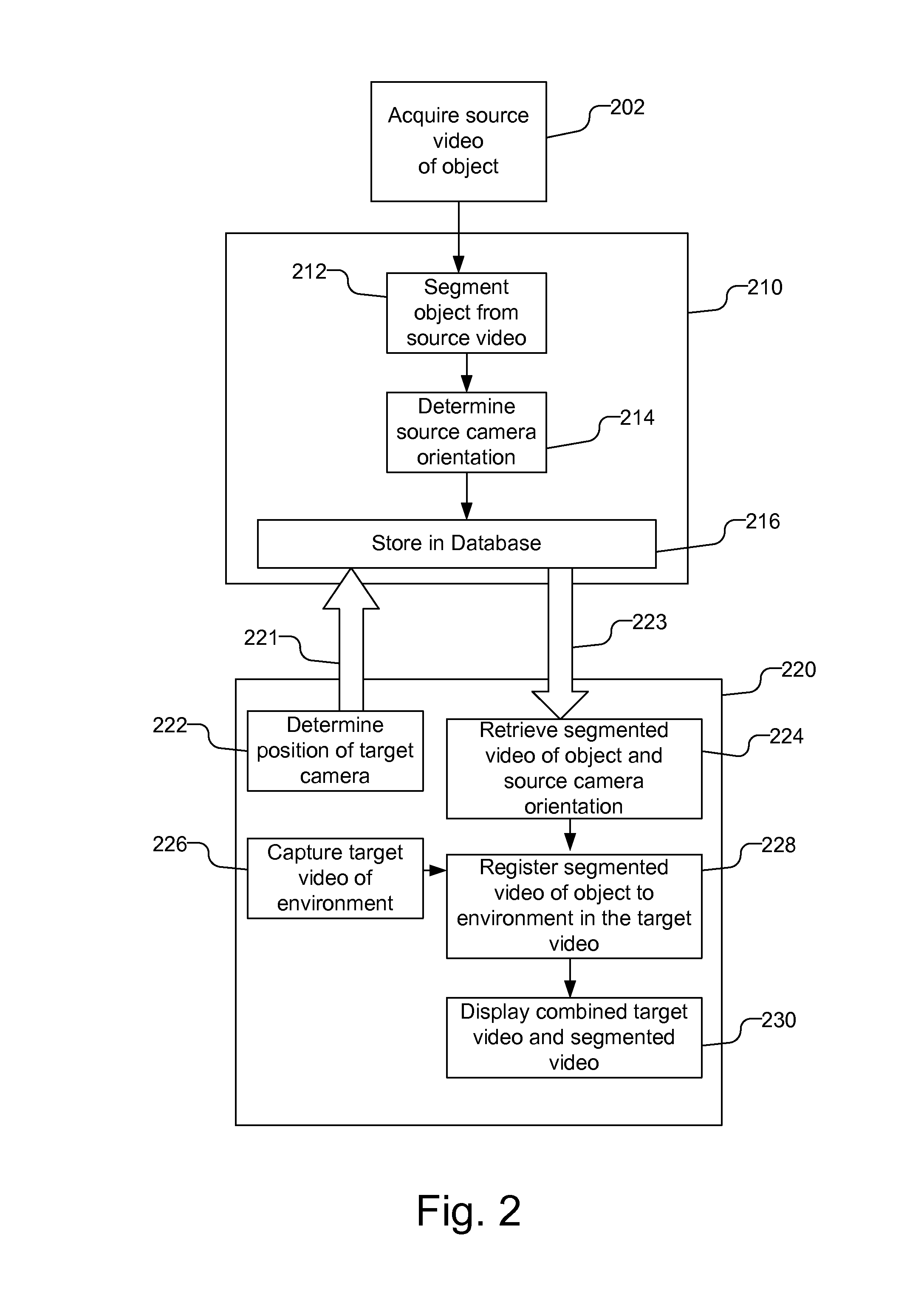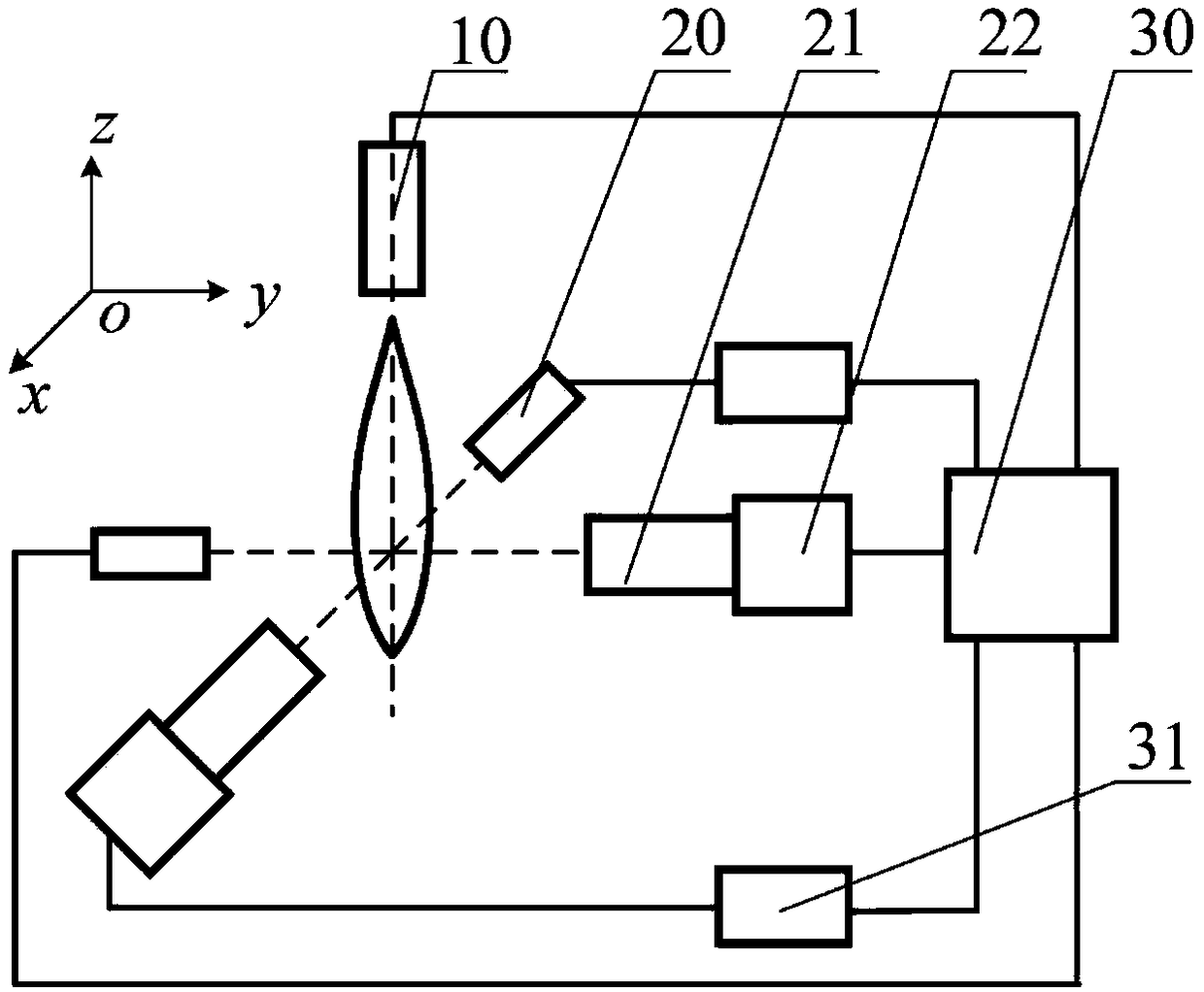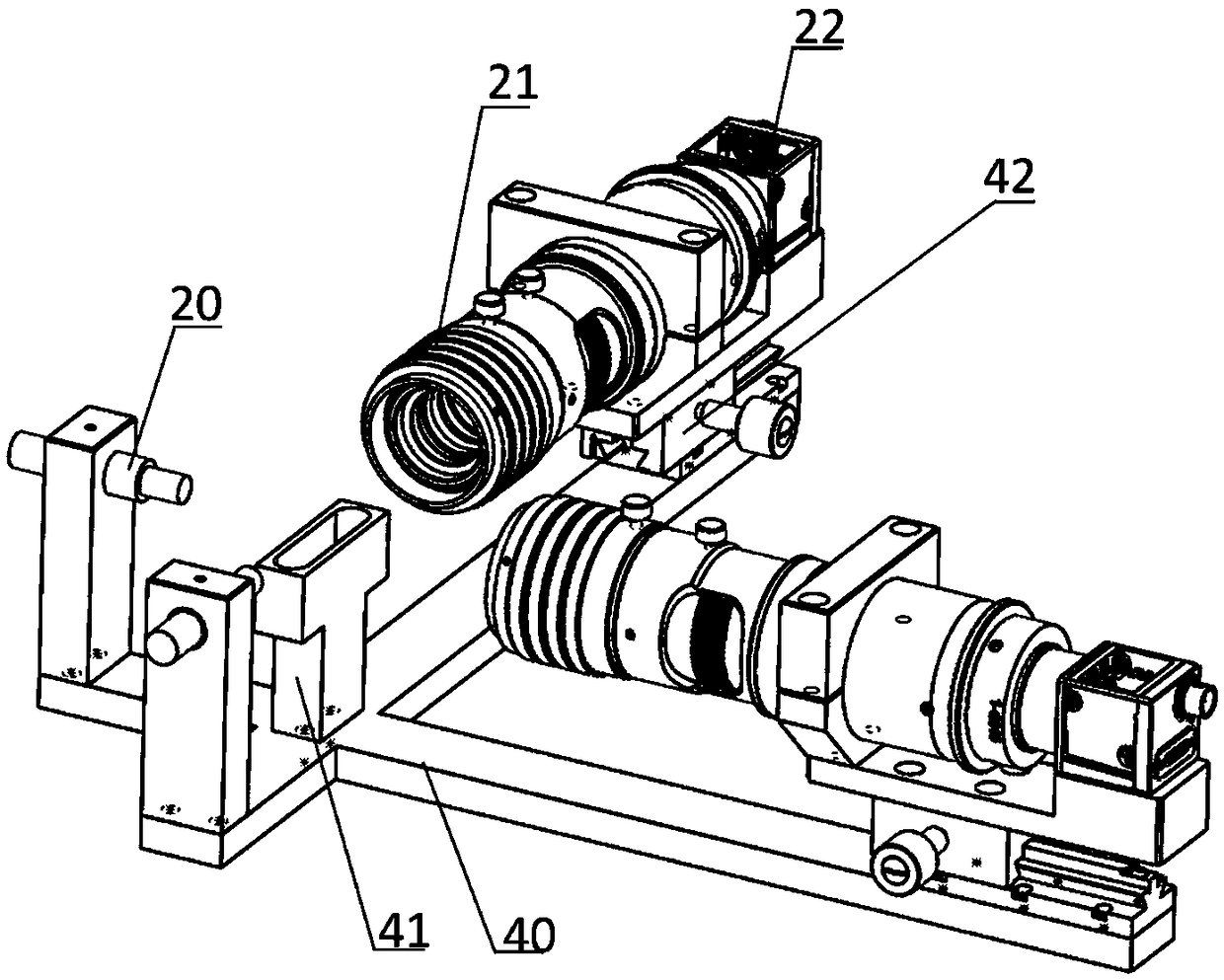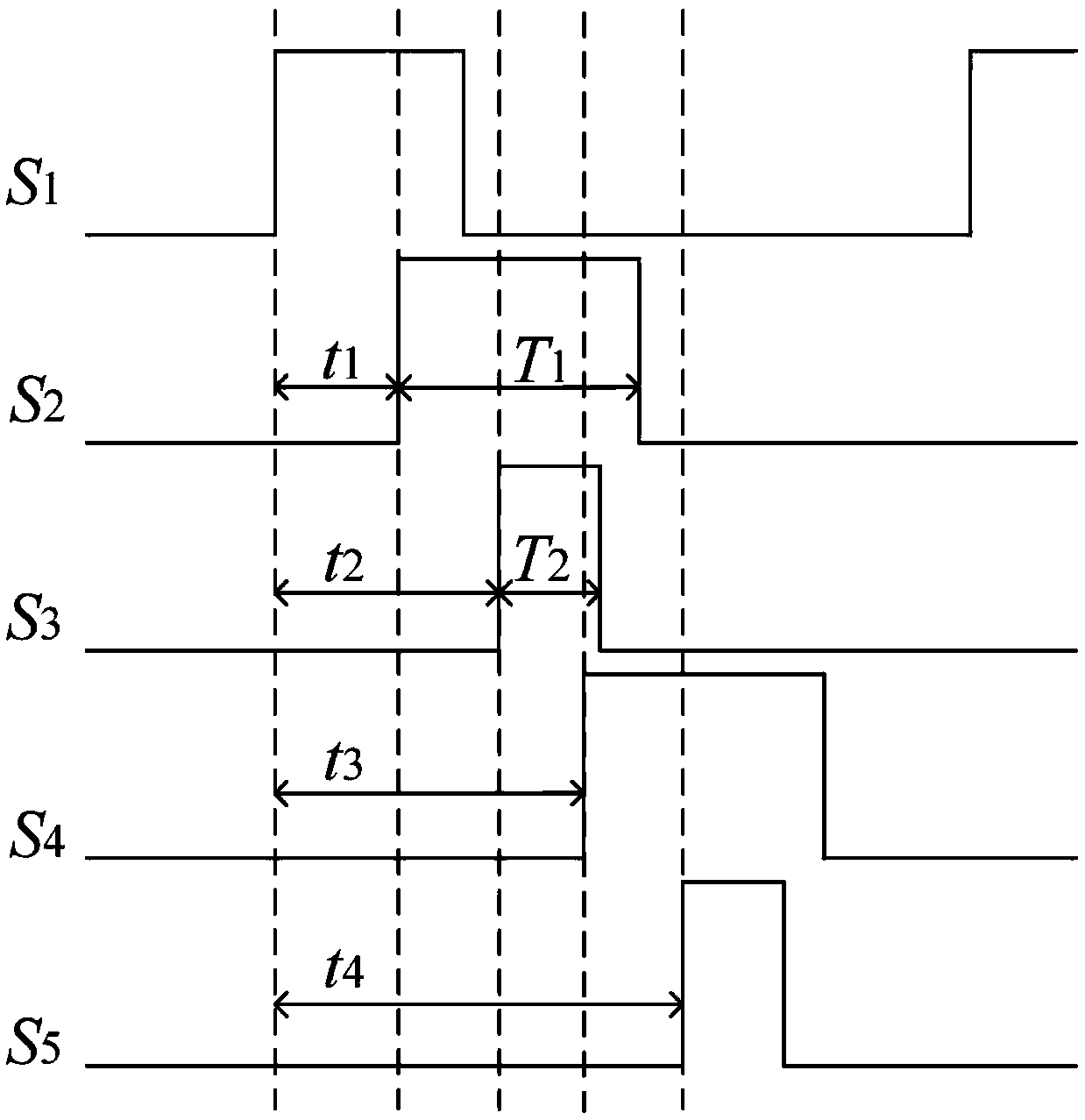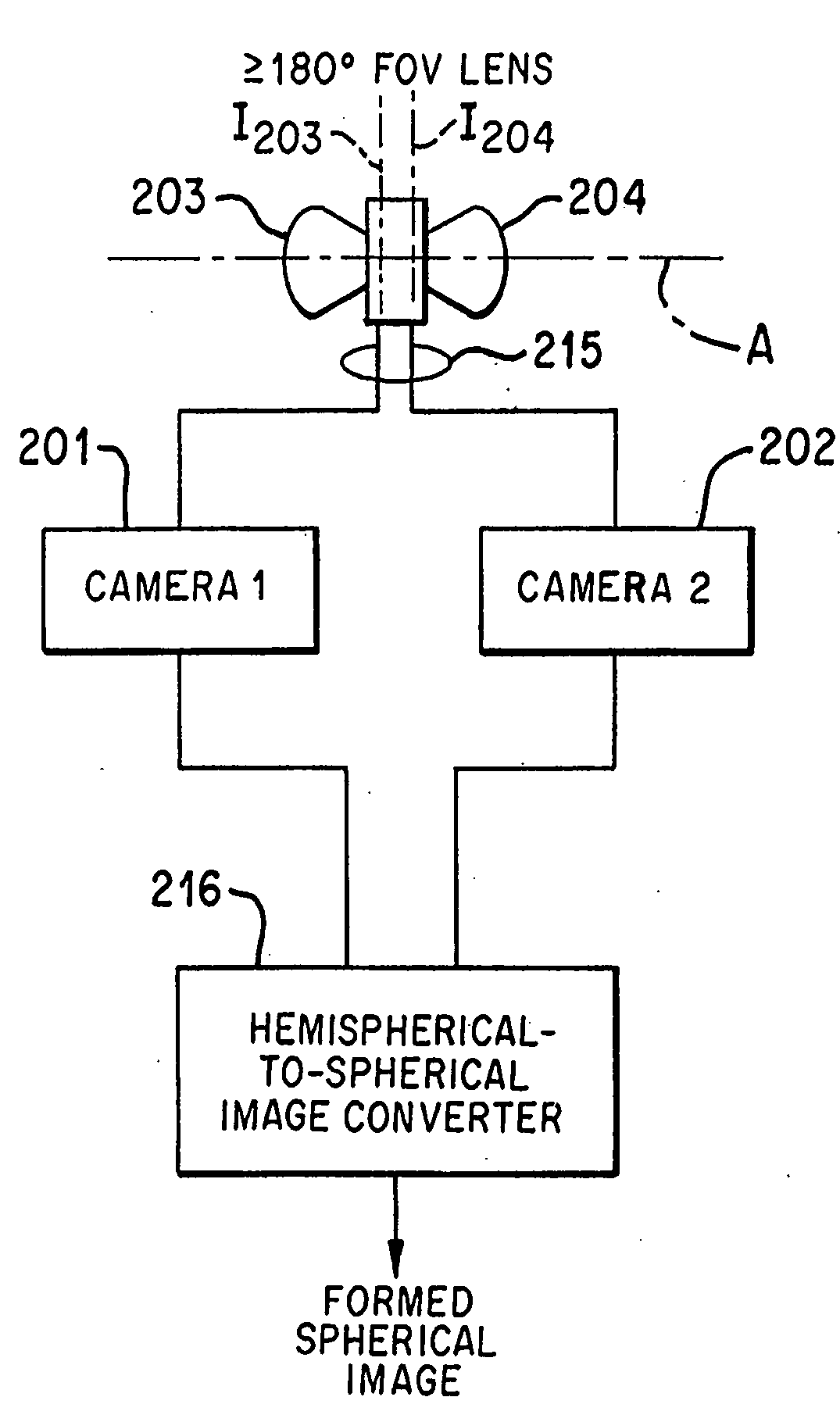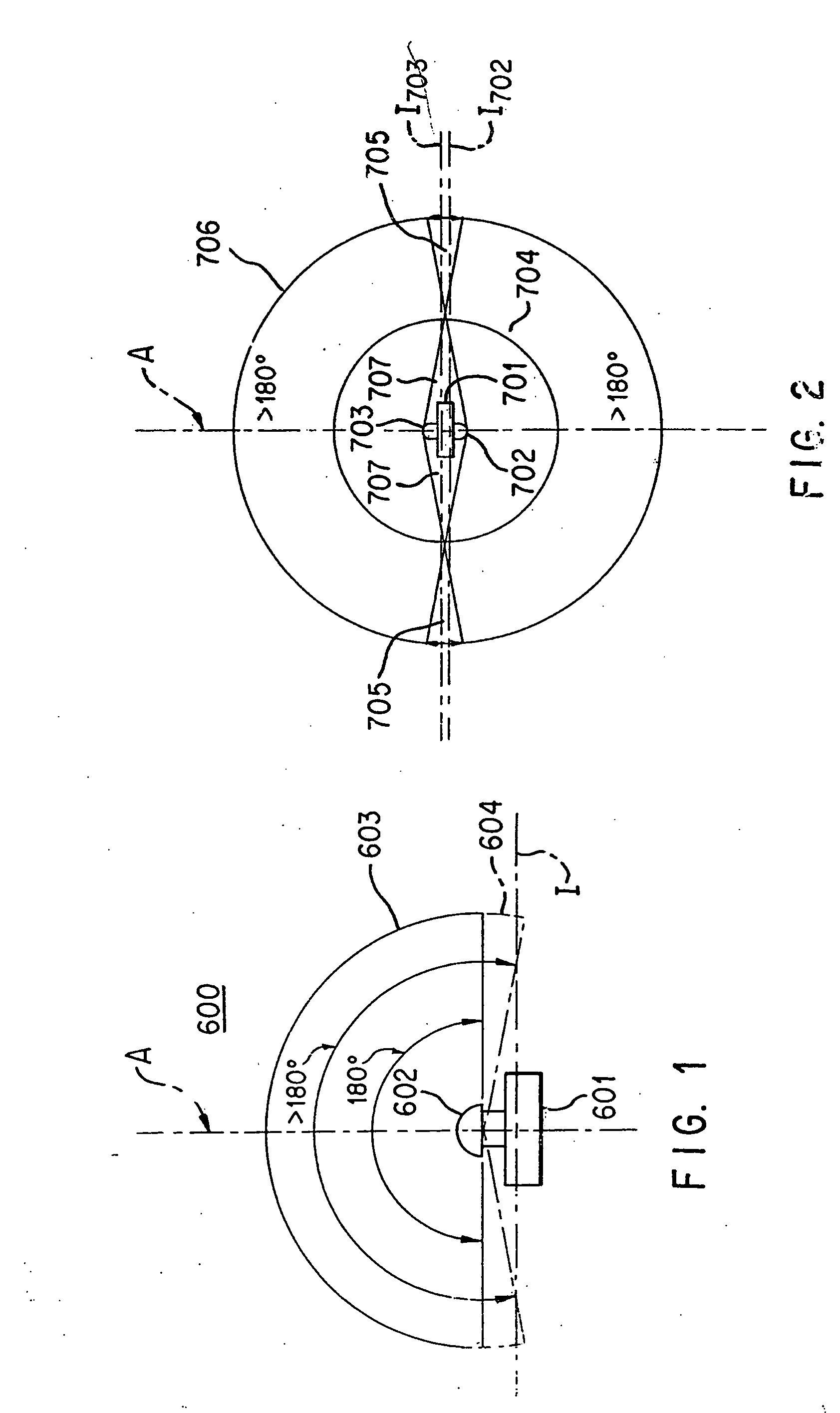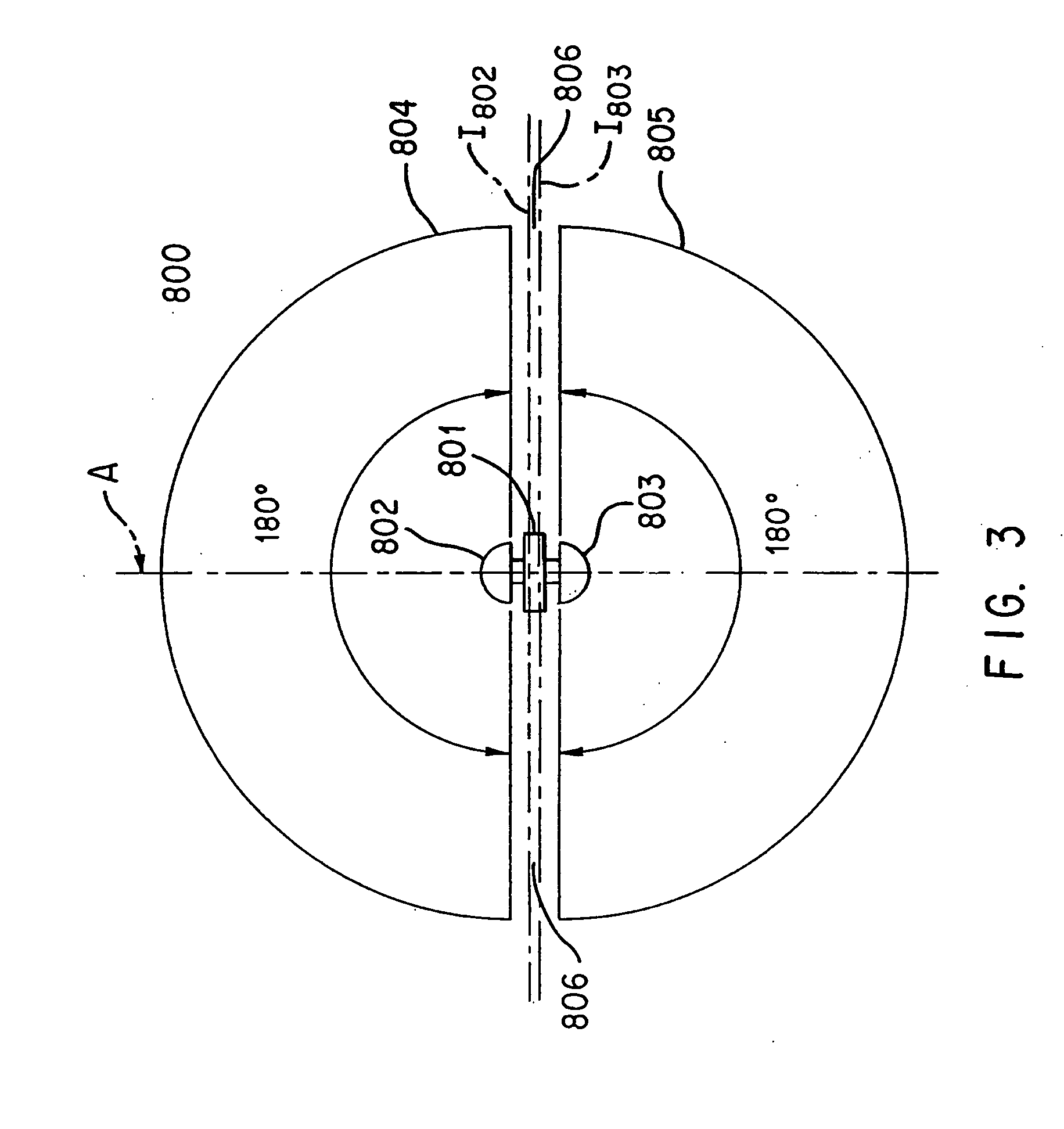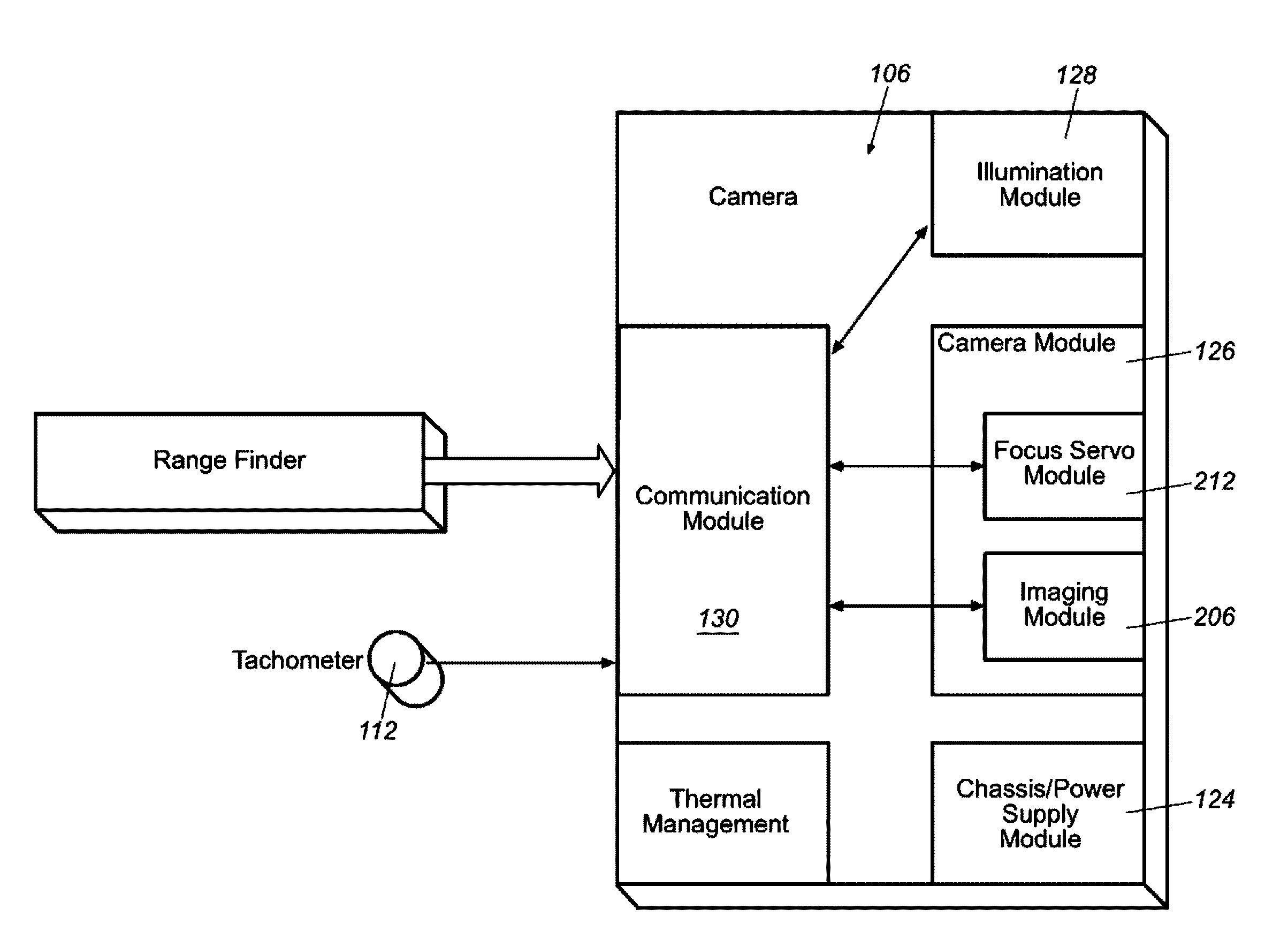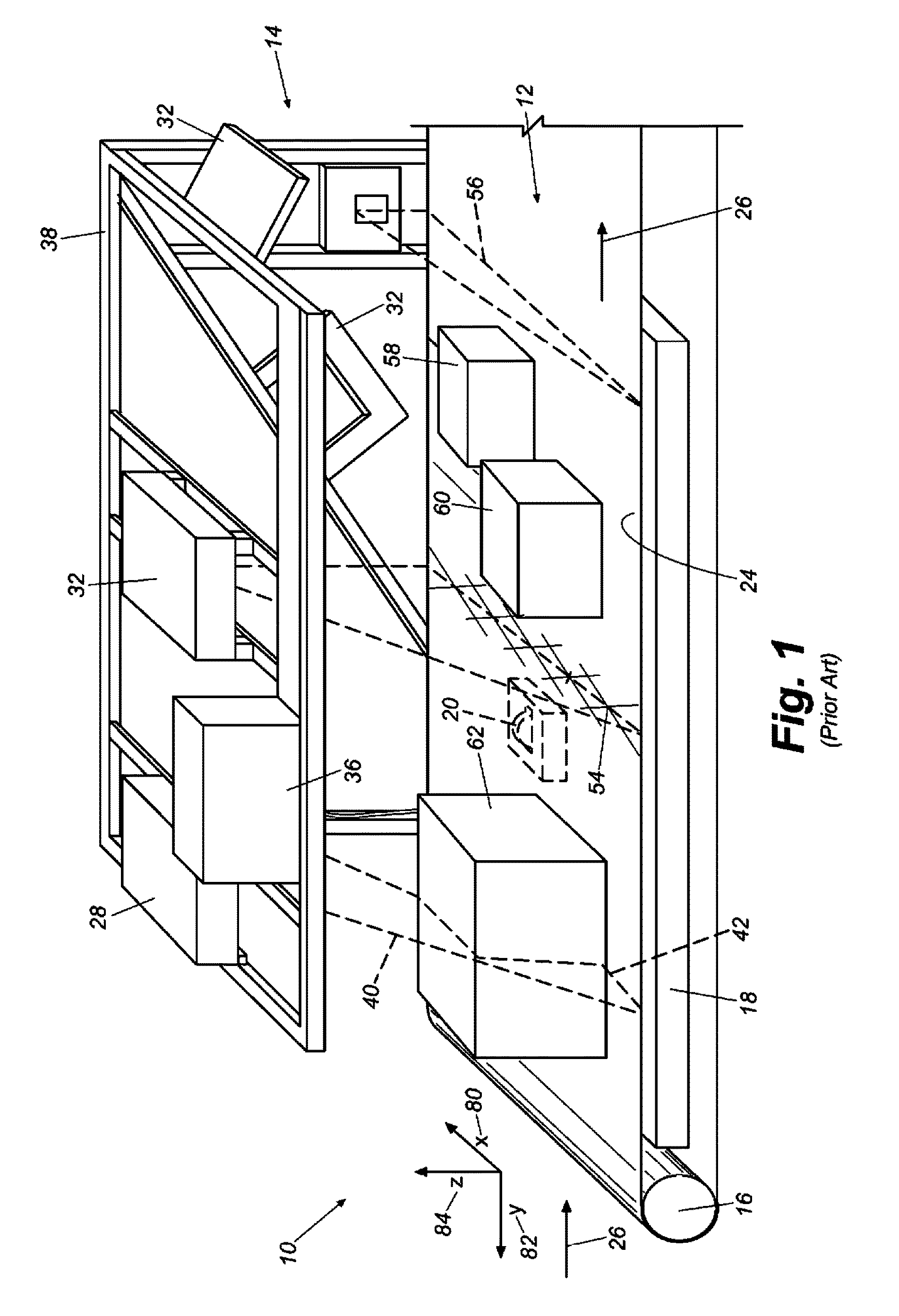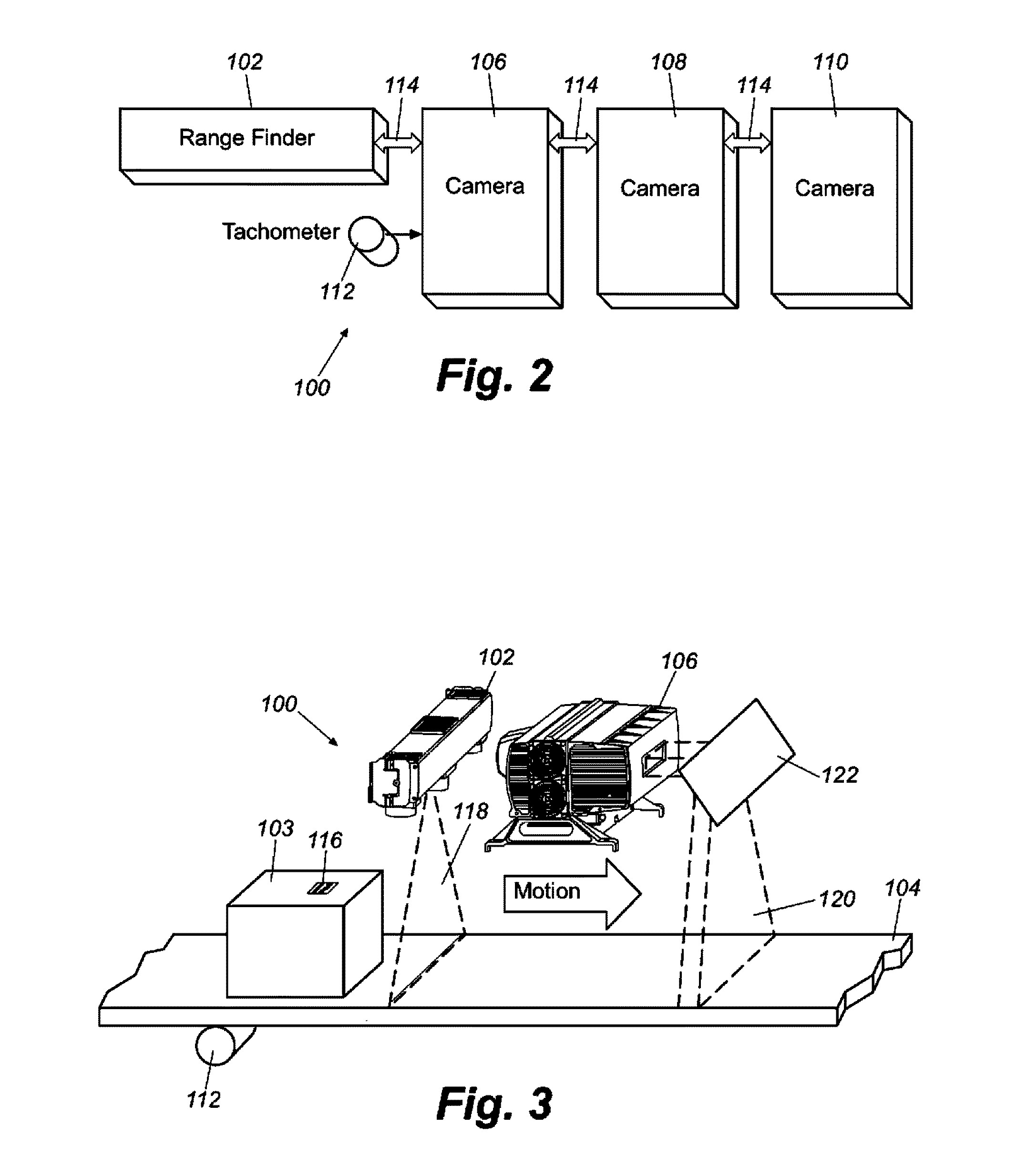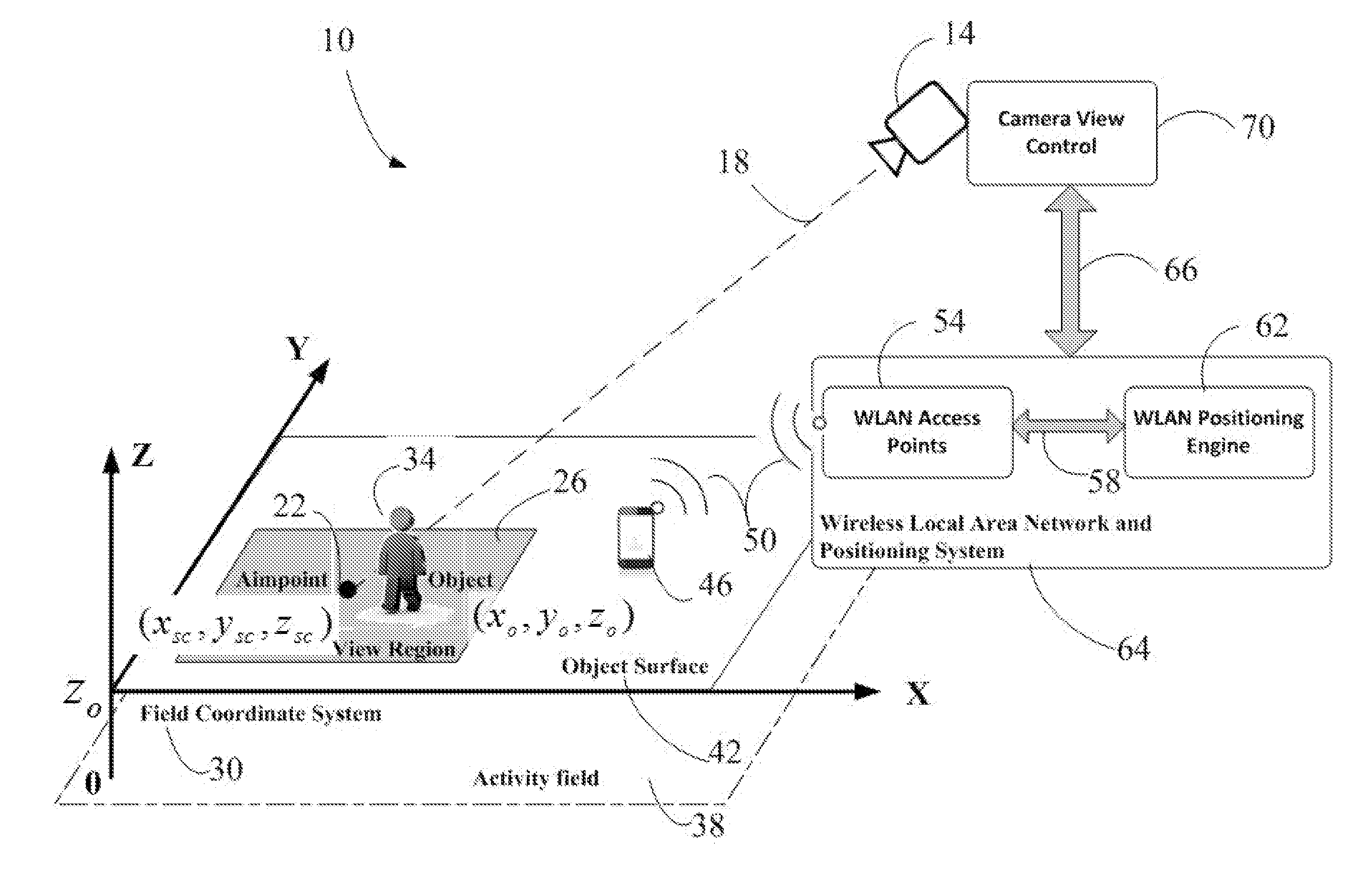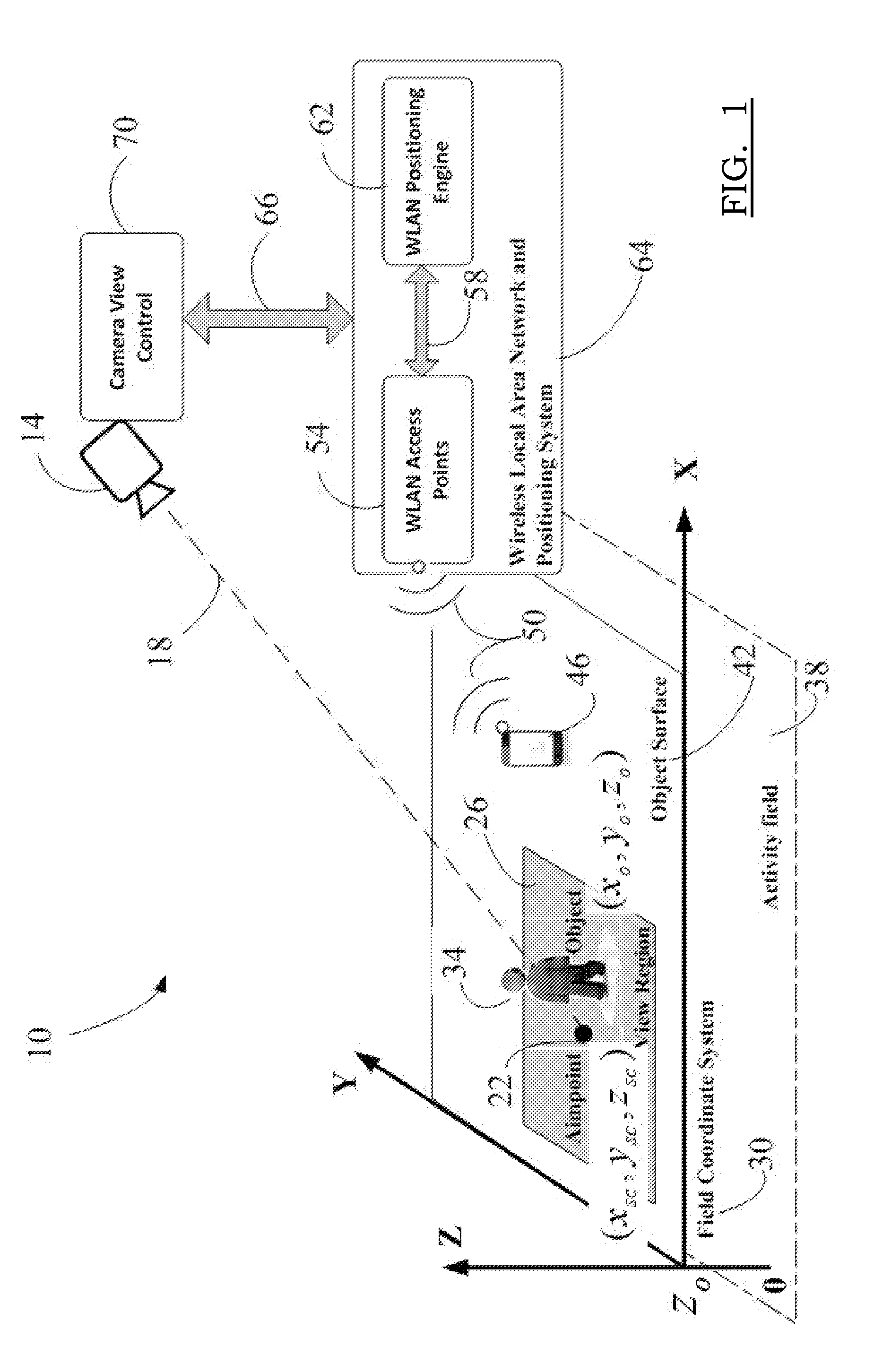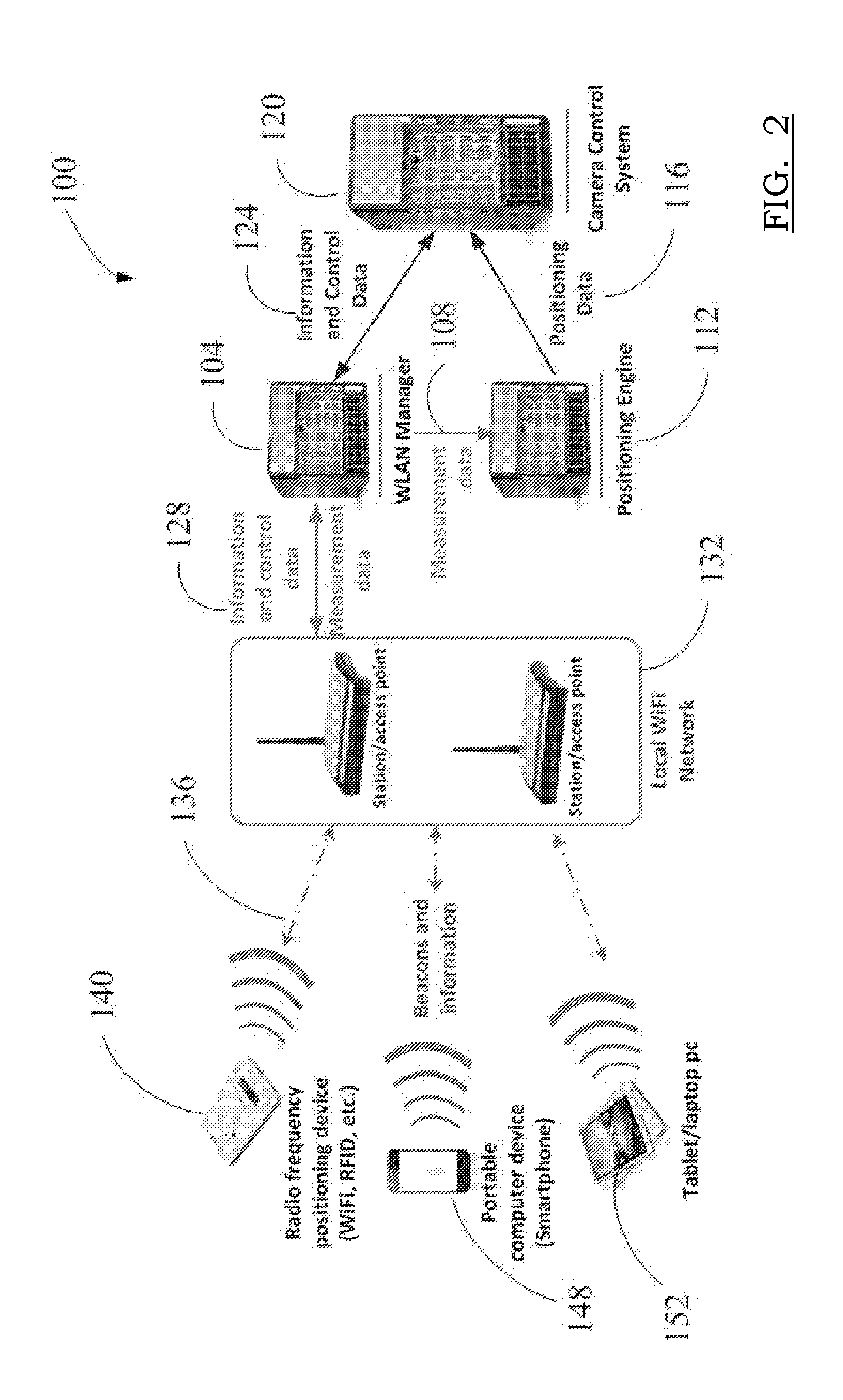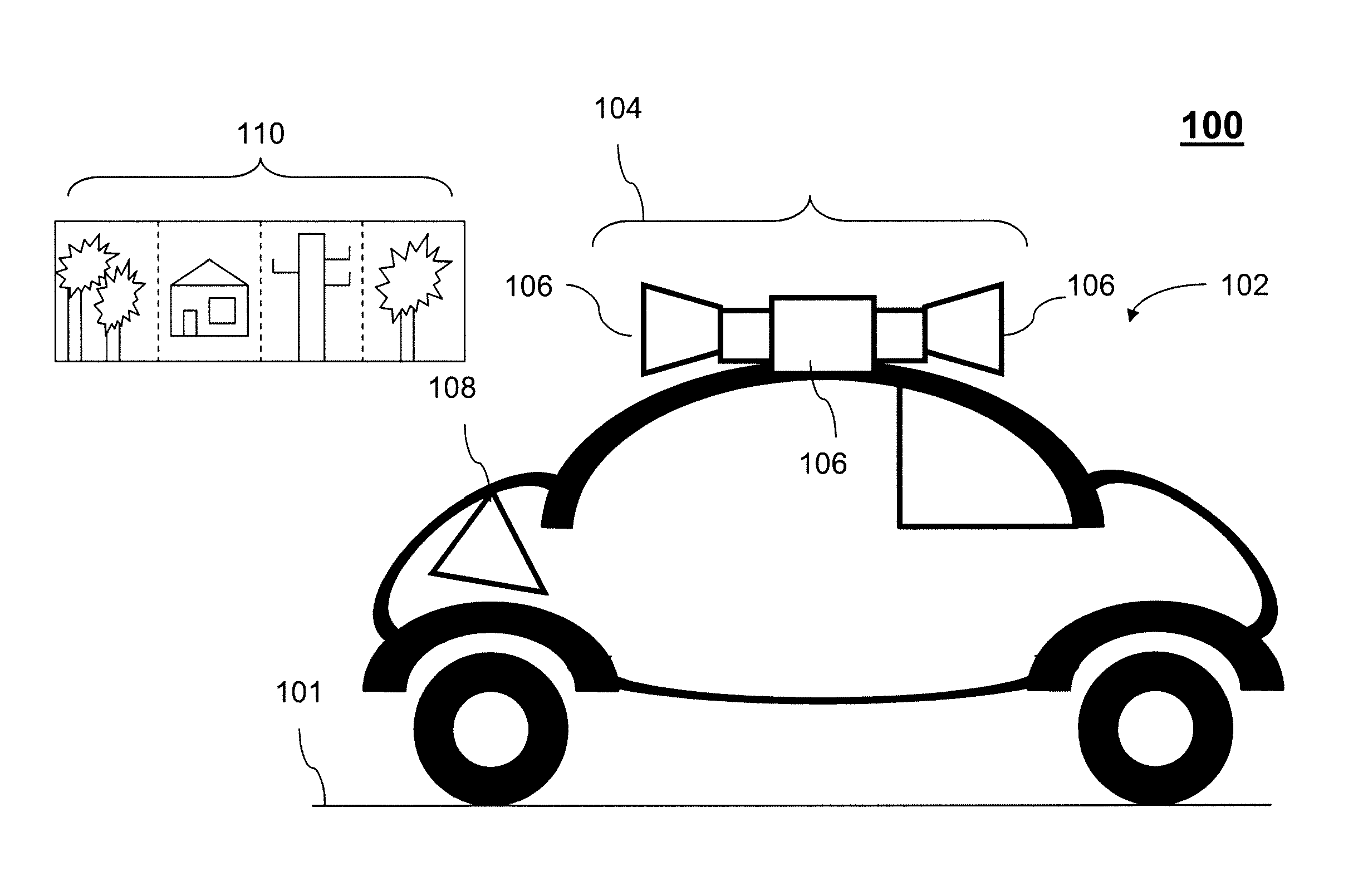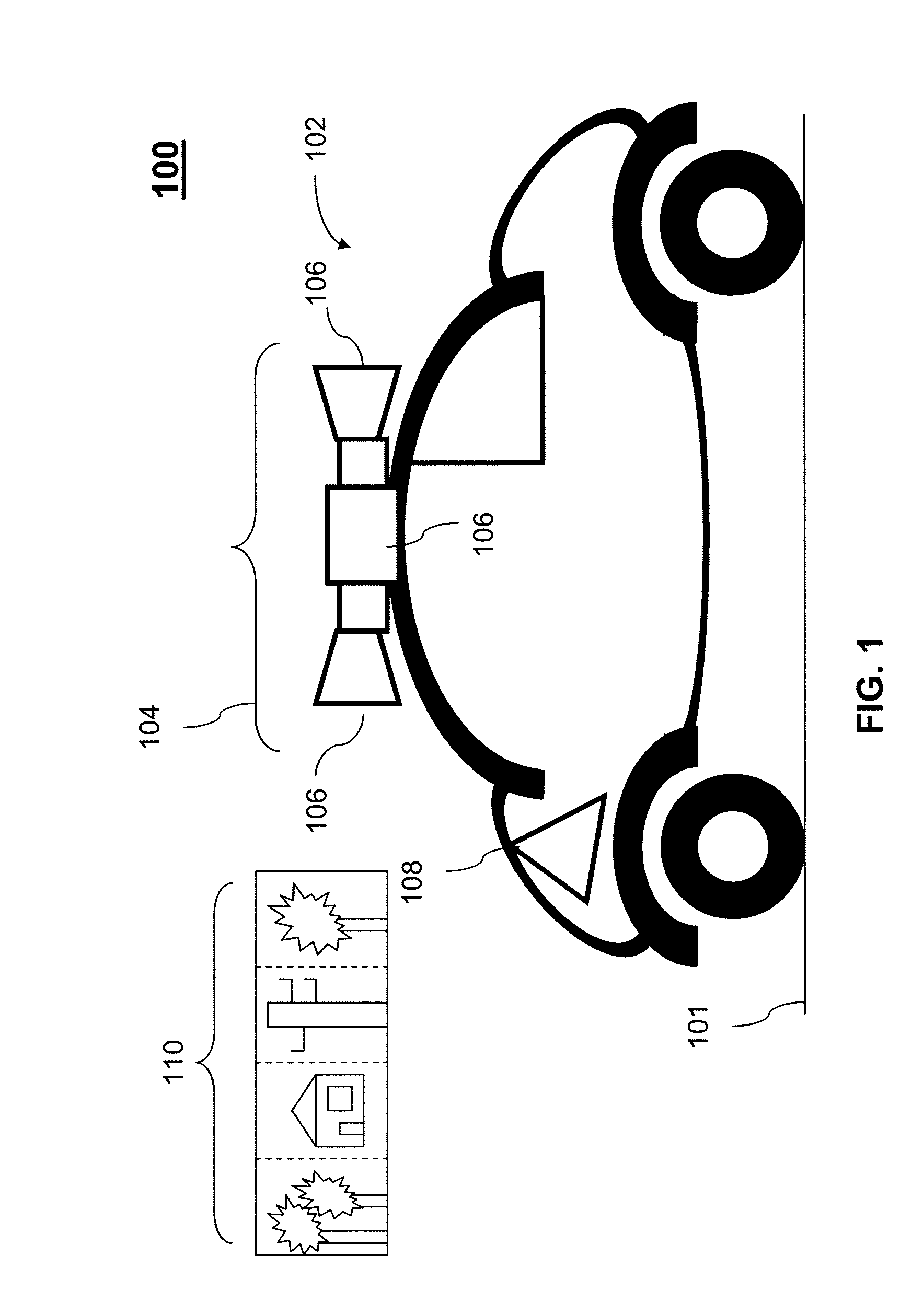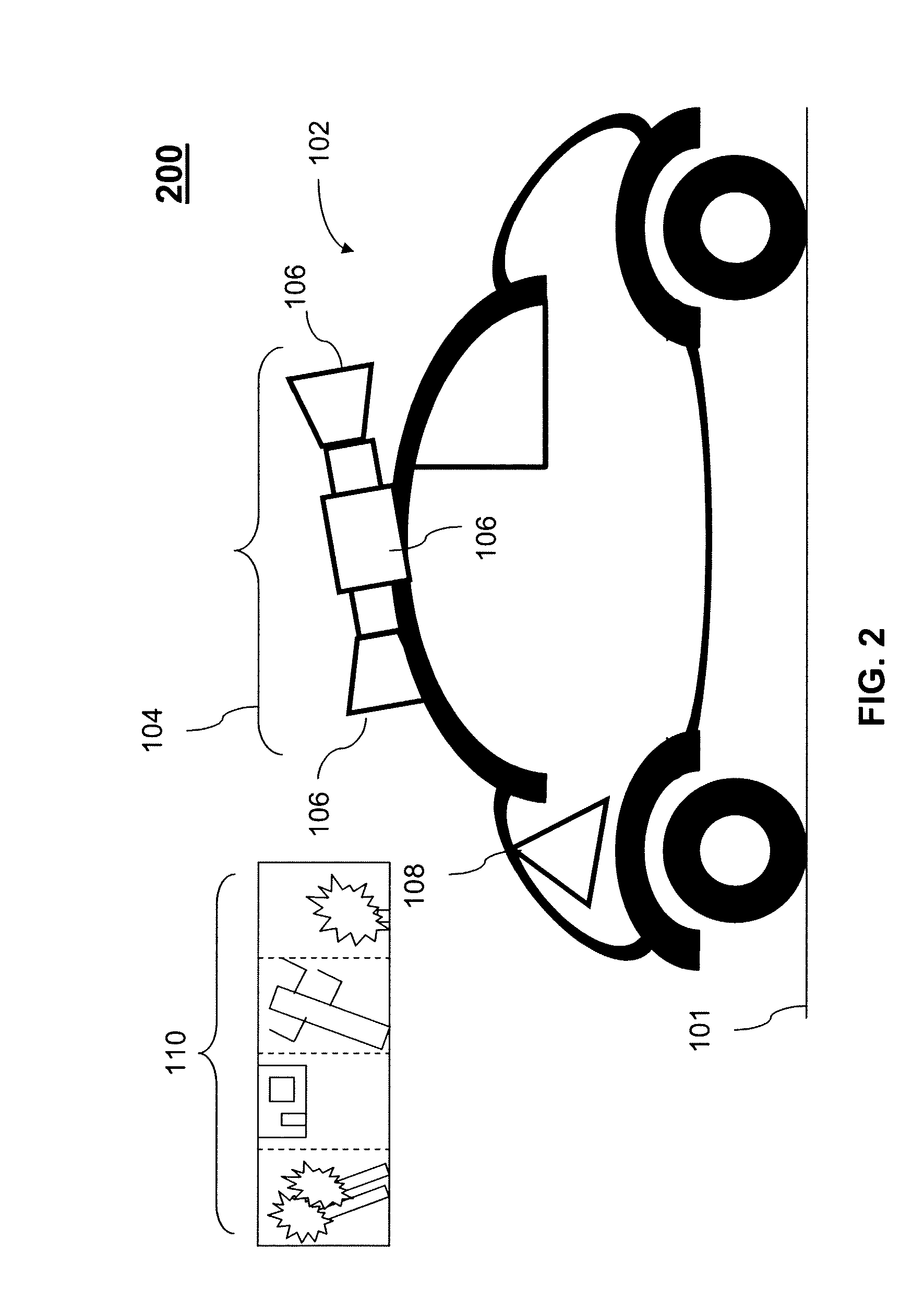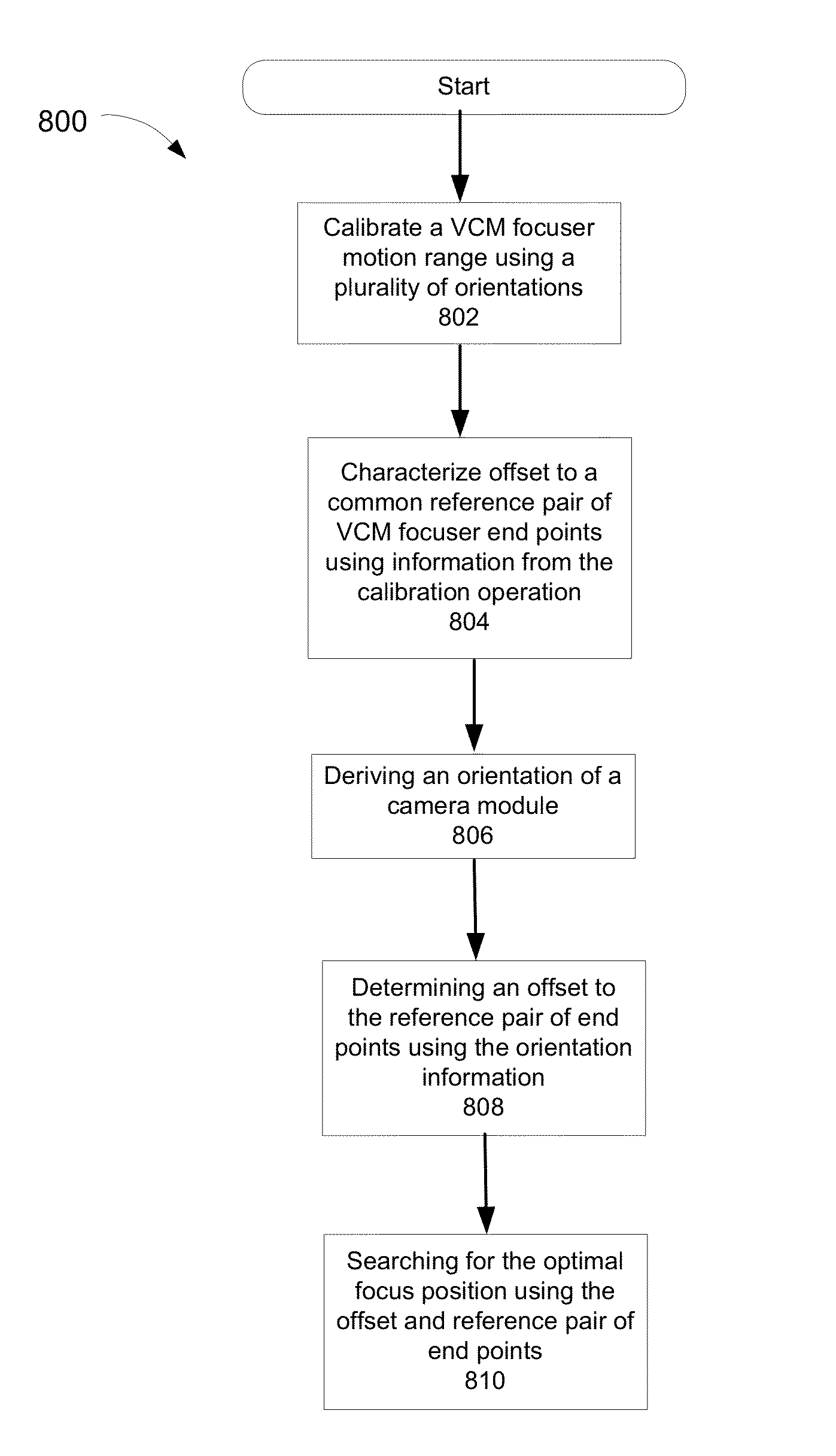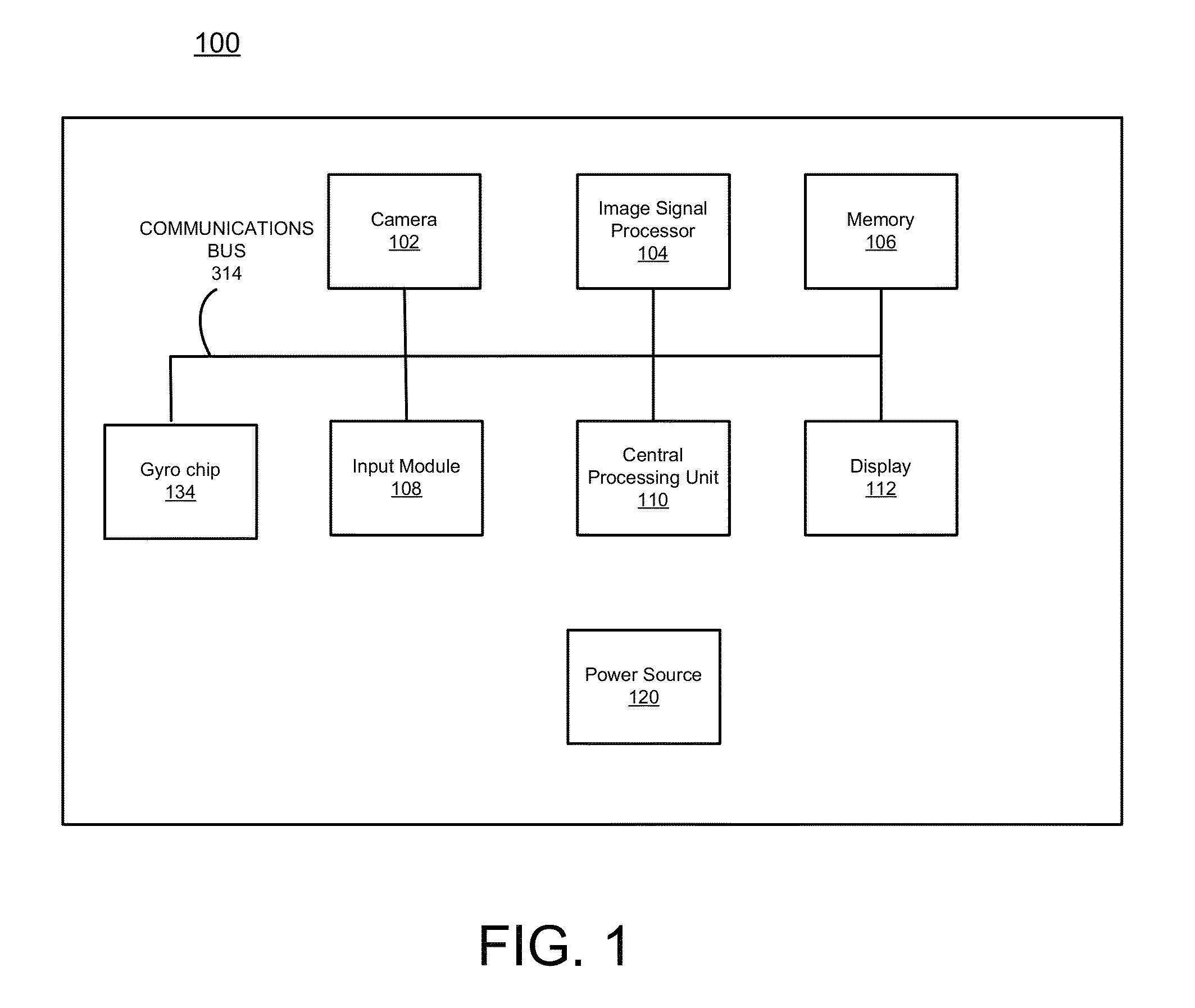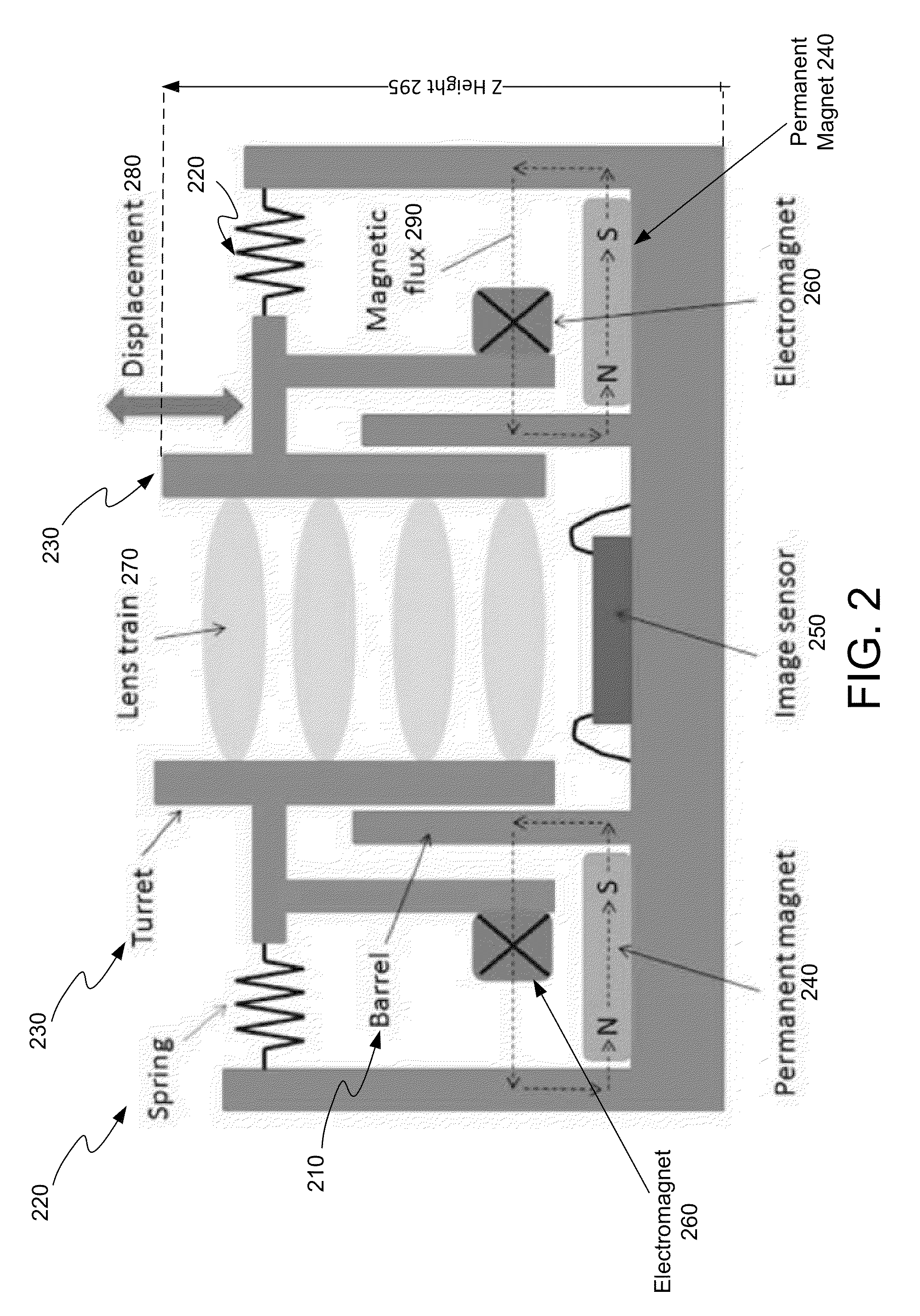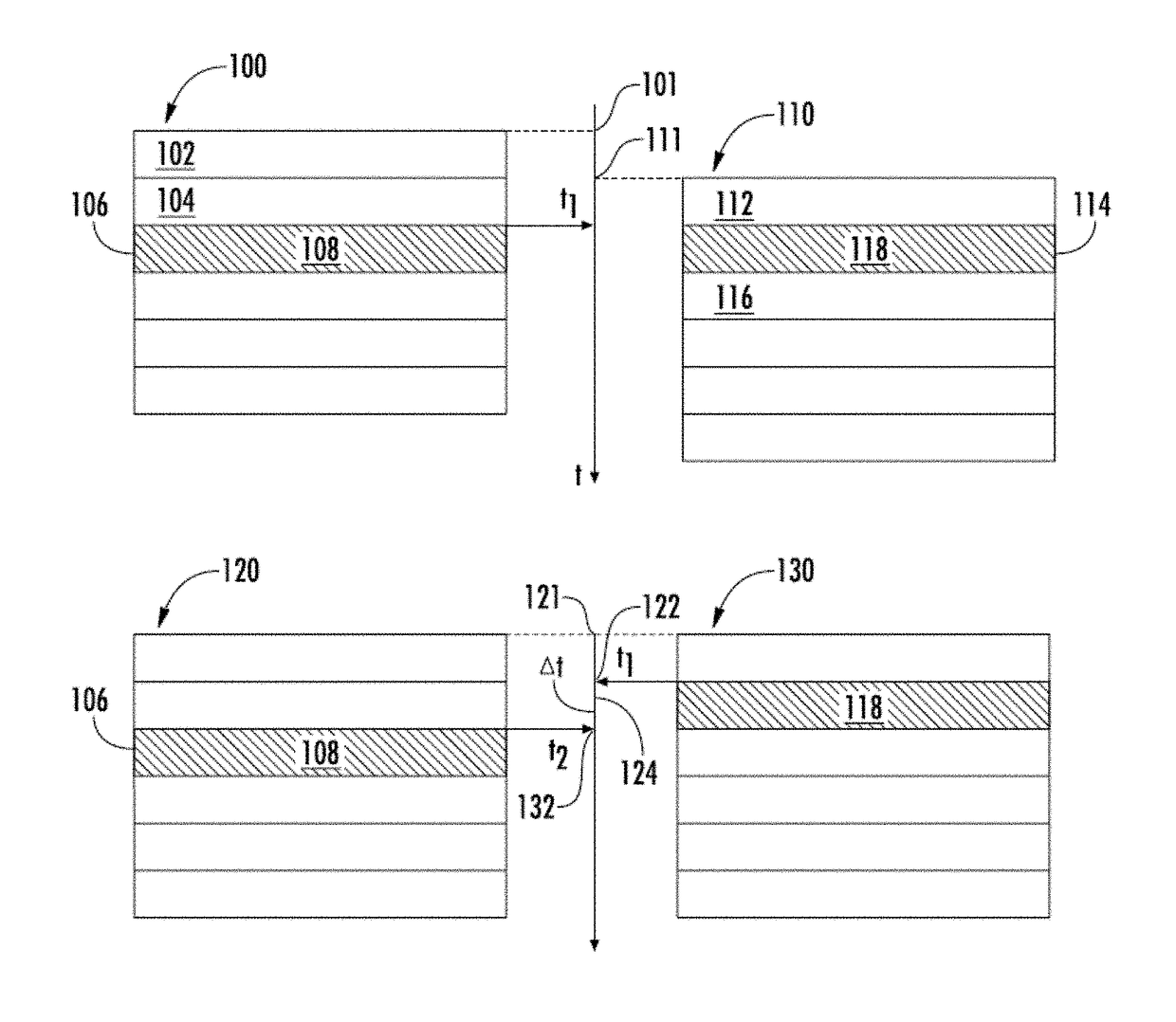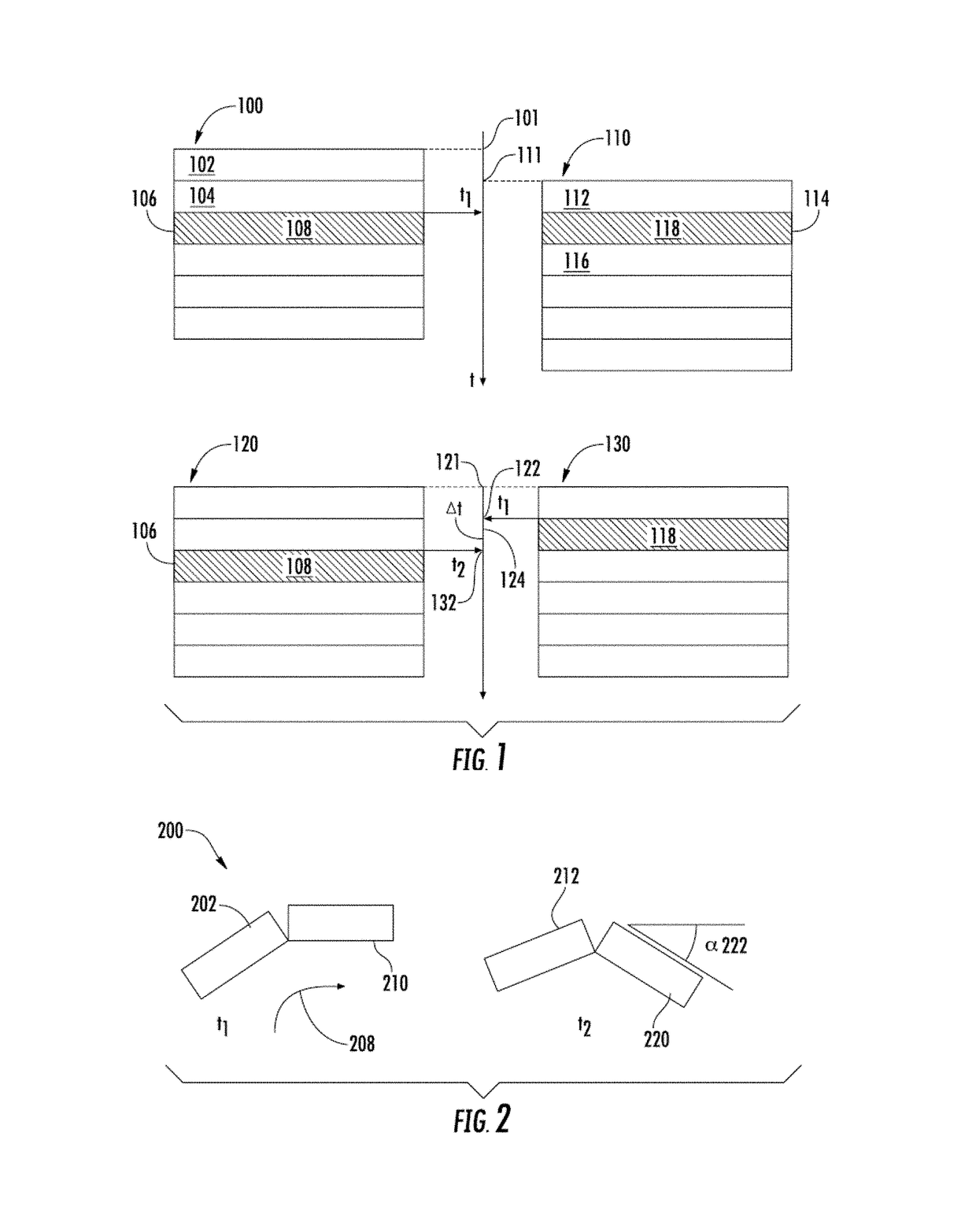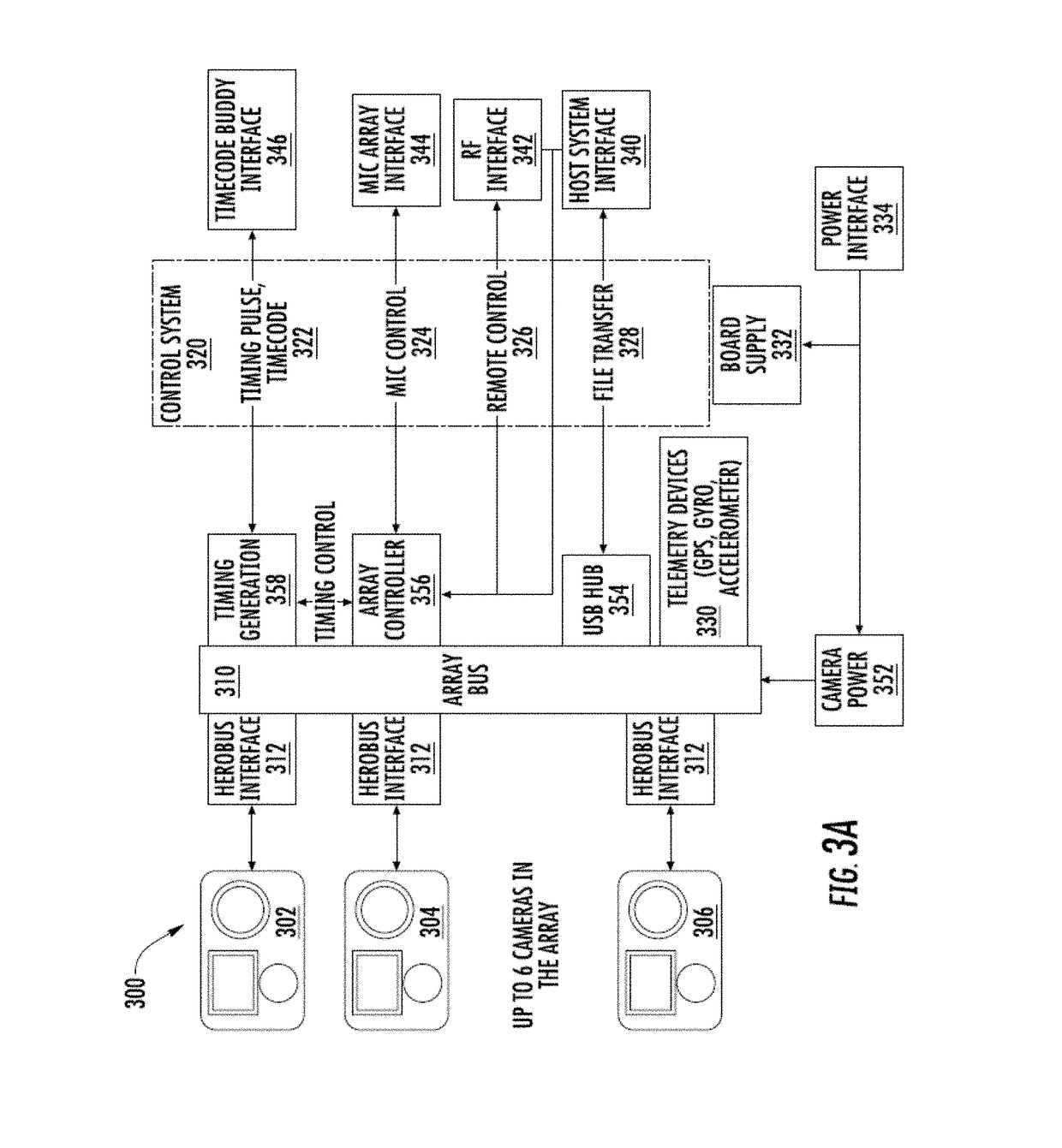Patents
Literature
134 results about "Camera orientation" patented technology
Efficacy Topic
Property
Owner
Technical Advancement
Application Domain
Technology Topic
Technology Field Word
Patent Country/Region
Patent Type
Patent Status
Application Year
Inventor
Eye-tap for electronic newsgathering, documentary video, photojournalism, and personal safety
InactiveUS6614408B1Augment and diminishEasy to catchTelevision system detailsCathode-ray tube indicatorsCommunications mediaComputer science
A novel system for a new kind of electronic news gathering and videography is described. In particular, a camera that captures light passing through the center of a lens of an eye of the user is described. Such an electronic newsgathering system allows the eye itself to, in effect, function as a camera. In wearable embodiments of the invention, a journalist wearing the apparatus becomes, after adaptation, an entity that seeks, without conscious thought or effort, an optimal point of vantage and camera orientation. Moreover, the journalist can easily become part of a human intelligence network, and draw upon the intellectual resources and technical photographic skills of a large community. Because of the journalist's ability to constantly see the world through the apparatus of the invention, which may also function as an image enhancement device, the apparatus behaves as a true extension of the journalist's mind and body, giving rise to a new genre of documentary video. In this way, it functions as a seamless communications medium that uses a reality-based user-interface.
Owner:MANN W STEPHEN G
Dimensioning and barcode reading system
InactiveUS20090095047A1Wave based measurement systemsTesting sensing arrangementsBarcodeCamera orientation
A system and method for auto-calibrating a barcode scanning tunnel to determine the orientation of one or more cameras with respect to a range finder and a conveyor belt comprises providing a scanning tunnel having a moveable surface, at least one range finder having an orientation, at least one camera having an orientation and at least one calibration object having at least one indicia disposed in a predetermined relationship to one or more features of the at least one calibration object, capturing at least one image of the at least one calibration object by the at least one camera, electronically detecting the at least one calibration object at least one indicia and the one or more object features and electronically calculating at least one component of the at least one camera orientation with respect to the moveable surface in response to information obtained from the image and the at least one calibration object at least one indicia.
Owner:ACCU SORT SYST
Omniview motionless camera orientation system
InactiveUS7382399B1Television system detailsColor signal processing circuitsMirror imageComputer science
A method and apparatus for capture of a spherical image is disclosed. The present invention includes at least one camera having a lens with at least a 180° field-of-view for capturing a hemispherical image. In a first embodiment, a second hemispherical image is created corresponding to a mirror image of the hemispherical image captured by the camera. In a second embodiment, two back-to-back cameras capture first and second hemispherical images, respectively. In both embodiments, a converter combines the two images along their outside edges to form a single, spherical image. Finally, the converter stores the complete spherical image for later retrieval and perspective corrected viewing.
Owner:SONY CORP
Image matching in support of mobile navigation
ActiveUS20100191459A1Orient themselvesFast and reliableTelevision system detailsInstruments for road network navigationMobile navigationAccelerometer
Method, apparatus and system for improving navigation using mobile devices by adding previously captured media to navigation maps provided by mobile device. Added media include still images and video clips. Media captured at the same location using various camera orientations are available in an image database. Images in database include metadata indicating location, orientation and other parameters associated with each image. User location and pose are matched against metadata indicating location and camera orientation of captured images. User motion may also be matched to metadata indicating camera motion of stored video clips. Other parameters like lighting, seasonal factors, and tasks of walking, biking or driving may also be matched. User pose may be derived from an accelerometer embedded in the mobile device. Some or all of user parameters desired by user may be directly input to mobile device by user instead of being automatically detected by mobile device.
Owner:FUJIFILM BUSINESS INNOVATION CORP
Method and system for performing surveillance
A method and system for detecting moving objects and controlling a surveillance system includes a processing module adapted to receive image information from at least one imaging sensor. The system performs motion detection analysis upon captured images and controls the camera in a specific manner upon detection of a moving object. The image processing uses the camera's physical orientation to a surveillance area to facilitate mapping images captured by the camera to a reference map of the surveillance area. Using the camera orientation, a moving object's position (e.g., latitude, longitude and altitude) within a scene can be derived.
Owner:SRI INTERNATIONAL
Virtual endoscopy
InactiveUS20080118117A1Full effectImproved angular separationSurgeryEndoscopesData setVirtual camera
A method of orienting a virtual camera for rendering a virtual endoscopy image of a lumen in a biological structure represented by a medical image data set, e.g., a colon. The method comprises selecting a location from which to render an image, determining an initial orientation for the virtual camera relative to the data set for the selected location based on the geometry of the lumen, determining an offset angle between the initial orientation and a bias direction; and orienting the virtual camera in accordance with a rotation from the initial orientation towards the bias direction by a fractional amount of the offset angle which varies according to the initial orientation. The fractional amount may vary according to the offset angle and / or a separation between a predetermined direction in the data set and a view direction of the virtual camera for the initial orientation. Thus the camera orientation can be configured to tend towards a preferred direction in the data set, while maintaining a good view of the lumen and avoiding barrel rolling effects.
Owner:TOSHIBA MEDICAL VISUALIZATION SYST EURO
System and method for removing camera rotation from a panoramic video
InactiveUS9277122B1Eliminate relative rotationEliminate the effects ofImage enhancementTelevision system detailsPanoramaForward looking
Removes undesirable camera rotation from a panoramic video. Video frames are mapped to a sphere and then projected to a forward-looking planar video. Camera tracking or other techniques are used to derive camera position and orientation in each frame. From the camera orientation, a correcting rotation is derived and is applied to the sphere onto which the panoramic video was mapped. Re-projecting video from the rotation-corrected sphere reduces or eliminates camera rotation artifacts from the panoramic video. Rotation may be re-introduced and other visual effects may be added to the stabilized video. May be utilized in 2D virtual reality and augmented reality displays. Depth may be accepted by the system for objects in the video and utilized to create 3D stereoscopic virtual reality and augmented reality displays.
Owner:LEGEND FILMS INC
Camera with acceleration sensor
InactiveUS20060204232A1Reduce movement-induced image blurringAdjusts exposure timeTelevision system detailsExposure controlAccelerometerHorizon
A method and system for determining camera positioning information from an accelerometer mounted on a camera. The accelerometer measures the orientation of the camera with respect to gravity. Orientation measurement allows user interface information to be displayed in a “right side up” orientation on a viewfinder for any camera orientation. Alternatively, an artificial horizon indicator may be displayed in the viewfinder. The accelerometer may also measure camera movement. Camera movement information together with camera orientation can be used to determine camera usage. Additionally, camera movement information can be used to determine a minimum shutter speed for a sharp picture.
Owner:WEINBERG HARVEY +3
Spatially registered augmented video
ActiveUS20130314442A1Television system details2D-image generationRelevant informationComputer graphics (images)
A source video stream is processed to extract a desired object from the remainder of video stream to produce a segmented video of the object. Additional relevant information, such as the orientation of the source camera for each frame in the resulting segmented video of the object, is also determined and stored. During replay, the segmented video of the object, as well as the source camera orientation are obtained. Using the source camera orientation for each frame of the segmented video of the object, as well as target camera orientation for each frame of a target video stream, a transformation for the segmented video of the object may be produced. The segmented video of the object may be displayed over the target video stream, which may be a live video stream of a scene, using the transformation to spatially register the segmented video to the target video stream.
Owner:QUALCOMM INC
Augmented reality apparatus and method
InactiveUS7817104B2Photovoltaic supportsBatteries circuit arrangementsDigital imageCamera orientation
An augmented reality apparatus and method in which the direction of a camera is adjusted to be consistent with a direction toward which a user faces and an augmented reality image is realized for a subject image incident from the adjusted camera direction. The augmented reality apparatus includes a viewing angle determination module which determines a viewing angle of a user, an image input module which receives an image of one or more subjects within the viewing angle of the user, an image synthesization module which generates a synthesized image by synthesizing the subject image with a digital image, and a display module which displays the synthesized image.
Owner:SAMSUNG ELECTRONICS CO LTD
Augmented reality apparatus and method
InactiveUS20070164988A1Photovoltaic supportsBatteries circuit arrangementsDigital imageCamera orientation
An augmented reality apparatus and method in which the direction of a camera is adjusted to be consistent with a direction toward which a user faces and an augmented reality image is realized for a subject image incident from the adjusted camera direction. The augmented reality apparatus includes a viewing angle determination module which determines a viewing angle of a user, an image input module which receives an image of one or more subjects within the viewing angle of the user, an image synthesization module which generates a synthesized image by synthesizing the subject image with a digital image, and a display module which displays the synthesized image.
Owner:SAMSUNG ELECTRONICS CO LTD
Apparatus for detecting direction of image pickup device and moving body comprising same
A polarization camera that can capture polarization images and a color image at the same time is used. Specifically, a clear sky polarization image, which provides information about the polarization of a part of the sky, is captured by a clear sky polarization image capturing section 100. And by reference to the information provided by a sun position determining section 1301 that determines the sun's position at the time of shooting, a camera direction estimating section 101 determines in what direction and in what area of the whole sky the clear sky polarization image is located as a polarization pattern. Finally, information about what direction or orientation on the globe the camera (image capture device) is now facing is output. In this manner, the direction of the camera and the relative position of the camera with respect to the sun can be known without providing a sensor separately and without capturing the whole sky or the sun.
Owner:PANASONIC CORP
Three-dimensional electronic map data creation method
InactiveUS20050177350A1Promote generationGeometric CADInstruments for road network navigationVirtual spaceDimensional modeling
When creating three-dimensional electronic map data, three-dimensional modeling of a building is performed as follows without measuring height of the building. Firstly, a building is photographed and the photographing position and photographing parameters (camera direction, angle of view) are recorded. Secondly, in a virtual space prepared on a computer, a photograph is arranged so as to reproduce the state upon the photographing according to these data. In combination with this, a plan view of the building is arranged according to the two-dimensional map data. Thirdly, the plan view is moved in the height direction until it is overlapped with the photograph, thereby modeling the building. Thus, it is possible to realize three-dimensional modeling without measuring the height.
Owner:ZENRIN
Systems and methods for digital video stabilization via constraint-based rotation smoothing
ActiveUS20140160309A1Quantity minimizationTelevision system detailsUsing non-detectable carrier informationDigital videoData set
Systems and methods for digital video stabilization via constraint-based rotation smoothing are provided. Digital video data including a set of image frames having associated time stamps and a set of camera orientation data having associated time stamps may be provided. A smoothed set of camera orientation data may be generated by minimizing a rate of rotation between successive image frames while minimizing an amount of empty regions in a resulting set of smoothed image frames reoriented based on the smoothed set of camera orientation data.
Owner:META PLATFORMS INC
System for Emulating Continuous Pan/Tilt Cameras
InactiveUS20110032368A1Reducing size of compressedSmall sizeTelevision system detailsColor television detailsSpatial OrientationsControl system
A system for emulating a continuous pan / tilt camera includes a camera having an image sensor for capturing an image. A camera orientation system includes a tip / tilt orientation mechanism having two axes of rotation with constrained range of movement for positioning the camera to capture the image within a hemispherical space. The two axes of rotation are generally orthogonal to each other and generally parallel to a plane forming a back side of the hemispheric space. An image transformation system rotates a portion of the captured image to emulate the continuous pan / tilt camera. The camera further includes a control system for adjusting an active area of the image sensor in response to a divergence between an optical center of the image sensor and a mechanical center of camera orientation system. The image transformation system is configurable in response to a spatial orientation of the hemispherical space.
Owner:PELLING NICHOLAS JOHN
Image orientation apparatus and method
InactiveUS20050093891A1Drawing from basic elementsGeometric image transformationDigital imagingManipulator
A digital imaging system, such as a digital camera or video recorder, including an image sensor, an orientation sensor, and an image manipulator. The image manipulator receives image sensor orientation data (camera orientation data), and real image orientation; and adjusts the virtual image orientation.
Owner:COOPER HLDG
Local positioning and motion estimation based camera viewing system and methods
ActiveUS20150042812A1High accurate and agile camera orientation controlHigh quality camera viewingImage enhancementTelevision system detailsComputer scienceMotion estimation
A method and a system for controlling camera orientation in training and exhibition systems. The method and system use a control algorithm to drive the orientation of a camera system at a determined reference velocity in order to place the aim-point of the camera system following a target aim-point in a local coordinate system. In some embodiments, the position and velocity of the target aim-point in the local coordinate system are determined based on dynamically filtered position and motion of a target object, where the position and motion of the target object are measured from a local positioning system.
Owner:YU HAI
Camera with Acceleration Sensor
ActiveUS20090154910A1Reduce motion-induced picture blurringReduce image blurTelevision system detailsExposure controlHorizonAccelerometer
A method and system for determining camera positioning information from an accelerometer mounted on a camera. The accelerometer measures the orientation of the camera with respect to gravity. Orientation measurement allows user interface information to be displayed in a “right side up” orientation on a viewfinder for any camera orientation. Alternatively, an artificial horizon indicator may be displayed in the viewfinder. The accelerometer may also measure camera movement. Camera movement information together with camera orientation can be used to determine camera usage. Additionally, camera movement information can be used to determine a minimum shutter speed for a sharp picture.
Owner:ANALOG DEVICES INC
Imaging control apparatus and method for controlling the same
ActiveUS20180184008A1Easy to confirmTelevision system detailsColor television detailsExecution controlImage capture
In order to allow a user to easily confirm whether an image was captured with a camera orientation adjusted as intended, an imaging control apparatus includes a display control unit configured to perform control to present a 2-area enlargement display of displaying live view images captured by two imaging regions in an imaging unit that are separated in a width direction or a height direction while juxtaposing them on a display unit, and a control unit configured to perform control to, after an image is captured according to an imaging instruction issued while the live view images in the 2-area enlargement display are displayed, present a review display of a 2-area enlargement of displaying two regions of the captured image that are separated in the width direction or the height direction while juxtaposing them on the display unit.
Owner:CANON KK
Camera coordinated processing method, camera coordinated processing device and camera
InactiveCN103237198ARealize automatic calculationReduce complexityTelevision system detailsColor television detailsComputer scienceCamera orientation
The invention discloses a camera coordinated processing method, a camera coordinated processing device and a camera. The camera coordinated processing method includes: reading three-dimensional directional angle information of preset position orientation of the camera; and acquiring three-dimensional directional angle information of current camera orientation, comparing the three-dimensional directional angle information of the current camera orientation with the three-dimensional directional angle information of the preset position orientation of the camera, calculating degree of a target three-dimensional directional angle, needing to adjust, of current camera steering preset position, and controlling the camera to be adjusted to the preset position according to the degree of the target three-dimensional directional angle. By the camera coordinated processing method, the camera coordinated processing device and the camera, degree of the target directional angle is calculated automatically, automatic correction is performed according to calculated results, and complexity and manual participation degree of system operation are lowered effectively.
Owner:华雁智能科技(集团)股份有限公司
Automatic object viewing methods and apparatus
ActiveUS20160094790A1Image enhancementTelevision system detailsComputer graphics (images)Video sharing
The apparatus and methods for providing automatic and focused camera view over objects in motion. Camera view stream from a camera system is displayed on a user's mobile device. The invented system recognizes and highlights candidate objects in the camera view. After a user selects one or multiple candidate objects as the target object for view following, the system continuously computes the position and motion of the target object and it controls the camera orientation motion such that the aimpoint of the camera system follows the target object closely and at substantially the same velocity. The system also controls the camera zoom to achieve a reference object presentation ratio during view following. Meanwhile, the camera view stream is transferred to connected mobile devices and display devices. The camera view stream can also be recorded in video file for playback review and for video sharing through internet.
Owner:YU HAI
Multi-directional rotational mount
InactiveUS9229299B1More functionalityMore versatilityStands/trestlesCamera body detailsEngineeringMulti directional
A multidirectional camera mount allows quick, easy and safe rotational adjustment of camera orientation and / or position. An upper side of the multidirectional camera mount can include upper mounting tabs attached to a camera, camera housing or other device. A lower side of the multidirectional camera mount can include lower mounting tabs which can be affixed to various objects, while static or during numerous physical activities. The multidirectional camera mount can allow the upper mounting tabs to rotate relative to the lower mounting tabs.
Owner:SWIVIT
Spatially registered augmented video
ActiveUS9153073B2Television system details2D-image generationRelevant informationComputer graphics (images)
A source video stream is processed to extract a desired object from the remainder of video stream to produce a segmented video of the object. Additional relevant information, such as the orientation of the source camera for each frame in the resulting segmented video of the object, is also determined and stored. During replay, the segmented video of the object, as well as the source camera orientation are obtained. Using the source camera orientation for each frame of the segmented video of the object, as well as target camera orientation for each frame of a target video stream, a transformation for the segmented video of the object may be produced. The segmented video of the object may be displayed over the target video stream, which may be a live video stream of a scene, using the transformation to spatially register the segmented video to the target video stream.
Owner:QUALCOMM INC
Flight ink droplet inspection device and method suitable for inkjet printing
ActiveCN109435473AMake up for limitationsObservations are authenticPrintingVisual inspectionOrientation measurement
Owner:武汉国创科光电装备有限公司
Omniview motionless camera orientation system
A method and apparatus for capture of a spherical image is disclosed. The present invention includes at least one camera having a lens with at least a 180° field-of-view for capturing a hemispherical image. In a first embodiment, a second hemispherical image is created corresponding to a mirror image of the hemispherical image captured by the camera. In a second embodiment, two back-to-back cameras capture first and second hemispherical images, respectively. In both embodiments, a converter combines the two images along their outside edges to form a single, spherical image. Finally, the converter stores the complete spherical image for later retrieval and perspective corrected viewing.
Owner:SONY CORP
Dimensioning and barcode reading system
ActiveUS20110315770A1Testing sensing arrangementsCharacter and pattern recognitionBarcode readerDimensioning
A system and method for auto-calibrating a barcode scanning tunnel to determine the orientation of one or more cameras with respect to a range finder and a conveyor belt comprises providing a scanning tunnel having a moveable surface, at least one range finder having an orientation, at least one camera having an orientation and at least one calibration object having at least one indicia disposed in a predetermined relationship to one or more features of the at least one calibration object, capturing at least one image of the at least one calibration object by the at least one camera, electronically detecting the at least one calibration object at least one indicia and the one or more object features and electronically calculating at least one component of the at least one camera orientation with respect to the moveable surface in response to information obtained from the image and the at least one calibration object at least one indicia.
Owner:DATALOGIC AUTOMATION
Camera control for fast automatic object targeting
A camera controller is configured to automatically target object in camera view based on determined object position in a field coordinate system. The object position is initially determined based on received radio wave signals from object associated wireless communication device in a wireless local area network. The camera controller targets the object in camera view according to the determined object position using at least one of the camera orientation adjustment and the object recognition methods. The object position is further refined based on recognized object in camera view and the relationship between the camera view coordinate system and the local area coordinate system for better object targeting effect. The camera controller is able to capture an object in camera view even before the object has been specified as the target object.
Owner:TANG XUEMING +1
Estimation of panoramic camera orientation relative to a vehicle coordinate frame
A system and method are presented for estimating the orientation of a panoramic camera mounted on a vehicle relative to the vehicle coordinate frame. An initial pose estimate of the vehicle is determined based on global positioning system data, inertial measurement unit data, and wheel odometry data of the vehicle. Image data from images captured by the camera is processed to obtain one or more tracks, each track including a sequence of matched feature points stemming from a same three-dimensional location. A correction parameter determined from the initial pose estimate and tracks can then be used to correct the orientations of the images captured by the camera. The correction parameter can be optimized by deriving a correction parameter for each of a multitude of distinct subsequences of one or more runs. Statistical analysis can be performed on the determined correction parameters to produce robust estimates.
Owner:GOOGLE LLC
Methods for enhancing camera focusing performance using camera orientation
ActiveUS20140368724A1Enhanced AF performanceEnhances automatic camera focusingTelevision system detailsProjector focusing arrangementAccelerometerElectronic systems
An electronic system for enhancing camera focusing on a portable electronic device is disclosed. The system comprises a body, a bus, and a camera module coupled to the bus and comprising a photosensitive substrate and a lens assembly wherein the lens assembly comprises a lens capable of being selectively moved to a distance from the photosensitive substrate for light focus thereon. Further, it comprises an accelerometer coupled to the bus and configured to generate orientation information, said orientation information indicating contemporaneous orientation of the body with respect to a predetermined reference. It also comprises a memory and a processor coupled to the bus. The memory comprises instructions that when executed implement an autofocus program configured to automatically determine the distance based on: 1) image data captured by said camera module; and 2) the orientation information generated by the accelerometer.
Owner:NVIDIA CORP
Apparatus and methods for rolling shutter compensation for multi-camera systems
ActiveUS10033928B1Quality improvementQuality is obtainedTelevision system detailsGeometric image transformationMulti cameraAcquisition time
Images may be obtained using a moving camera comprised of two or more rigidly mounted image sensors. Camera motion may change camera orientation when different portions of an image are captured. Pixel acquisition time may be determined based on image exposure duration and position of the pixel in the image array (pixel row index). Orientation of the sensor may at the pixel acquisition time instance may be determined. Image transformation may be performed wherein a given portion of the image may be associated with a respective transformation characterized by the corrected sensor orientation. In some implementations of panoramic image acquisition, multiple source images may be transformed to, e.g., equirectangular plane, using sensor orientation that is corrected for the time of pixel acquisition. Use of orientation correction may improve quality of stitching by, e.g., reducing contrast of border areas between portions of the transformed image obtained by different image sensors.
Owner:GOPRO
Features
- R&D
- Intellectual Property
- Life Sciences
- Materials
- Tech Scout
Why Patsnap Eureka
- Unparalleled Data Quality
- Higher Quality Content
- 60% Fewer Hallucinations
Social media
Patsnap Eureka Blog
Learn More Browse by: Latest US Patents, China's latest patents, Technical Efficacy Thesaurus, Application Domain, Technology Topic, Popular Technical Reports.
© 2025 PatSnap. All rights reserved.Legal|Privacy policy|Modern Slavery Act Transparency Statement|Sitemap|About US| Contact US: help@patsnap.com
